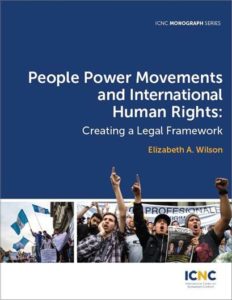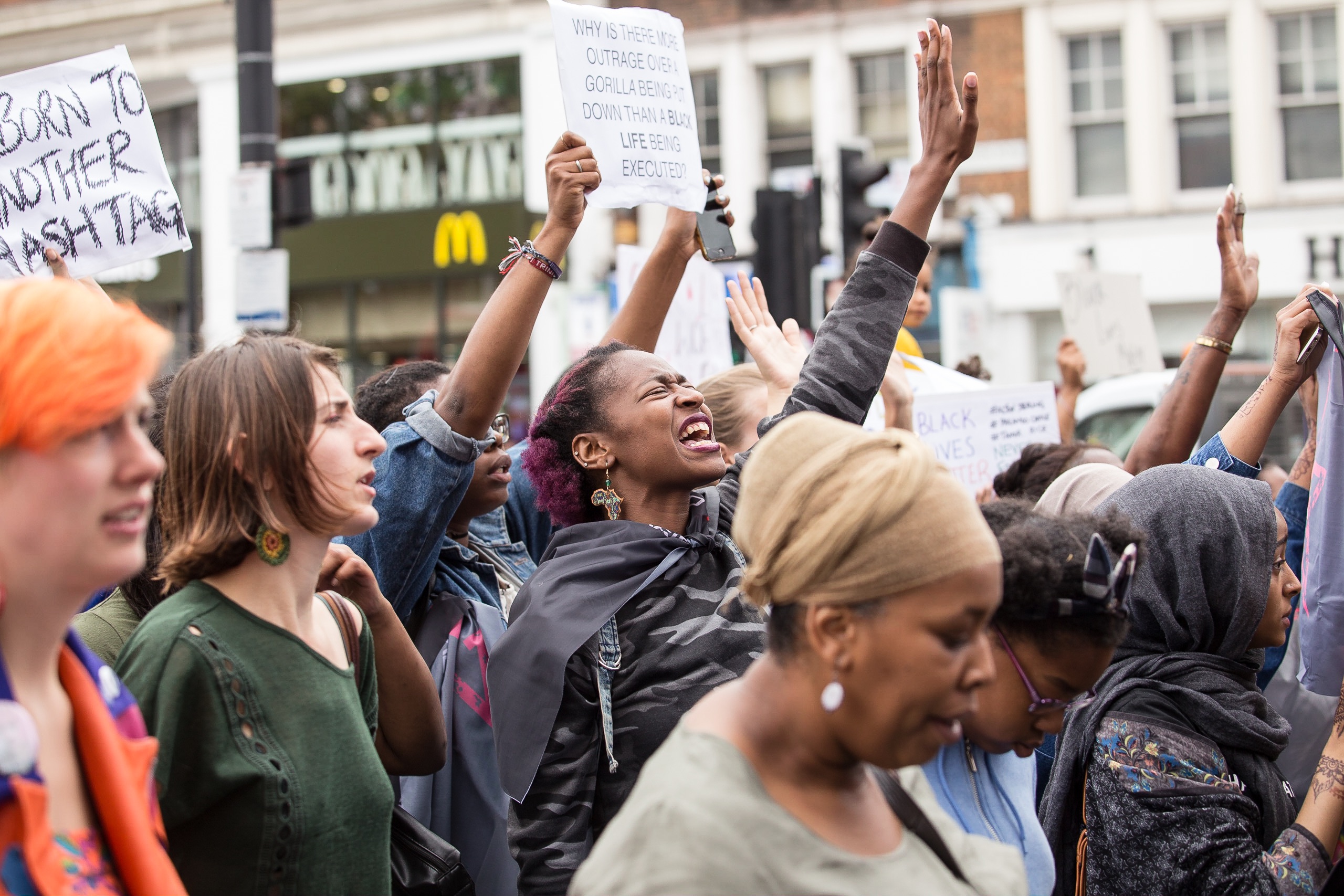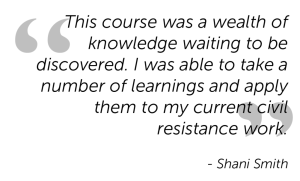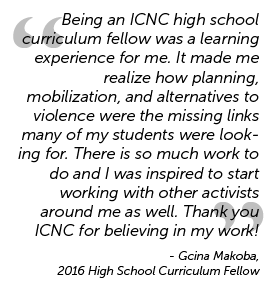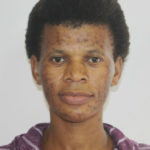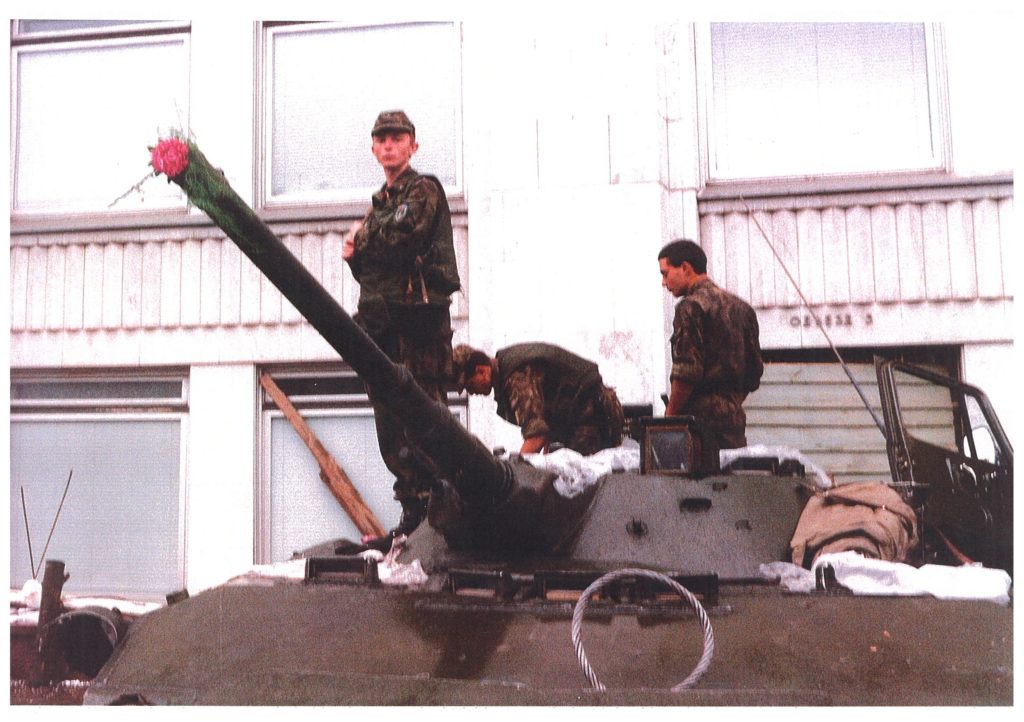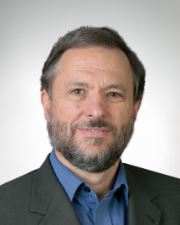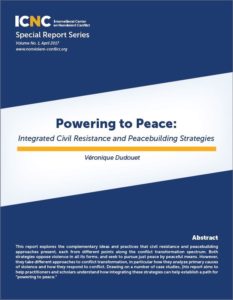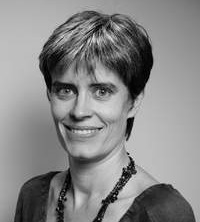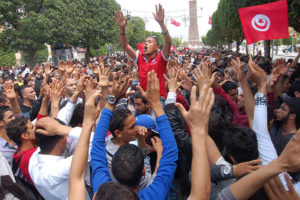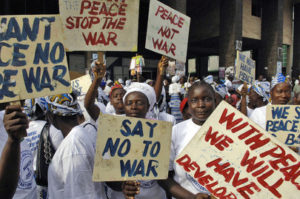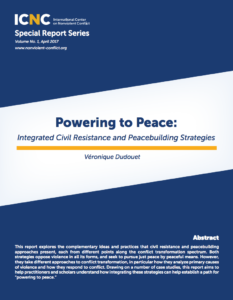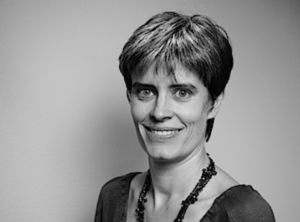By: Amber French, Senior Advisor, International Center for Nonviolent Conflict.
Original presentation prepared for a skills-sharing webinar for Beautiful Trouble, June 3, 2025
This short guide addresses all activists interested in using the tool of writing to further democracy, justice and peace. Any kind of organizing experience is valuable, whether it’s funded or not, and writing carries enormous value and power for our movements, whether in the form of storytelling or something else.
Writing is our expressed humanity
We are stronger than we think. Authoritarians, corrupt elites and other power abusers dehumanize activists, reducing them to advocates for a cause. Yet grassroots actors are also strong conduits of agency, action, intellect, ideas, imagination, creativity, experience, valuable learnings, emotions…
Writing rehumanizes and vehicles solidarity to grassroots leaders engaged in nonviolent struggle for democracy and peace. Activists and their expressed humanity are an under-recognized force to counter violence and injustice in our societies.
The term “storytelling”
Storytelling can be defined as tracing our histories back to the very seed of our activism, in a way that logically reconstructs our trajectory so a target readership can understand, make sense of, and learn from it.
What are we really talking about when we say storytelling? What kinds of actions and activities? They include:
- investigative journalism and movement-centered news outlets like Waging Nonviolence and ICNC’s blog;
- engaged publishing (like Daraja Press);
- documenting human rights violations at the grassroots level;
- publishing zines, underground publishing
- fiction writing and poetry;
- activist blogging and podcasting;
- a whole array of multimedia formats: plays, movies, art and so on, which require telling a story;
- writing and translating activist resources (like Beautiful Trouble and the ICNC Resource Library);
- collective applied research reports like the Fatshimetrie campaign in the DRC (discover this fascinating campaign here);
- not to mention the more classic stuff like advocacy campaigns on social media.
Activist blogging played a crucial role in many Arab Spring revolutions, drawing considerable international attention to nonviolent revolutions in countries like Tunisia and Egypt (Aya Chebbi wrote a very influential activist blog, for example). Writing itself carries the very seed of resistance in it—but also much more.
Storytelling helps humanize people—activists—who oppressors do everything in their power to dehumanize. Telling their own ‘stories’ to an international readership helps activists build bridges with the outside and make external support more activist-centered. In my experience, many human rights defenders want to tell their stories… not everyone, but many.
But the narrow frame of storytelling distracts us from an important point. It makes us gloss over the real tool for change, which is the fundamental skill used in storytelling: WRITING, which underpins many multimedia formats beyond just text. You need to engage in writing in order to produce videos, movies, podcasts, art exhibits and so on. Activist writing has been my topic of work for the past 17 years as editor of three online journals—I’ve commissioned 300+ articles from 150+ authors, at least half of whom identify primarily as activists. So in the first part of this guide, I’ll be referring to the writing frame, while the last half will be more specifically focused on storytelling tactics as nonviolent resistance.
The activist writing frame
Engaging in activism often requires dedication, strength, resilience, pain and loss. Writing can sometimes be a long, difficult, time-consuming and painful process for activists. It can bring back trauma. It’s intensely personal. I always tell my authors that writing is a physical extension of their hands, their fingertips; it is part of who they are. The stakes of activist writing are high, both personally for activists and their close circles, and politically for their movements. Importantly, activist writing is very much a function of building self-confidence and developing a sense of entitlement, in a positive sense—the belief or the REALIZATION that we are entitled to a readership, that our experiences and our voices are worth being heard. A sense of entitlement is essential in our activism more broadly: every human is entitled to their human rights, but we don’t all fight for or seize/exercise our rights, because we must first realize we are entitled to them.
When we focus on activist writing, we more fully capture the human agency that activists carry as people who accomplish complex, brave, outstanding, smartly calculated tasks at their own peril.
The writing frame is also important because the nature of activist writing is very different from the nature of non-activist writing. That is to say, activists sometimes relate differently to writing than non-activists do. They have unique needs as writers. Activist writing is done in real time, in real life, with real human consequences and impacts. It has a normative and political nature. Activist writing is both a process and a product. It is simultaneously an expression of, and catalyst of, truth and human agency. More than just performance, activist writing is performative—which means it has the capacity to remember, to legitimize, to remind, to instruct, to spur action. In short, writing makes our activism whole, and storytelling is only one very small piece of this. But again, don’t worry, this guide will also shed some light on storytelling as resistance.
A quick step back
But before we go further into writing or “storytelling” tactics, I want to take a big step back and return to the point of departure of this presentation: That writing is hard when you’re an activist. There are different starting points and categories of activist-writers:
- Category 1: “I don’t have anything worthy to write about. I don’t have anything to say.”
- Category 2: “I have something to write but don’t know how to write it, or I don’t know what to write, what parts of my experience to bring out.”
The majority of my activist-authors are in this phase, and I commonly have to coach them to identify their successes. Importantly, successes include both outcomes you’d typically view as a success—achieving a movement objective—and what some might consider “failures” and lessons learned.
- Category 3: “I have many things to write. I’m ready to write them or already am. I am looking for specific tools for specific goals, because I want to make a change with my writing.”
Some of my activist-authors fall into this category, and that’s great, but many of them have a very narrow view of the usefulness of writing, seeing it only as resistance itself (social media campaigns, hashtag activism, etc.). I usually have to coach this kind of activist-author to see their own worth, beyond simply as someone with a grievance that they want to talk about and calls for action they want to advertise. Like I said at the beginning, our oppressors want to reduce activists to that, when in reality, activists have so much to offer to the study and practice of strategic nonviolent struggle.
–
Take a moment to think about which phase you are in. Are you in phase 1, “I don’t have anything to write about, I don’t have a story to tell”; phase 2, “sure I guess I’d be down to write something, why not, but I don’t know what to uplift and need some guidance”, or phase 3, “I am ready to put pen to paper, I already do a lot of writing and I want to make more of a difference with it”? You might be between two categories.
Below are some tools and daily practices that can help activist-writers tap into the full spectrum of human agency that writing offers us, beyond simple advocacy.
Put on your journalist hat
Think of a confident activist you know. Ask if you can informally interview them. Ask them PURPOSE questions like:
- What was the seed of your activism?
- When did you first start identifying as an activist? Was it spurred by a personal injustice you suffered, or a collective injustice going on around you that at some point you realized was happening?
- How did you come to realize that the personal suffering was in fact an injustice? Or if observed, how did you find out it was happening, a news report, a conversation with someone, some group interaction?
- How did it make you feel? Why didn’t you ignore it?
- Why do you identify as an activist today?
And so on. If the person doesn’t give you a straight answer that truly speaks to PURPOSE (this is very common), then probe until you get an answer that is clear and explicit enough. Ask your questions a couple of times, in different ways. Look for holes in their logic. What is missing from their answers in order to really understand why they are an activist? Follow up with questions about specific facts: who, what, when, where, why, how.
Take notes and review your notes later to ask yourself what they placed emphasis on. Can you relate? If so, how exactly? Why?
Find a “mirror buddy”, a non-judgmental listener
Ask the shy neighbor who is a decade younger than you, or your mother, or a brother or sister, or the shop cashier you see every week, if they could lend you an ear for 15 minutes (SET A TIMER FOR YOURSELF! Don’t waste their time) so you can tell them more about your work and why you are an activist. Use those informal interview notes you took to guide you.
Then, ask this “mirror buddy” (I’ll explain this title) to summarize what you said, and see if they have any questions for you. What did you need to clarify for them? If you don’t want to or can’t find a non-judgmental listener, record yourself. Video is great, but even just audio is scary enough. 🙂
The underlying concept of this exercise is that editors and readers force you to be face to face with yourself. They put a mirror in front of you, and that’s what is scary. Find a friendly person to be your mirror to practice in before putting yourself out there.
Use informal writing methods
If you would typically write in a blank word processing document, go ahead and do so. Then, open a chat conversation or email (ideally on your mobile phone) and explain to a trusted friend or family member what you wrote and why you wrote it. Then… use THAT text as your written product. When you type in a blank document, it’s hard to imagine your readership, so you tend to fall into platitudes and you’re not really saying what you mean. But when you’re addressing an actual physical listener, you make more of an effort to be understood on that person’s level, and this is good for writing. If you don’t have someone in mind, you can also come up with a couple of specific reader profiles to keep in mind while writing, and their biodata—a South African activist for women’s rights who is 50 years old; a young male Colombian researcher who studies peace communities during the civil war, etc.
I always tell my writers: If you want your writing to make a difference, then say what you mean, and mean what you say. This means dropping platitudes, “sacking the teacher in your head” to use the words of a colleague Laurence Cox (you’re not in school anymore, write from your heart!!! Here’s a great example of a blog that was written from the heart, by Mariam Azeem.) Mean what you say means assuming responsibility for your words, owning up to them. They are an extension of you.
Go audio: record your voice into a message to yourself or to someone else on WhatsApp, Signal or Telegram if it’s safe to use technology (don’t share personal data). You can playback your message and type and edit the text it renders. It isn’t cheating, it’s being smart and efficient!!! Many years ago, I worked with a French researcher who was visually impaired. This was before apps for the visually impaired became widely available. He was the author of dozens of books—mostly academic studies but also some non-fiction. He wrote his books entirely through diction, instead of typing, because he had not learned to type efficiently, having lost his sight in the early 1980s. I read much of his work and had always noticed how conversational his tone was. When he revealed his writing method to me, it became clear that the speaking element not only made him more efficient and even prolific, it also improved his written voice.
Brainstorm your successes
…which necessarily include your failures and lessons learned
Brainstorm with your fellow activists if you have achieved something together, whether intentionally or unintentionally. Prompt them with ideas: Did we successfully train people? Did we pull off a nonviolent campaign that had some sort of impact? Ask trusted family or friends: Have I told you something that made you feel proud of me, with regard to my activism? What was it, why were you proud? What difference did it make in your opinion?
Learn about all the ways that writing is power
Below are the 38 ways writing is power, which will hopefully spark some ideas on how you can leverage your writing and storytelling to shift power dynamics in small ways and/or flex your agency in bigger ways.
A little background about this list, because I didn’t make them up, I just observed and compiled them. So let’s give credit where credit is due. Activists are already doing them; they just perhaps don’t recognize the value of them (they have not developed the confidence or positive sense of entitlement required to recognize the value of them).
I’ll also set the scene, since this is also a guide about storytelling 🙂 I attended a gathering of east African activists last winter, who were all leveraging writing in some creative or expository way: as podcasters, TV and film producers, independent journalists, filmmakers, poets, singers, social media influencers, as well as classic “writers.” They wrote scripts. They created videos and wrote posts for their Instagram followers. They read to us their poems from published anthologies. They wrote song lyrics. They managed parody news sites and wrote political satire. They managed local NGO communication strategies. Yet what they all had in common was that their writing was normative: it was to nonviolently struggle for human rights and social justice (and this takes many forms beyond simple advocacy—which is a central argument of my presentation).
As I listened to the conversations over the course of the four-day gathering, including during a session I co-hosted with Rosie Motene to this effect, I scribbled down mad-scientist looking notes to capture all the ways writing is power. So without further ado, here they are.
Writing is…
((check out the Beautiful Trouble tools I’ve embedded into this list – they guide activists on how to operationalize writing as nonviolent resistance!)
- …a vehicle for advocacy, raising awareness, movement communications < Beautiful Trouble tool to check out
- …a vehicle for sense-making, personal reflection as an activist
- …a vehicle for sense-making, collective reflection as a movement
- …a source of revenue for activists
- …a source of revenue for movements
- …a way to officialize information and events (related to truth-telling) < Beautiful Trouble tool to check out
- …a way for inter-movement and intra-movement activist learning, education, training and edification to happen
- …documentary resistance, a way to set the record straight, truth-telling < Beautiful Trouble tool to check out
- …a way to share information (journalism)
- …a way to let information get out safely (smoke-writing)
- …a way to take a step back and see your activism more clearly, to find your way back to your unique, original “why”, to know ourselves better, to know the truth about ourselves in a world where lies our told about us
- …used to influence or control the narrative about your struggle, to not leave silence about ourselves for others to fill (it’s less about what you say, it’s more about who you are)
- …a way to generate external support (funding for trainings, international solidarity, unarmed accompaniment for nonviolent movements in conflict zones, etc.)
- …a way to build trust with external supporters
- …a way to humanize ourselves, in the face of vociferous dehumanization campaigns led by our oppressors
- …a way to own up to our activism
- …a way to resist suffering and let joy reign (humor, satire, parody…)
- …a way to dramatize injustice (humor, satire, parody…) < Beautiful Trouble tool to check out
- …a way to keep searching for answers
- …a way to find connections and common ground with others, to build community
- …a way to build self-confidence and find your voice
- …a teambuilding exercise for movements
- …a way to learn about how others see you (when you write for international outlets and work with editors)
- …a way to give a voice to the less vocal participants of a movement
- …a relatively low-risk, low-threshold nonviolent action for those activists who do not wish to be on the frontlines (scrupulous digital security measures must be taken if that writing is to be released publicly, but there are other writing formats and methods that do not require this, like gathering written activist testimonies)
- …something that can be leveraged to improve gender and minority inclusion in a movement
- …leaving a trace and thus is noncooperation, because our oppressors want to erase our traces
- …a way to contribute to the democratization of knowledge
- …a human right
- …our duty as activists. By sharing our voices, our insights, our experiences, our successes and failures, we are accountable to all other activists in the world fighting for human rights, freedom, peace and social justice
- …a way to appropriate power (access to editorial production and publishing)
- …something that less-trusted movement participants can be entrusted with (you don’t have to do anything with what they write, and you didn’t raise suspicion by trying to exclude them from your movement which could cause panic and make a movement implode)
- …a way to quickly seize trigger events and shed light on injustice that is happening right now < Beautiful Trouble tool to check out
- …a tool or strategy, not an action; it promises more when approached with the long term in mind (proactively like building an archive of written activist testimonies, or documenting war crimes) and not as delivering some quick solution (reactively, like launching a hashtag campaign on Twitter)
- …does not happen in a vacuum. It is normative, it is politically charged, it gives rise to action.
- …not just performance, it is also performative. It connects words with action. It consummates our activism or makes our activism whole. And it makes us whole as activists.
- …a way to embrace our humanity
- …a way to demystify.
What I really like about this list is that it is about how writing IS power, not how writing CAN be power. It’s already happening; activists are already leveraging writing in these ways—they are already deriving power from this tool.
Take some time to digest this list. Read a few of our REACT activist-authored posts. Come back to the list in a few days. Print it out and show it to your fellow activists. Lead a brainstorming session and solicit some reactions: In our work, have we observed activists using writing for these purposes? If not, why not? What are we missing, what can we do better?
The greater human project
I am a firm believer that as difficult, time-consuming and painful as writing can be for some activists, it is really worth it, at the very least on a personal level, for its reflective value. Writing with or without a readership is a transformative experience and a way we can each individually play a role in the greater human project of defending rights, justice and freedom.
Further reading
- https://www.nonviolent-conflict.org/blog_post/38-ways-writing-is-power-for-our-nonviolent-struggles/
- https://www.nonviolent-conflict.org/blog_post/power-activist-led-educational-engaged-storytelling/
- https://www.nonviolent-conflict.org/blog_post/writing-about-activism-tactic-lesson-refuge-right/
- https://www.nonviolent-conflict.org/blog_post/dangerous-words-the-cost-of-writing-as-resistance/
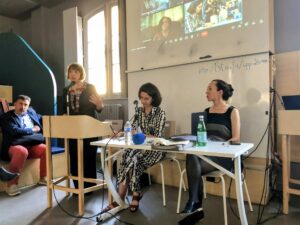
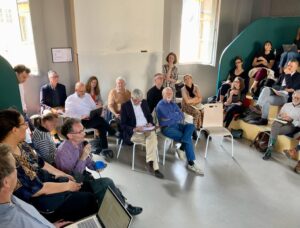
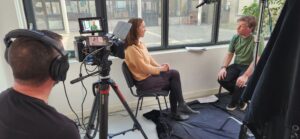
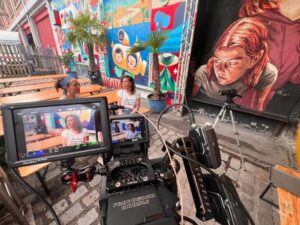
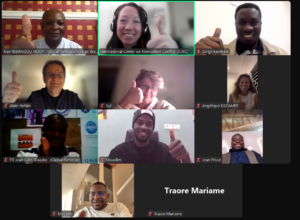
 The 2025 round-up of activist writing on ICNC’s blog, Minds of the Movement is underway! Amos Oluwatoye, Merab Ingabire, Rosie Motene and many others have been reflecting on their activism and the unique ways that writing is power for them, both individually and in their communities.
The 2025 round-up of activist writing on ICNC’s blog, Minds of the Movement is underway! Amos Oluwatoye, Merab Ingabire, Rosie Motene and many others have been reflecting on their activism and the unique ways that writing is power for them, both individually and in their communities.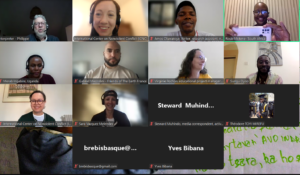 Steward Muhindo Kalyamughuma, Activist, REACT Guest Editor, DR Congo
Steward Muhindo Kalyamughuma, Activist, REACT Guest Editor, DR Congo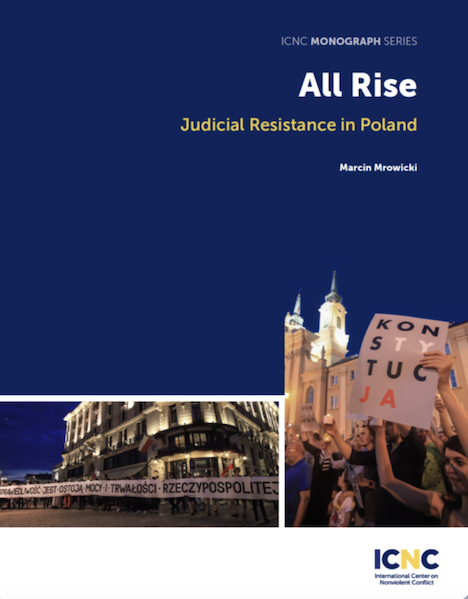
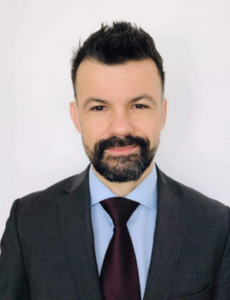 Marcin Mrowicki, PhD, is Assistant Professor of EU Law and Human Rights at the University of Warsaw (Centre for Europe). He is an author of many academic and popular science publications. He worked as a lawyer at the European Court for Human Rights in Strasbourg (2012-2016), and at the Polish Commissioner for Human Rights’ Office in Poland (2016-2024). Since February 2024, he is also a Secretary of the Inter-ministerial Committee for Restoring Rule of Law and Constitutional Order and a Deputy Head of the Criminal Law Department of the Ministry of Justice in Poland.
Marcin Mrowicki, PhD, is Assistant Professor of EU Law and Human Rights at the University of Warsaw (Centre for Europe). He is an author of many academic and popular science publications. He worked as a lawyer at the European Court for Human Rights in Strasbourg (2012-2016), and at the Polish Commissioner for Human Rights’ Office in Poland (2016-2024). Since February 2024, he is also a Secretary of the Inter-ministerial Committee for Restoring Rule of Law and Constitutional Order and a Deputy Head of the Criminal Law Department of the Ministry of Justice in Poland.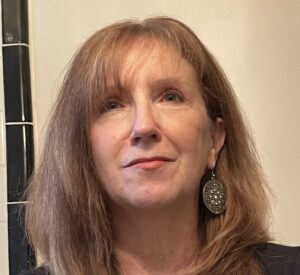 Elizabeth A. Wilson has a JD from Harvard Law School and a PhD from the University of Pennsylvania. She has taught public international law and international human rights at Seton Hall’s School of Diplomacy, Rutgers Law School, and Columbia University’s Institute for Human Rights, and has been a visiting senior fellow at the Max Planck Institute for Comparative Public Law and International Law in Heidelberg, Germany. She is the author of
Elizabeth A. Wilson has a JD from Harvard Law School and a PhD from the University of Pennsylvania. She has taught public international law and international human rights at Seton Hall’s School of Diplomacy, Rutgers Law School, and Columbia University’s Institute for Human Rights, and has been a visiting senior fellow at the Max Planck Institute for Comparative Public Law and International Law in Heidelberg, Germany. She is the author of 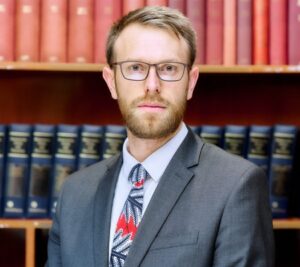 Doug Coltart is a Zimbabwean lawyer, human rights activist, social movement coach, and writer. His legal practice focuses on providing representation to journalists, activists, trade unionists, etc who are prosecuted for exercising their rights. Mostly, he just loves to dance!
Doug Coltart is a Zimbabwean lawyer, human rights activist, social movement coach, and writer. His legal practice focuses on providing representation to journalists, activists, trade unionists, etc who are prosecuted for exercising their rights. Mostly, he just loves to dance!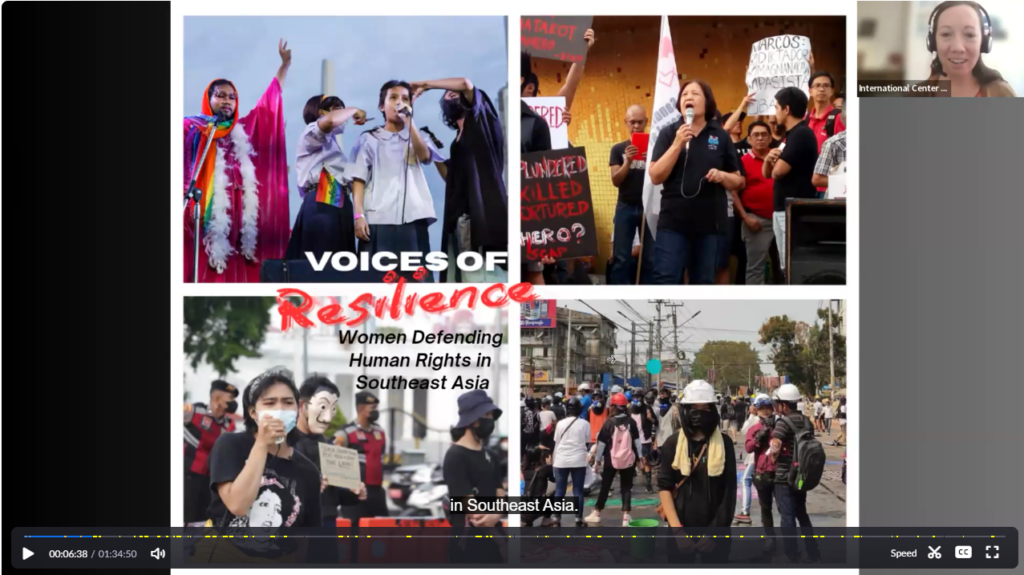

 Nitchakarn Rakwongrit (Memee) Nitchakarn Rakwongrit (Memee) is a young feminist activist based in Bangkok, Thailand. She became involved in the Thai pro-democracy protests in 2020 and has been actively engaged in activism ever since. Despite her young age, she has faced political prosecution in at least seven cases, with five occurring when she was still a minor. Currently, Memee is actively involved with the Milk Tea Alliance Thailand and strives to incorporate feminism and collective culture into social movements.
Nitchakarn Rakwongrit (Memee) Nitchakarn Rakwongrit (Memee) is a young feminist activist based in Bangkok, Thailand. She became involved in the Thai pro-democracy protests in 2020 and has been actively engaged in activism ever since. Despite her young age, she has faced political prosecution in at least seven cases, with five occurring when she was still a minor. Currently, Memee is actively involved with the Milk Tea Alliance Thailand and strives to incorporate feminism and collective culture into social movements.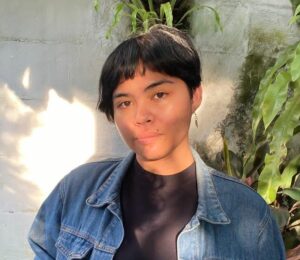 Evy Zulyani is a history graduate working in the fields of communication and knowledge management. After graduating, she focused on labor, human rights and gender issues. Her research was published in the 2020 edition of the Indonesian Feminist Journal, focusing on women migrant workers. She is also an active member of the Asia solidarity movement, known as the Milk Tea Alliance. Currently, Evy serves as an education and research coordinator at the Media and Creative Industry Workers Union for Democracy (SINDIKASI). In her free time, she enjoys walking to explore the city and making zines.
Evy Zulyani is a history graduate working in the fields of communication and knowledge management. After graduating, she focused on labor, human rights and gender issues. Her research was published in the 2020 edition of the Indonesian Feminist Journal, focusing on women migrant workers. She is also an active member of the Asia solidarity movement, known as the Milk Tea Alliance. Currently, Evy serves as an education and research coordinator at the Media and Creative Industry Workers Union for Democracy (SINDIKASI). In her free time, she enjoys walking to explore the city and making zines.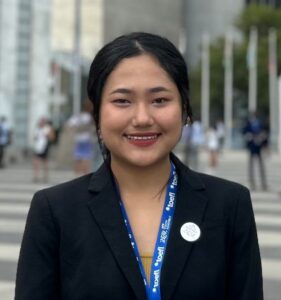
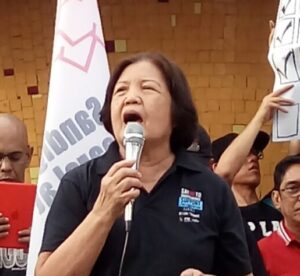 As a human rights defender for over fifty years, Nilda Sevilla steadfastly worked for institutional reforms and societal justice in the Philippines. She taught political science in college before, during and after the Ferdinand Marcos dictatorship. At the height of the resistance to the repressive regime, she helped organize a faculty union, serving as its president and achieving legal victory for her illegally dismissed colleagues. As Co-chairperson of the Families of Victims of Involuntary Disappearance (FIND) and as legislative staff chief in the House of Representatives, she actively participated in lawmaking that led to landmark human rights laws notably against enforced disappearance and torture, on death penalty prohibition, and giving martial law victims recognition and reparation, among others.
As a human rights defender for over fifty years, Nilda Sevilla steadfastly worked for institutional reforms and societal justice in the Philippines. She taught political science in college before, during and after the Ferdinand Marcos dictatorship. At the height of the resistance to the repressive regime, she helped organize a faculty union, serving as its president and achieving legal victory for her illegally dismissed colleagues. As Co-chairperson of the Families of Victims of Involuntary Disappearance (FIND) and as legislative staff chief in the House of Representatives, she actively participated in lawmaking that led to landmark human rights laws notably against enforced disappearance and torture, on death penalty prohibition, and giving martial law victims recognition and reparation, among others.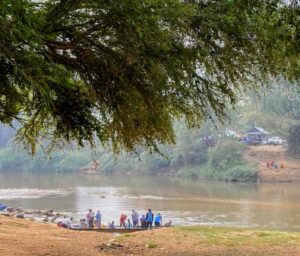 As a young woman from one of the ethnic minorities in Myanmar, Yin Lae Aung started her activism during at university and worked for academic freedom and environmental issues. After the 2021 coup in Myanmar, she mobilized and organized youth protests against the military dictatorship, including boycotting education under junta control and joining art strikes. When the military government threatened and attempted to arrest her because of her activism, she was forced to flee to the border area in Thailand. She initiated Rangoon Voice-Cast (RVC), a platform for marginalized voices, youth and the working-class community.
As a young woman from one of the ethnic minorities in Myanmar, Yin Lae Aung started her activism during at university and worked for academic freedom and environmental issues. After the 2021 coup in Myanmar, she mobilized and organized youth protests against the military dictatorship, including boycotting education under junta control and joining art strikes. When the military government threatened and attempted to arrest her because of her activism, she was forced to flee to the border area in Thailand. She initiated Rangoon Voice-Cast (RVC), a platform for marginalized voices, youth and the working-class community.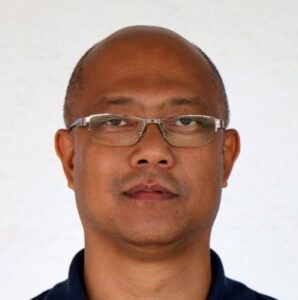
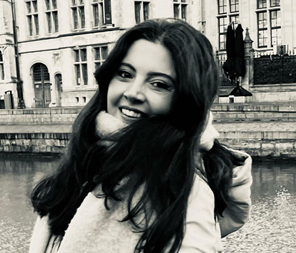 Sarah Sheik Ali is a migrant woman of color, a feminist, and a human rights defender from Lebanon, fighting double battles against patriarchy and dictatorships and advocating for the engagement of activists in exile in change-making back home. She is a Ph.D. candidate in political science with a concentration on diaspora and gender at the Universite Libre de Bruxelles. She is the co-founder and executive director of
Sarah Sheik Ali is a migrant woman of color, a feminist, and a human rights defender from Lebanon, fighting double battles against patriarchy and dictatorships and advocating for the engagement of activists in exile in change-making back home. She is a Ph.D. candidate in political science with a concentration on diaspora and gender at the Universite Libre de Bruxelles. She is the co-founder and executive director of 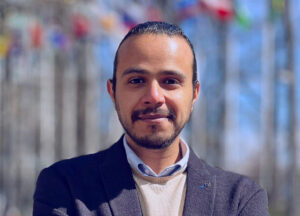 Mostafa Fouad is an exiled Egyptian human rights defender and lawyer with over ten years of experience in MENA civil society. He previously worked as a researcher at Columbia University’s Global Freedom of Expression project. Currently, he leads HuMENA’s programs, focusing on capacity building and empowering HRDs, activists, the MENA diaspora, and social movements across the region to foster transformational change in innovative ways. He is also a co-founder of several networks, including the Innovation for Change Network – MENA Hub and the MENA Network for Countering Hate Speech. His human rights research covers various topics such as gender, exile, democracy, justice, hate speech, and accountability. Mostafa is dedicated to creating positive change.
Mostafa Fouad is an exiled Egyptian human rights defender and lawyer with over ten years of experience in MENA civil society. He previously worked as a researcher at Columbia University’s Global Freedom of Expression project. Currently, he leads HuMENA’s programs, focusing on capacity building and empowering HRDs, activists, the MENA diaspora, and social movements across the region to foster transformational change in innovative ways. He is also a co-founder of several networks, including the Innovation for Change Network – MENA Hub and the MENA Network for Countering Hate Speech. His human rights research covers various topics such as gender, exile, democracy, justice, hate speech, and accountability. Mostafa is dedicated to creating positive change.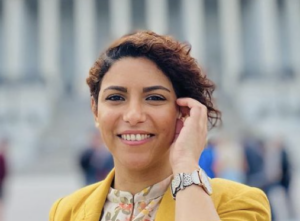
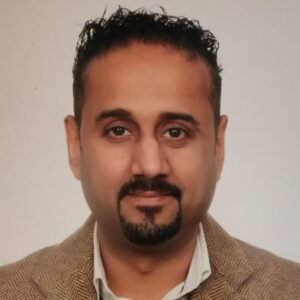 Sayed Yusuf Almuhafdha is a prominent human rights defender, researcher, trainer and expert with 15 years experience in human rights advocacy in Bahrain. He has been awarded several international awards in recognition of his continuous efforts in advocating for justice and freedom of the press in Bahrain. Sayed held leadership positions with the Bahrain Center for Human Rights and Salam for Democracy and Human Rights working on human rights advocacy in Europe. In spring of 2014, Sayed Yusuf went into exile in Germany, following continuous judicial harassment and threats to his life.
Sayed Yusuf Almuhafdha is a prominent human rights defender, researcher, trainer and expert with 15 years experience in human rights advocacy in Bahrain. He has been awarded several international awards in recognition of his continuous efforts in advocating for justice and freedom of the press in Bahrain. Sayed held leadership positions with the Bahrain Center for Human Rights and Salam for Democracy and Human Rights working on human rights advocacy in Europe. In spring of 2014, Sayed Yusuf went into exile in Germany, following continuous judicial harassment and threats to his life.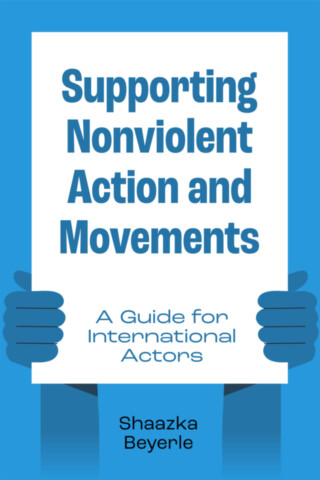
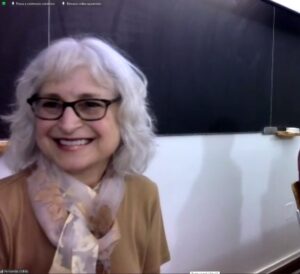 Shaazka Beyerle is a senior fellow with the Terrorism, Transnational Crime, and Corruption Center, George Mason University. She’s a researcher, writer, and educator in nonviolent action, focusing on anti-corruption, accountability, peacebuilding, gender, and human rights. Her new publication is Supporting Nonviolent Action and Movements: A Guide for International Actors (United States Institute of Peace). She’s also the author of Curtailing Corruption: People Power for Accountability and Justice (Lynne Rienner Publishers); and chapter coauthor on enabling civil society and social movements in Untapped Power: Leveraging Diversity and Inclusion for Conflict and Development (Oxford University Press).
Shaazka Beyerle is a senior fellow with the Terrorism, Transnational Crime, and Corruption Center, George Mason University. She’s a researcher, writer, and educator in nonviolent action, focusing on anti-corruption, accountability, peacebuilding, gender, and human rights. Her new publication is Supporting Nonviolent Action and Movements: A Guide for International Actors (United States Institute of Peace). She’s also the author of Curtailing Corruption: People Power for Accountability and Justice (Lynne Rienner Publishers); and chapter coauthor on enabling civil society and social movements in Untapped Power: Leveraging Diversity and Inclusion for Conflict and Development (Oxford University Press).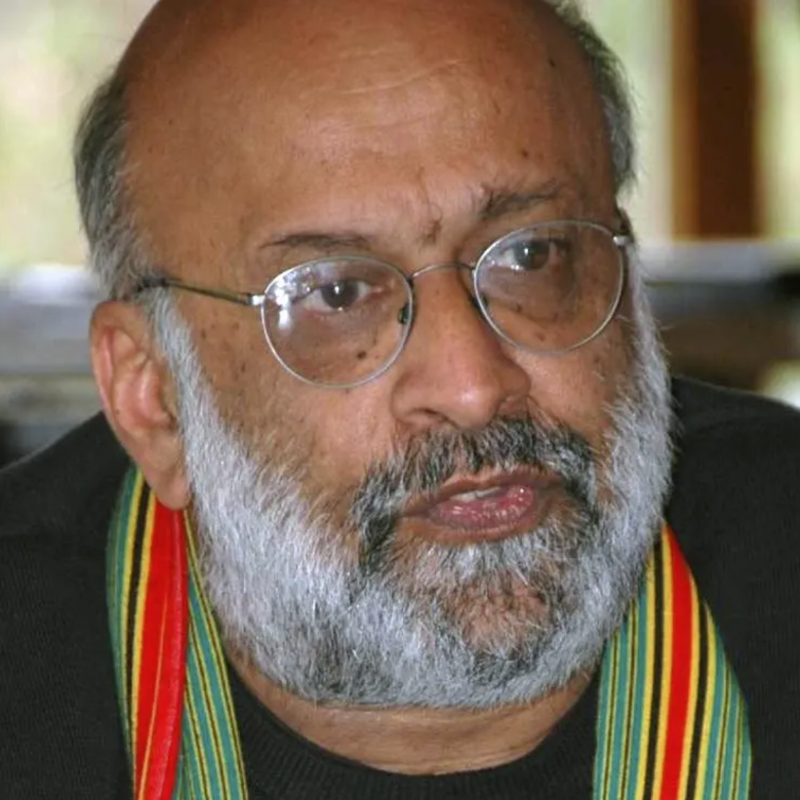 Firoze Manji is a Kenyan with more than 40 years’ experience in international development, health and human rights, founder of Daraja Press,the prize-winning pan African social justice newsletter and website Pambazuka News and Pambazuka Press, founder of Fahamu – Networks for Social Justice (1997-2010), and host of the online interview series Organising in the time of Covid-19. He is Adjunct Professor at the Institute of African Studies and Contract Instructor, Carleton University, Ottawa, Canada; Richard von Weizsäcker Fellow at the Robert Bosch Academy, Berlin; Visiting Fellow at Kellogg College, University of Oxford (2001-2016) and Associate Fellow of the Institute for Policy Studies. He is a member of several editorial and editorial review boards including the Global Critical Caribbean Thought, Nokoko, to name a few.
Firoze Manji is a Kenyan with more than 40 years’ experience in international development, health and human rights, founder of Daraja Press,the prize-winning pan African social justice newsletter and website Pambazuka News and Pambazuka Press, founder of Fahamu – Networks for Social Justice (1997-2010), and host of the online interview series Organising in the time of Covid-19. He is Adjunct Professor at the Institute of African Studies and Contract Instructor, Carleton University, Ottawa, Canada; Richard von Weizsäcker Fellow at the Robert Bosch Academy, Berlin; Visiting Fellow at Kellogg College, University of Oxford (2001-2016) and Associate Fellow of the Institute for Policy Studies. He is a member of several editorial and editorial review boards including the Global Critical Caribbean Thought, Nokoko, to name a few.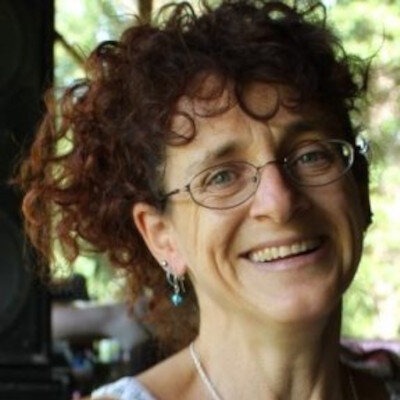 Nadine Bloch is an activist artist, political community organizer, strategic nonviolent actionista and the Training Director for Beautiful Trouble. Her work explores the potent intersection of art and politics, where creative cultural resistance is an effective political action, and a powerful way to reclaim agency over our own lives, fight oppressive systems, and invest in our communities — all while having more fun than the other side! In addition to contributing content to Beautiful Trouble, Beautiful Rising, and We Are Many: Reflections on Movement Strategy from Occupation to Liberation (2012, AK Press), she is the author of Education & Training in Nonviolent Resistance (2016, USIP) and the co-author of SNAP: An Action Guide to Synergizing Nonviolent Action and Peacebuilding (2019, USIP). Find more of her writing on arts and activism at WagingNonviolence.org.
Nadine Bloch is an activist artist, political community organizer, strategic nonviolent actionista and the Training Director for Beautiful Trouble. Her work explores the potent intersection of art and politics, where creative cultural resistance is an effective political action, and a powerful way to reclaim agency over our own lives, fight oppressive systems, and invest in our communities — all while having more fun than the other side! In addition to contributing content to Beautiful Trouble, Beautiful Rising, and We Are Many: Reflections on Movement Strategy from Occupation to Liberation (2012, AK Press), she is the author of Education & Training in Nonviolent Resistance (2016, USIP) and the co-author of SNAP: An Action Guide to Synergizing Nonviolent Action and Peacebuilding (2019, USIP). Find more of her writing on arts and activism at WagingNonviolence.org.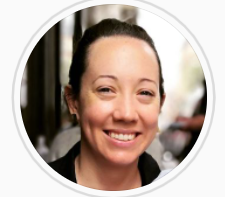 Amber French is ICNC Senior Editorial Advisor, Managing Editor of the Minds of the Movement blog (est. June 2017) and Project Co-Lead of REACT (Research-in-Action). For the Minds of the Movement blog, she has commissioned 290+ articles by 130+ activist writers, academics, and others around the world. Having launched and managed ICNC Press in its first three years, she edited nine publications written by scholars and activists. Currently based in Paris, France, writes frequently about civil resistance for a variety of French journals; teaches a People Power course at the European School of Social and Political Science in Lille; and is leading the development of an ICNC online course in French (forthcoming 2024/2025). She is originally from New Orleans, Louisiana, USA.
Amber French is ICNC Senior Editorial Advisor, Managing Editor of the Minds of the Movement blog (est. June 2017) and Project Co-Lead of REACT (Research-in-Action). For the Minds of the Movement blog, she has commissioned 290+ articles by 130+ activist writers, academics, and others around the world. Having launched and managed ICNC Press in its first three years, she edited nine publications written by scholars and activists. Currently based in Paris, France, writes frequently about civil resistance for a variety of French journals; teaches a People Power course at the European School of Social and Political Science in Lille; and is leading the development of an ICNC online course in French (forthcoming 2024/2025). She is originally from New Orleans, Louisiana, USA.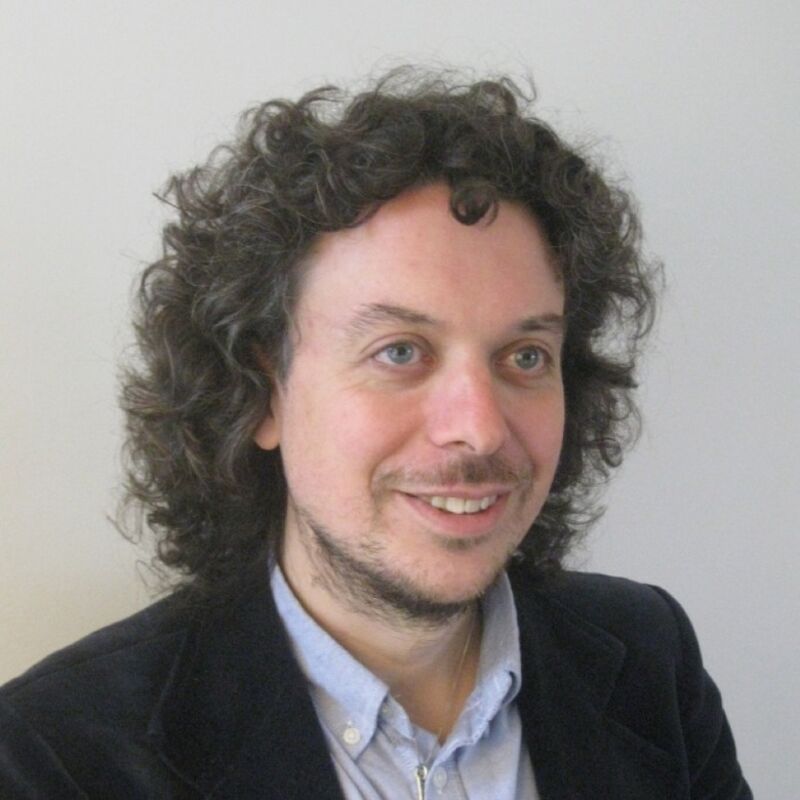 Laurence Cox is a Dublin-based writer, teacher and researcher who has been involved in many different movements since the 1980s. He has edited many activists’ work as co-editor of Interface (https://www.interfacejournal.net/), the activist/academic journal for social movement research. Laurence has written and edited 15 books, ranging from an ebook to support the Zapatista delegation to Europe to an Oxford University Press hardback (The Irish Buddhist: the Forgotten Monk who Faced Down the British Empire). With Sutapa Chattopadhyay, Alberto Arribas Lozano and Ania Szolucha he’s just edited the Handbook of Research Methods and Applications for Social Movements (introduction available for free here: https://www.elgaronline.com/downloadpdf/edcollchap/book/9781803922027/book-part-9781803922027-6.pdf) which emphasizes research from and for movements and experiences from the global South. Laurence is professor of sociology at the National University of Ireland Maynooth and has been writing for ICNC’s blog, Minds of the Movement since January 2020.
Laurence Cox is a Dublin-based writer, teacher and researcher who has been involved in many different movements since the 1980s. He has edited many activists’ work as co-editor of Interface (https://www.interfacejournal.net/), the activist/academic journal for social movement research. Laurence has written and edited 15 books, ranging from an ebook to support the Zapatista delegation to Europe to an Oxford University Press hardback (The Irish Buddhist: the Forgotten Monk who Faced Down the British Empire). With Sutapa Chattopadhyay, Alberto Arribas Lozano and Ania Szolucha he’s just edited the Handbook of Research Methods and Applications for Social Movements (introduction available for free here: https://www.elgaronline.com/downloadpdf/edcollchap/book/9781803922027/book-part-9781803922027-6.pdf) which emphasizes research from and for movements and experiences from the global South. Laurence is professor of sociology at the National University of Ireland Maynooth and has been writing for ICNC’s blog, Minds of the Movement since January 2020.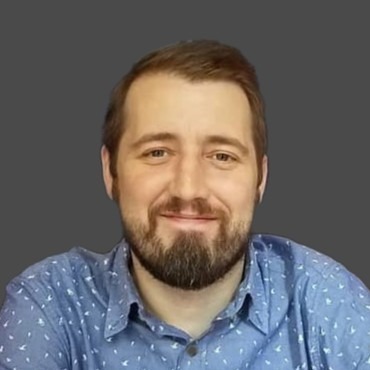 Eric Stoner is a co-founding editor at Waging Nonviolence, a non-profit media platform that covers social movements and activism around the world. Since 2009, it has published original reporting from contributors in more than 90 countries. He also teaches civil resistance at St. Joseph’s University, New York.
Eric Stoner is a co-founding editor at Waging Nonviolence, a non-profit media platform that covers social movements and activism around the world. Since 2009, it has published original reporting from contributors in more than 90 countries. He also teaches civil resistance at St. Joseph’s University, New York.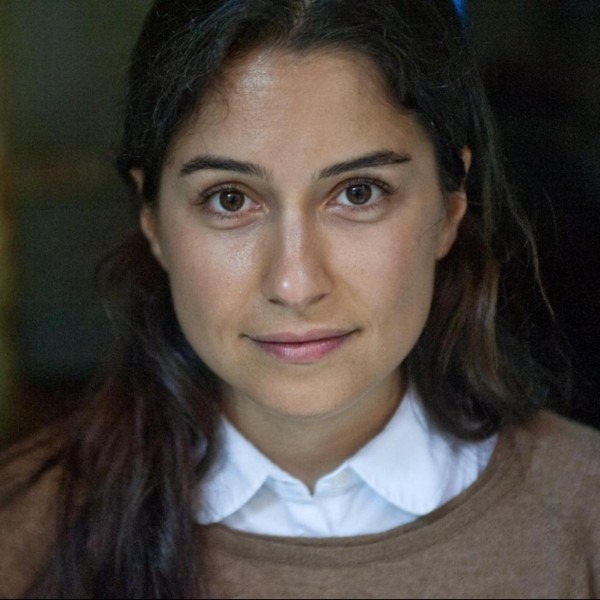 Arzu Geybullayeva is Board Member, South Caucasus and Turkey Editor of Global Voices, which she joined in 2010. An Azerbaijani columnist and writer, she has a special focus in digital authoritarianism and its implications on human rights and press freedom in Azerbaijan. Arzu has written for Al Jazeera, Eurasianet, Foreign Policy Democracy Lab, CODA, Open Democracy, Radio Free Europe, and CNN International. She is a regular contributor at IWPR, Osservatorio Balcani e Caucaso and Global Voices. In 2019, Arzu launched Azerbaijan Internet Watch, a platform that documents, and monitors information controls in Azerbaijan.
Arzu Geybullayeva is Board Member, South Caucasus and Turkey Editor of Global Voices, which she joined in 2010. An Azerbaijani columnist and writer, she has a special focus in digital authoritarianism and its implications on human rights and press freedom in Azerbaijan. Arzu has written for Al Jazeera, Eurasianet, Foreign Policy Democracy Lab, CODA, Open Democracy, Radio Free Europe, and CNN International. She is a regular contributor at IWPR, Osservatorio Balcani e Caucaso and Global Voices. In 2019, Arzu launched Azerbaijan Internet Watch, a platform that documents, and monitors information controls in Azerbaijan.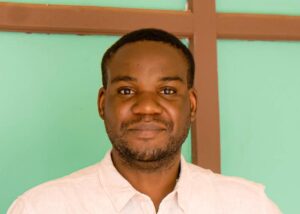 Steward Muhindo Kalyamughuma is an activist with the non-violent, non-partisan citizen movement LUCHA (Lutte pour le Changement), which has been campaigning peacefully for peace, democracy, justice and good governance in the Democratic Republic of Congo since 2012. A lawyer by training, Steward Muhindo is also attached to the Centre de Recherche sur l’Environnement, la Démocratie et les Droits de l’Homme (CREDDHO) as a researcher on human rights and the armed conflicts that have shaken the eastern Democratic Republic of Congo since 1996.
Steward Muhindo Kalyamughuma is an activist with the non-violent, non-partisan citizen movement LUCHA (Lutte pour le Changement), which has been campaigning peacefully for peace, democracy, justice and good governance in the Democratic Republic of Congo since 2012. A lawyer by training, Steward Muhindo is also attached to the Centre de Recherche sur l’Environnement, la Démocratie et les Droits de l’Homme (CREDDHO) as a researcher on human rights and the armed conflicts that have shaken the eastern Democratic Republic of Congo since 1996.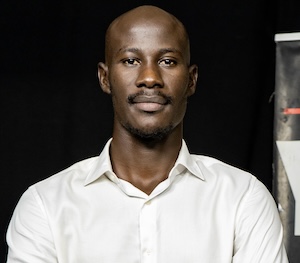 Abdou Khafor Kandji was born and raised in Diourbel, a region of Senegal located over a hundred kilometers from Dakar. He holds a degree in business and organization management from the Institut Africain de Management (IAM). He became an activist in the Y en a Marre movement in 2012. Since 2014, he has held various positions within the movement, notably in coordination. Since October 2023, he has been pursuing a master’s degree in monitoring and evaluation of projects, programs and policies at the Centre Africain d’Etudes Supérieur en Gestion (Cesag).
Abdou Khafor Kandji was born and raised in Diourbel, a region of Senegal located over a hundred kilometers from Dakar. He holds a degree in business and organization management from the Institut Africain de Management (IAM). He became an activist in the Y en a Marre movement in 2012. Since 2014, he has held various positions within the movement, notably in coordination. Since October 2023, he has been pursuing a master’s degree in monitoring and evaluation of projects, programs and policies at the Centre Africain d’Etudes Supérieur en Gestion (Cesag).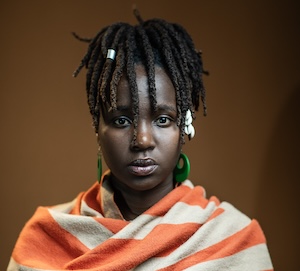 Eliane Feza was born in Goma in the province of Nord-Kivu in the east of the Democratic Republic of the Congo. Trained as a lawyer with a master’s degree in criminal law, Eliane is a slam artist with the Goma slam session collective, and a trainer in slam therapy and slam-feminin. Blogger, women’s and children’s rights activist, environmental activist, public speaking trainer, peacebuilder, humanitarian volunteer with the GOMA ACTIF collective, PRIX RÉGIONAL DES JEUNES INNOVATEURS (2023) of the Great Lakes region and PRIX JEUNES ESPOIRS (2023) of the Democratic Republic of the Congo and its diaspora, awarded to 100 young Congolese who initiate initiatives contributing to the achievement of the 2030 Agenda.
Eliane Feza was born in Goma in the province of Nord-Kivu in the east of the Democratic Republic of the Congo. Trained as a lawyer with a master’s degree in criminal law, Eliane is a slam artist with the Goma slam session collective, and a trainer in slam therapy and slam-feminin. Blogger, women’s and children’s rights activist, environmental activist, public speaking trainer, peacebuilder, humanitarian volunteer with the GOMA ACTIF collective, PRIX RÉGIONAL DES JEUNES INNOVATEURS (2023) of the Great Lakes region and PRIX JEUNES ESPOIRS (2023) of the Democratic Republic of the Congo and its diaspora, awarded to 100 young Congolese who initiate initiatives contributing to the achievement of the 2030 Agenda.
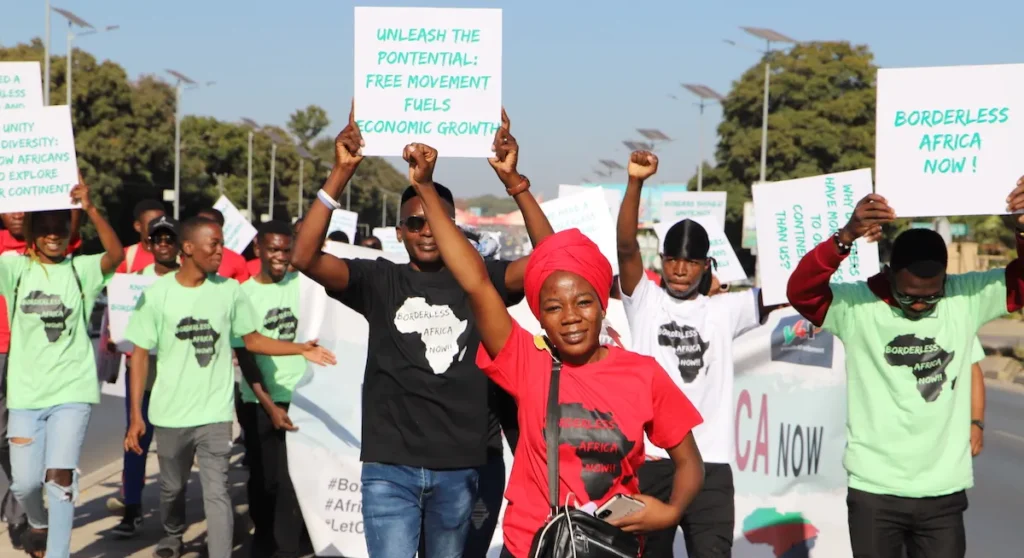
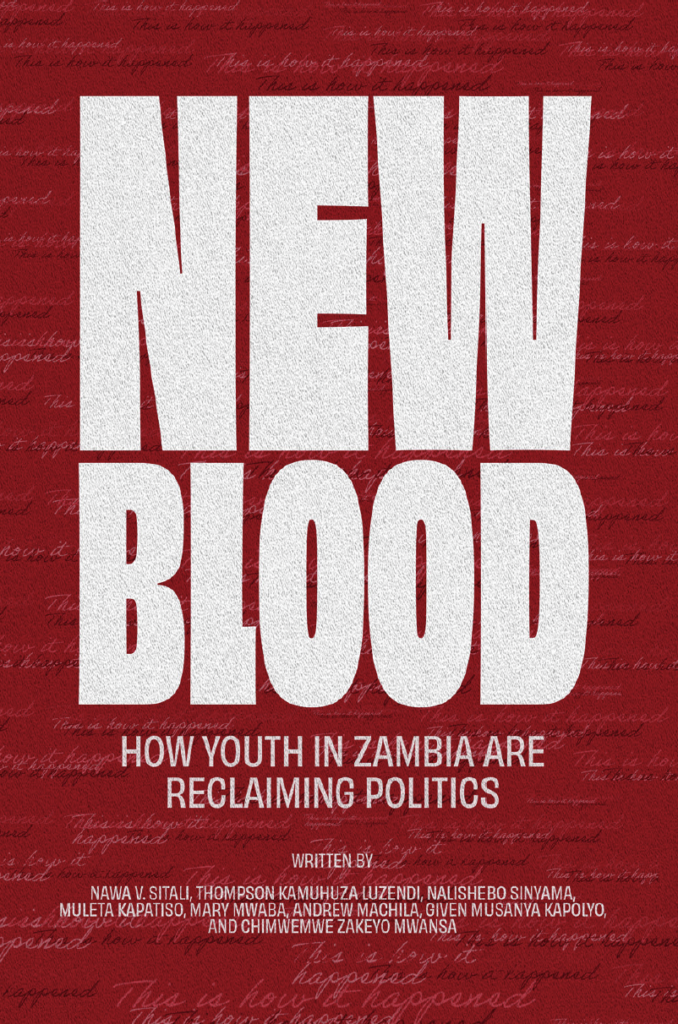
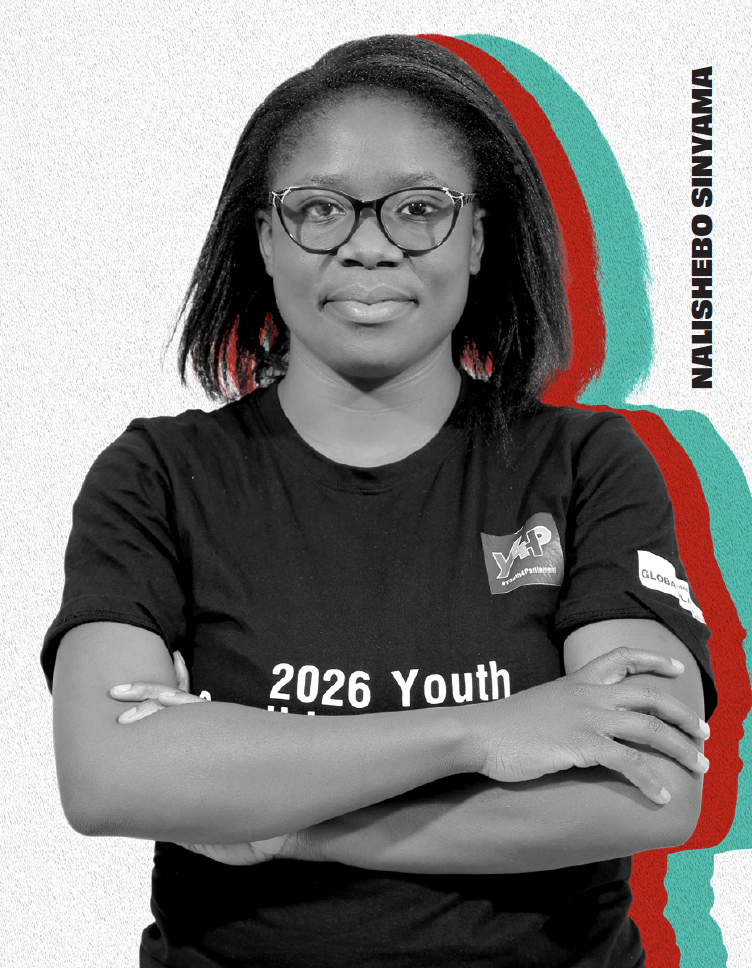 Nalishebo Sinyama is co-author of New Blood and currently serves as the Movement Manager of Youth4Parliament. She is a community organizing specialist, feminist, and young female politician. Nalishebo is the first and youngest woman to be appointed as provincial chairperson in one of the biggest political parties in Zambia. In 2021, Nalishebo was the only female aspirant vying for the Kabwata Constituency parliamentary elections under the opposition political party (the Patriotic Front).
Nalishebo Sinyama is co-author of New Blood and currently serves as the Movement Manager of Youth4Parliament. She is a community organizing specialist, feminist, and young female politician. Nalishebo is the first and youngest woman to be appointed as provincial chairperson in one of the biggest political parties in Zambia. In 2021, Nalishebo was the only female aspirant vying for the Kabwata Constituency parliamentary elections under the opposition political party (the Patriotic Front).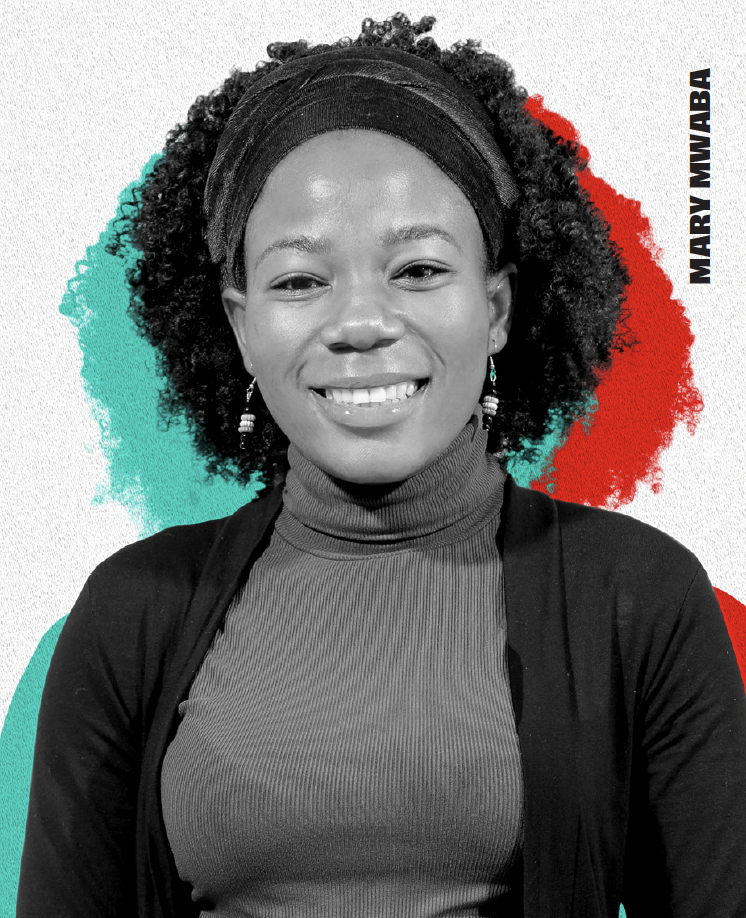
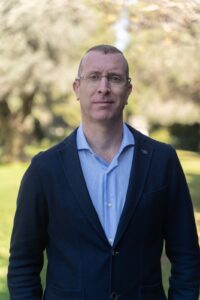 Doron Shultziner received his B.A. from the Political Science Department and the Middle Eastern Studies Department in the Hebrew University (2000), and his M.A. (Summa Cum Laude) from the Political Science Department at the Hebrew University (2004). He received his Ph.D. from the Politics & IR Department at the University of Oxford (2008). Later he worked as a post-doctoral fellow and visiting lecturer at Emory University. He returned to Israel in 2009 and worked as a post-doctoral fellow until 2012. He then became the academic director of an Israeli think tank for Zionist, democratic, and liberal thought. Prof. Shultziner joined the Politics & Communication Department at Hadassah Academic College in 2014.
Doron Shultziner received his B.A. from the Political Science Department and the Middle Eastern Studies Department in the Hebrew University (2000), and his M.A. (Summa Cum Laude) from the Political Science Department at the Hebrew University (2004). He received his Ph.D. from the Politics & IR Department at the University of Oxford (2008). Later he worked as a post-doctoral fellow and visiting lecturer at Emory University. He returned to Israel in 2009 and worked as a post-doctoral fellow until 2012. He then became the academic director of an Israeli think tank for Zionist, democratic, and liberal thought. Prof. Shultziner joined the Politics & Communication Department at Hadassah Academic College in 2014.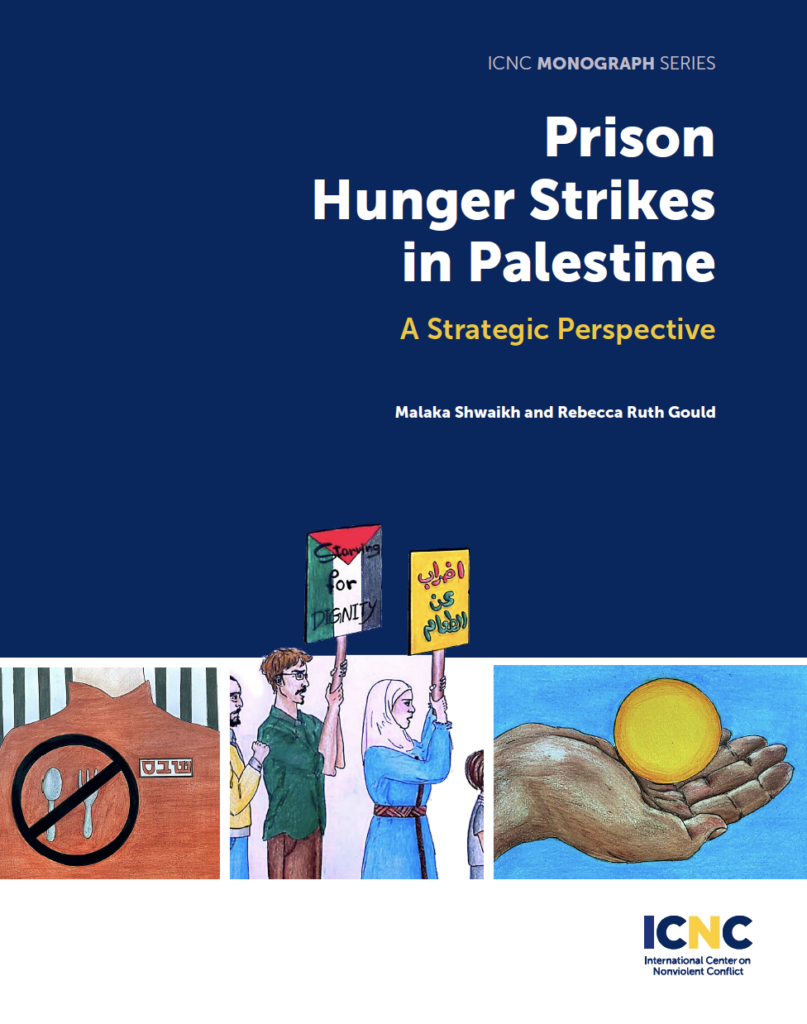
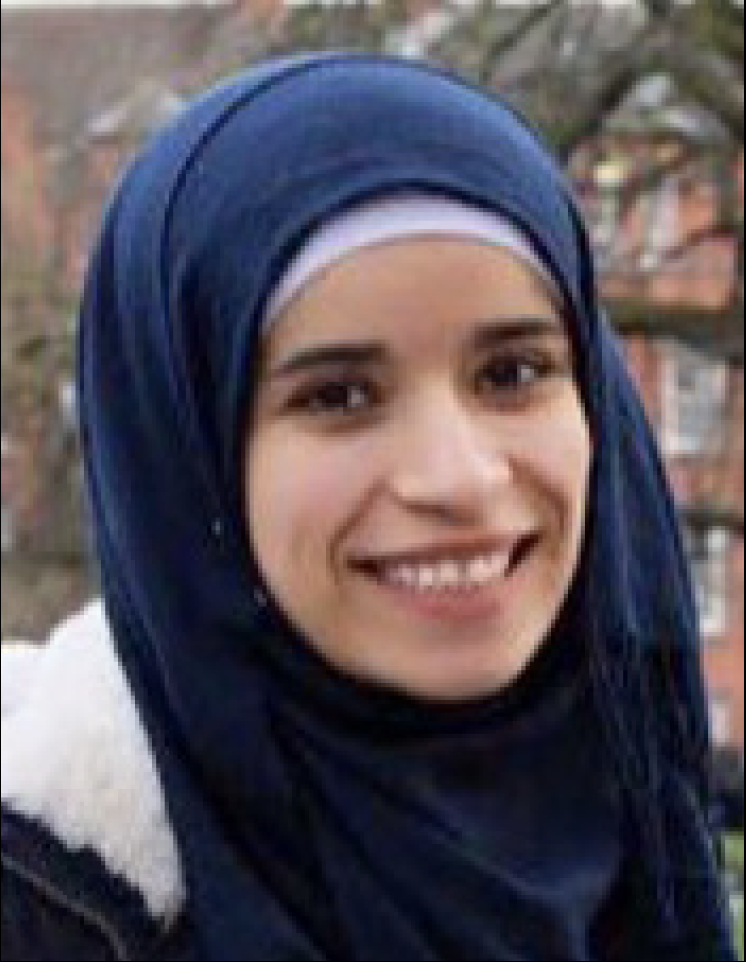 Malaka Mohammed Shwaikh is a Palestinian academic from the Gaza Strip, based at the University of St. Andrews in Scotland where she teaches and researches prisons as spaces of power, resistance, and peacebuilding. She is the author of several works at the intersection of prison resistance and power, including “Dynamics of Prison Resistance: Hunger Strikes by Palestinian Political Prisoners in Israeli Prisons” (Jerusalem Quarterly, 2018), “Engendering Hunger Strikes: Palestinian Women in Israeli Prisons” (British Journal of Middle Eastern Studies, 2020), and most recently, “Prison Periods: Bodily Resistance to Gendered Control” (Journal of Feminist Scholarship, 2022). She finds purpose and joy in giving back to the community and being involved in social justice work. Her most recent and ongoing project (since 2021) is Freelancers in Gaza, with Candace Amani, to connect freelancers in Gaza with clients around the world and provide them with tailored mentorship.
Malaka Mohammed Shwaikh is a Palestinian academic from the Gaza Strip, based at the University of St. Andrews in Scotland where she teaches and researches prisons as spaces of power, resistance, and peacebuilding. She is the author of several works at the intersection of prison resistance and power, including “Dynamics of Prison Resistance: Hunger Strikes by Palestinian Political Prisoners in Israeli Prisons” (Jerusalem Quarterly, 2018), “Engendering Hunger Strikes: Palestinian Women in Israeli Prisons” (British Journal of Middle Eastern Studies, 2020), and most recently, “Prison Periods: Bodily Resistance to Gendered Control” (Journal of Feminist Scholarship, 2022). She finds purpose and joy in giving back to the community and being involved in social justice work. Her most recent and ongoing project (since 2021) is Freelancers in Gaza, with Candace Amani, to connect freelancers in Gaza with clients around the world and provide them with tailored mentorship.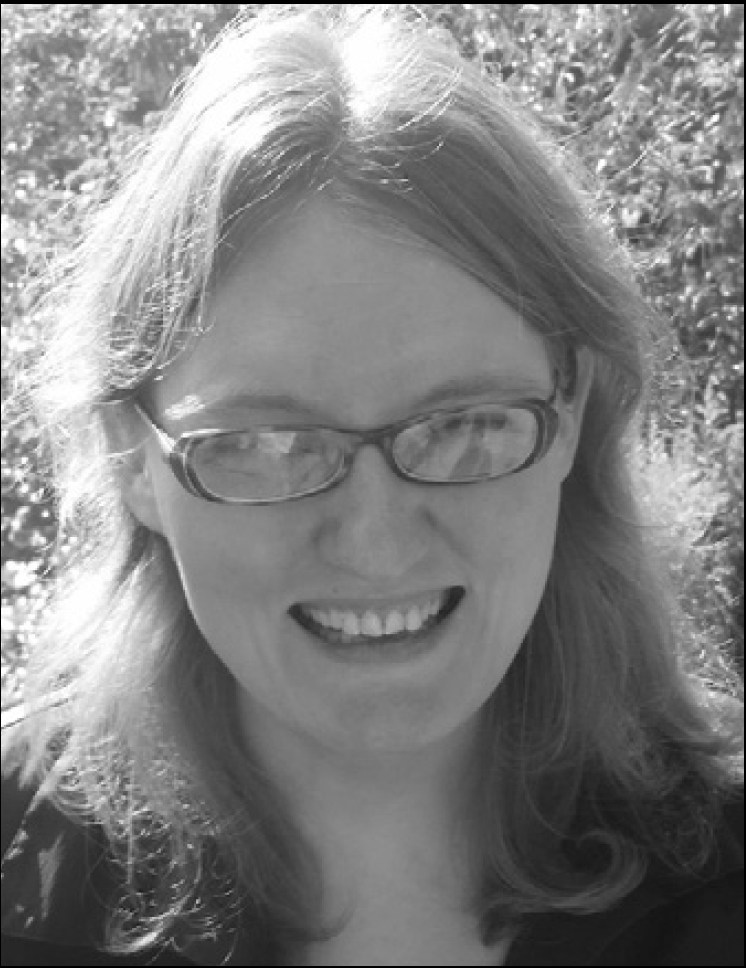 Rebecca Ruth Gould is the author of numerous works at the intersection of aesthetics and politics, including Writers and Rebels: The Literature of Insurgency in the Caucasus (Yale University Press, 2016), The Persian Prison Poem: Sovereignty and the Political Imagination (Edinburgh University Press, 2021), and, most recently, Erasing Palestine: Free Speech and Palestinian Freedom (Verso Books, 2023). Together with Malaka Shwaikh, she is the author of “The Palestine Exception to Academic Freedom: Intertwined Stories from the Frontlines of UK-Based Palestine Activism,” Biography: An Interdisciplinary Quarterly (2020), which brought together their shared interests relating to Palestinian liberation. She is Professor, Islamic World & Comparative Literature, at the University of Birmingham, where she directs the GlobalLIT project.
Rebecca Ruth Gould is the author of numerous works at the intersection of aesthetics and politics, including Writers and Rebels: The Literature of Insurgency in the Caucasus (Yale University Press, 2016), The Persian Prison Poem: Sovereignty and the Political Imagination (Edinburgh University Press, 2021), and, most recently, Erasing Palestine: Free Speech and Palestinian Freedom (Verso Books, 2023). Together with Malaka Shwaikh, she is the author of “The Palestine Exception to Academic Freedom: Intertwined Stories from the Frontlines of UK-Based Palestine Activism,” Biography: An Interdisciplinary Quarterly (2020), which brought together their shared interests relating to Palestinian liberation. She is Professor, Islamic World & Comparative Literature, at the University of Birmingham, where she directs the GlobalLIT project.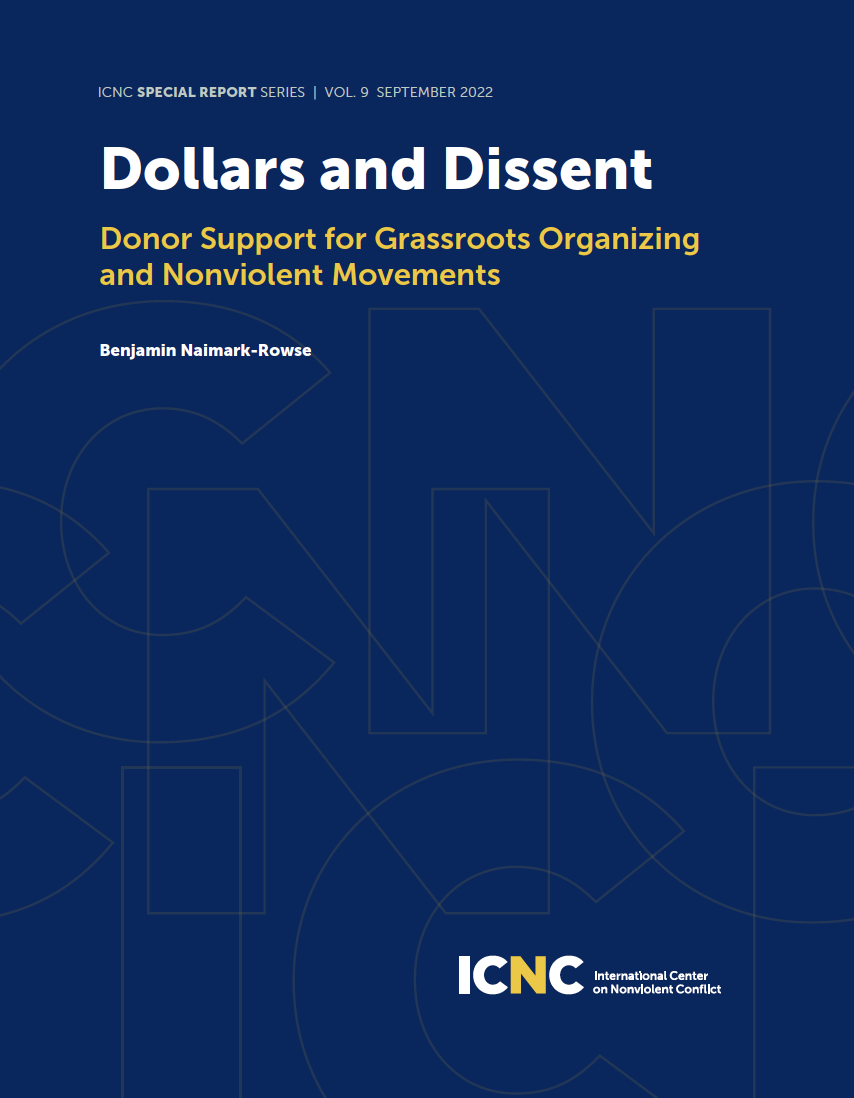
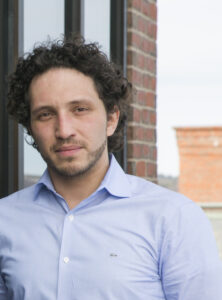
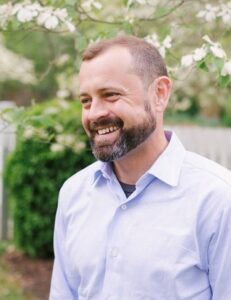 Tom Perriello is a former Congressman (VA-05), diplomat (State Department) and advocate for human rights and democracy within the United States and around the world. Tom currently serves as the Executive Director of Open Society Foundations for the United States (OSUS), a philanthropy dedicated to supporting open, inclusive, democratic societies. During his time in Congress, Tom voted in favor of the landmark legislation for healthcare reform, climate change, immigration, antitrust, and economic recovery. During the Obama Administration, he served as the Special Envoy to the African Great Lakes region and authored the second Quadrennial Diplomacy and Development Review. Tom also served as the President of Center for American Progress Action, and Senior Counselor to CAP, as well as co-founder of Avaaz.org and Faithful America. Tom’s writing has been published in the New York Times, Washington Post, Atlantic, Democracy Journal, The Hill, CNN.com, Slate.com, and Politico.
Tom Perriello is a former Congressman (VA-05), diplomat (State Department) and advocate for human rights and democracy within the United States and around the world. Tom currently serves as the Executive Director of Open Society Foundations for the United States (OSUS), a philanthropy dedicated to supporting open, inclusive, democratic societies. During his time in Congress, Tom voted in favor of the landmark legislation for healthcare reform, climate change, immigration, antitrust, and economic recovery. During the Obama Administration, he served as the Special Envoy to the African Great Lakes region and authored the second Quadrennial Diplomacy and Development Review. Tom also served as the President of Center for American Progress Action, and Senior Counselor to CAP, as well as co-founder of Avaaz.org and Faithful America. Tom’s writing has been published in the New York Times, Washington Post, Atlantic, Democracy Journal, The Hill, CNN.com, Slate.com, and Politico. Harley McDonald-Eckersall is a social change organiser, specialising in areas of strategic communications and movement strategy. In 2016 at age 19, Harley became involved with the Animal justice movement, co-founding the organisation Young Voices for Animals with the mission to educate and inspire the next generation of animal liberation activists. In January 2020, Harley moved to the UK from Australia to work on narrative and strategy at the social movement organisation Animal Rebellion where she used social movement and narrative theory to bring the impacts of animal farming and fishing into the broader conversation around climate action. Harley has recently returned home to Australia to continue her work as a communicator, facilitator and presenter who is passionate about sharing the power of nonviolent action in creating social change. Harley has presented at a number of conferences and events in Australia and internationally on topics of social change, direct action and civil disobedience.
Harley McDonald-Eckersall is a social change organiser, specialising in areas of strategic communications and movement strategy. In 2016 at age 19, Harley became involved with the Animal justice movement, co-founding the organisation Young Voices for Animals with the mission to educate and inspire the next generation of animal liberation activists. In January 2020, Harley moved to the UK from Australia to work on narrative and strategy at the social movement organisation Animal Rebellion where she used social movement and narrative theory to bring the impacts of animal farming and fishing into the broader conversation around climate action. Harley has recently returned home to Australia to continue her work as a communicator, facilitator and presenter who is passionate about sharing the power of nonviolent action in creating social change. Harley has presented at a number of conferences and events in Australia and internationally on topics of social change, direct action and civil disobedience.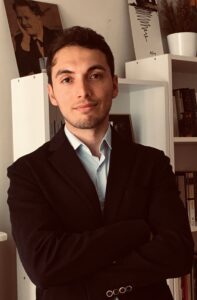
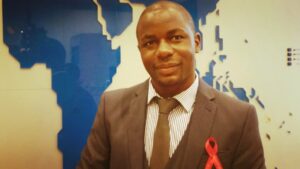


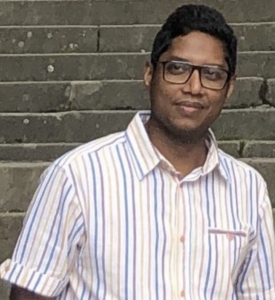

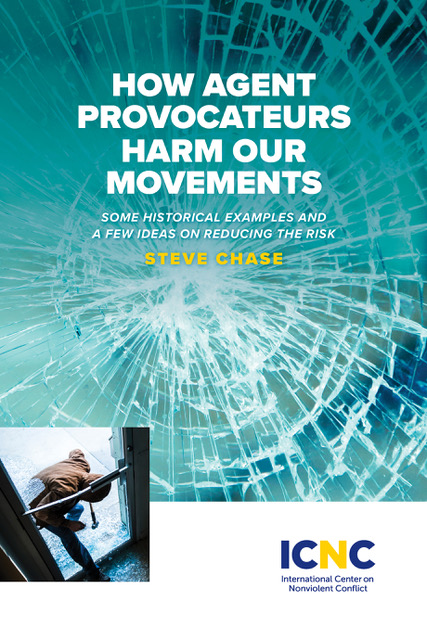
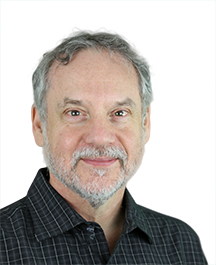 Steve Chase is a long-time activist, educator, and writer. He has been an editor at South End Press, the founding director of Antioch University’s master’s level activist training program in Advocacy for Social Justice and Sustainability, and the Manager of Academic Initiatives for the International Center on Nonviolent Conflict. He is currently the Assistant Director of Solidarity 2020 and Beyond, a solidarity network and community of practice for grassroots movement organizers in the Global South using advocacy, peacebuilding, and nonviolent resistance to win sustainability, rights, freedom, and justice.
Steve Chase is a long-time activist, educator, and writer. He has been an editor at South End Press, the founding director of Antioch University’s master’s level activist training program in Advocacy for Social Justice and Sustainability, and the Manager of Academic Initiatives for the International Center on Nonviolent Conflict. He is currently the Assistant Director of Solidarity 2020 and Beyond, a solidarity network and community of practice for grassroots movement organizers in the Global South using advocacy, peacebuilding, and nonviolent resistance to win sustainability, rights, freedom, and justice.
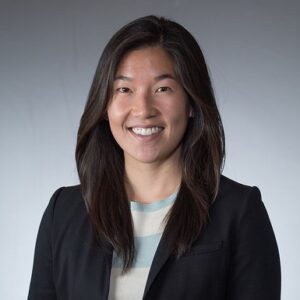 Sooyeon Kang is a Post-Doctoral Research Fellow at the Mershon Center for International Security Studies (Ohio State University) and a non-resident Fellow at the Carr Center for Human Rights (Harvard Kennedy School). She received her doctorate from the Josef Korbel School of International Studies, University of Denver, and was a 2020-2021 Peace Scholar Fellow at the United States Institute of Peace and a Doctoral Research Fellow at the International Center on Nonviolent Conflict. Her research interests include mass mobilization, political violence, political psychology, and all things North Korea. She holds an MA in International Affairs from The Fletcher School of Law and Diplomacy and a BA in Government and Psychology from Dartmouth College.
Sooyeon Kang is a Post-Doctoral Research Fellow at the Mershon Center for International Security Studies (Ohio State University) and a non-resident Fellow at the Carr Center for Human Rights (Harvard Kennedy School). She received her doctorate from the Josef Korbel School of International Studies, University of Denver, and was a 2020-2021 Peace Scholar Fellow at the United States Institute of Peace and a Doctoral Research Fellow at the International Center on Nonviolent Conflict. Her research interests include mass mobilization, political violence, political psychology, and all things North Korea. She holds an MA in International Affairs from The Fletcher School of Law and Diplomacy and a BA in Government and Psychology from Dartmouth College.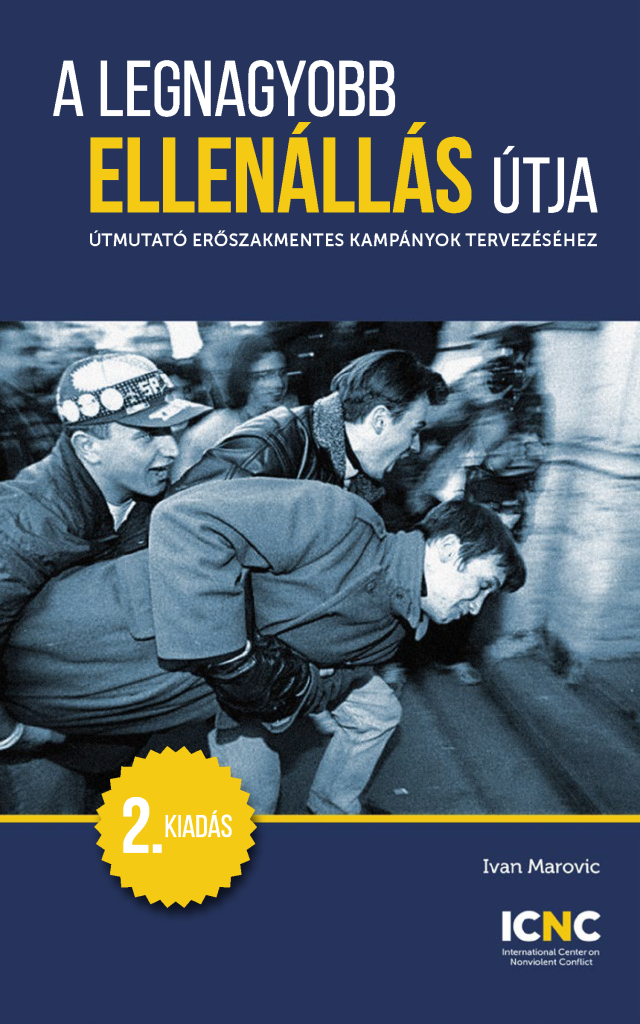
 Robyn Gulliver is a multi-award winning environmentalist, writer, and researcher who has served as an organizer and leader of numerous local and national environmental organizations. Born in New Zealand, she has spent the last decade advocating for and writing about environmental issues for activist groups, local councils, not-for-profit organizations, and academia.
Robyn Gulliver is a multi-award winning environmentalist, writer, and researcher who has served as an organizer and leader of numerous local and national environmental organizations. Born in New Zealand, she has spent the last decade advocating for and writing about environmental issues for activist groups, local councils, not-for-profit organizations, and academia.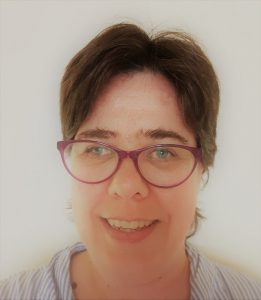 Winnifred R. Louis is a Professor of Psychology at the University of Queensland, Australia. Her research interests focus on the influence of identity and norms on social decision-making. She has studied this broad topic in contexts from political activism to peace psychology to health and the environment.
Winnifred R. Louis is a Professor of Psychology at the University of Queensland, Australia. Her research interests focus on the influence of identity and norms on social decision-making. She has studied this broad topic in contexts from political activism to peace psychology to health and the environment.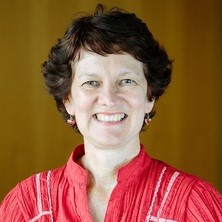 Kelly Fielding is a Professor of Environmental Psychology at the University of Queensland in the School of Communication and Arts. Her research focuses broadly on understanding the social and psychological determinants of environmental sustainability. She seeks to understand environmental decisions and behaviors and to develop communication and behavior change strategies that can promote greater environmental sustainability.
Kelly Fielding is a Professor of Environmental Psychology at the University of Queensland in the School of Communication and Arts. Her research focuses broadly on understanding the social and psychological determinants of environmental sustainability. She seeks to understand environmental decisions and behaviors and to develop communication and behavior change strategies that can promote greater environmental sustainability. Jacob Lewis is an Assistant Professor of Global Politics in the School of Politics, Philosophy, and Public Affairs at Washington State University. His research centers on conflict processes and political psychology in the African context. He holds a Ph.D. from the University of Maryland and has worked extensively in the fields of international development and public policy.
Jacob Lewis is an Assistant Professor of Global Politics in the School of Politics, Philosophy, and Public Affairs at Washington State University. His research centers on conflict processes and political psychology in the African context. He holds a Ph.D. from the University of Maryland and has worked extensively in the fields of international development and public policy. A. Scott DuPree (PhD, Civil Society Transitions) has worked for 30 years in helping build and strengthen social and environmental initiatives in Southern Africa, Brazil, Mexico, Southeast Asia and the United States. Scott holds a PhD in international affairs focused on the dynamic role of civil society. He has assisted international organizations and philanthropic foundations to advance civic approaches to development, human rights, the environment and grassroots activism. Scott was regional director for Africa for The Synergos Institute, co-founder and Program Director for Conectas Direitos Humanos, Greengrants Alliance coordinator for Global Greengrants Fund and the principal of Civil Society Transitions through which he has consulted for numerous organizations around the world. Scott is also a professor in the Masters of Development Program “Global Classroom” at Regis University where he teaches participatory planning and grassroots and indigenous activism.
A. Scott DuPree (PhD, Civil Society Transitions) has worked for 30 years in helping build and strengthen social and environmental initiatives in Southern Africa, Brazil, Mexico, Southeast Asia and the United States. Scott holds a PhD in international affairs focused on the dynamic role of civil society. He has assisted international organizations and philanthropic foundations to advance civic approaches to development, human rights, the environment and grassroots activism. Scott was regional director for Africa for The Synergos Institute, co-founder and Program Director for Conectas Direitos Humanos, Greengrants Alliance coordinator for Global Greengrants Fund and the principal of Civil Society Transitions through which he has consulted for numerous organizations around the world. Scott is also a professor in the Masters of Development Program “Global Classroom” at Regis University where he teaches participatory planning and grassroots and indigenous activism. Chris Allan, Ajabu Advisors LLC, has experience with public donors, foundations, and local and international NGOs working in social change, including designing, planning, implementing, and evaluating programs around the globe. He has led or participated in evaluations of global networks, international partnerships, and organizations in many countries (including Brazil, Georgia, Ghana, Indonesia, Kyrgyzstan, Mexico, Niger, Peru, Russia, Rwanda, Somalia, Sudan, Tajikistan, Tanzania, and Zimbabwe). In the human rights field, he has organized and funded grassroots groups, national coalitions, and global alliances working on public participation in decision making about a wide range of issues. He has set up and led grantmaking programs in East Africa, Southern Africa, and globally. He holds a Master’s Degree in Social Change and Development from The Johns Hopkins University School of Advanced International Studies, and a Bachelor’s Degree from Wesleyan University in African Studies and Biology.
Chris Allan, Ajabu Advisors LLC, has experience with public donors, foundations, and local and international NGOs working in social change, including designing, planning, implementing, and evaluating programs around the globe. He has led or participated in evaluations of global networks, international partnerships, and organizations in many countries (including Brazil, Georgia, Ghana, Indonesia, Kyrgyzstan, Mexico, Niger, Peru, Russia, Rwanda, Somalia, Sudan, Tajikistan, Tanzania, and Zimbabwe). In the human rights field, he has organized and funded grassroots groups, national coalitions, and global alliances working on public participation in decision making about a wide range of issues. He has set up and led grantmaking programs in East Africa, Southern Africa, and globally. He holds a Master’s Degree in Social Change and Development from The Johns Hopkins University School of Advanced International Studies, and a Bachelor’s Degree from Wesleyan University in African Studies and Biology.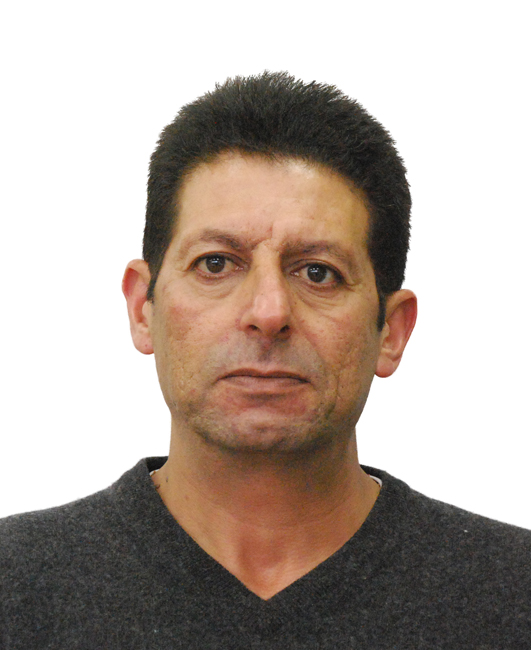 Dr. Mahmoud Soliman is a Palestinian nonviolent activist and academic. He completed his PhD in Peace and Conflict Resolution Studies at Coventry University in April 2019, and the title of his thesis was “Mobilization and Demobilization of Palestinian Society Towards Nonviolent Resistance in the Period from 2004-2014.” He has gained extensive experience in the last 15 years in organizing nonviolent campaigns against the Segregation Wall and the Israeli settlements. He is one of the cofounders of a popular nonviolent resistance network called the Popular Struggle Coordination Committee (PSCC) in which he worked as the capacity-building coordinator supervising the production of training materials for activists in the occupied Palestinian Territories.
Dr. Mahmoud Soliman is a Palestinian nonviolent activist and academic. He completed his PhD in Peace and Conflict Resolution Studies at Coventry University in April 2019, and the title of his thesis was “Mobilization and Demobilization of Palestinian Society Towards Nonviolent Resistance in the Period from 2004-2014.” He has gained extensive experience in the last 15 years in organizing nonviolent campaigns against the Segregation Wall and the Israeli settlements. He is one of the cofounders of a popular nonviolent resistance network called the Popular Struggle Coordination Committee (PSCC) in which he worked as the capacity-building coordinator supervising the production of training materials for activists in the occupied Palestinian Territories. Dr. Luke Abbs is a research fellow at the Centre for Religion, Reconciliation and Peace (CRRP) and visiting fellow at the Department of Government, University of Essex. Luke engages in applied data analytics, using statistical methods and supervised machine learning prediction to analyze the dynamics of political conflict and to inform key policy questions about peace and armed conflict. Along with the published monograph discussed in this webinar, his work has been published in the Journal of Peace Research, Journal of Conflict Resolution, the Journal of Global Security Studies and Mobilization.
Dr. Luke Abbs is a research fellow at the Centre for Religion, Reconciliation and Peace (CRRP) and visiting fellow at the Department of Government, University of Essex. Luke engages in applied data analytics, using statistical methods and supervised machine learning prediction to analyze the dynamics of political conflict and to inform key policy questions about peace and armed conflict. Along with the published monograph discussed in this webinar, his work has been published in the Journal of Peace Research, Journal of Conflict Resolution, the Journal of Global Security Studies and Mobilization.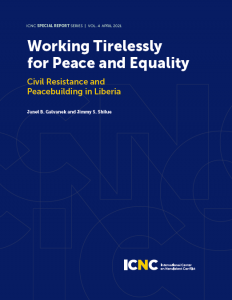
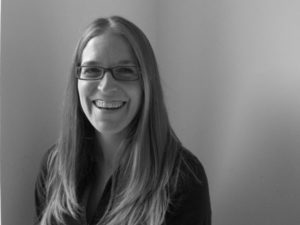 Janel B. Galvanek is the Head of the Sub-Saharan Africa Unit at the Berghof Foundation in Berlin, Germany. With its programming in Somalia, Ethiopia and Zimbabwe, the Unit supports the capacity-building of insider mediators and infrastructures for peace (I4P) and fosters multi-track dialogue among and between various communities. On a volunteer basis, Janel is the director of Growing Tree Liberia, an NGO based in Germany that supports programs for disadvantaged children in Liberia. She holds a Master’s degree in Peace Research and Security Policy from Hamburg University and an MA from Georgetown University in Washington, DC.
Janel B. Galvanek is the Head of the Sub-Saharan Africa Unit at the Berghof Foundation in Berlin, Germany. With its programming in Somalia, Ethiopia and Zimbabwe, the Unit supports the capacity-building of insider mediators and infrastructures for peace (I4P) and fosters multi-track dialogue among and between various communities. On a volunteer basis, Janel is the director of Growing Tree Liberia, an NGO based in Germany that supports programs for disadvantaged children in Liberia. She holds a Master’s degree in Peace Research and Security Policy from Hamburg University and an MA from Georgetown University in Washington, DC.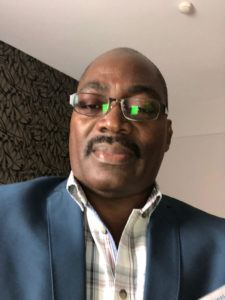 James Suah Shilue is Executive Director for Liberian NGO, Platform for Dialogue and Peace (P4DP) since June 2012. Prior to occupying this position, he served as Liberia’s Programme Coordinator for UN Joint Programme/Interpeace Initiative (2007-2012). He presently serves as chairman for CSOs Cluster on peacebuilding and national reconciliation. He is also an adjunct lecturer at the Department of Sociology & Anthropology at the University of Liberia. His professional areas of interest include social research, post war reconstruction & development, rule of law, peacebuilding and conflict prevention, youth, women peace and security and human security. He has enormous experience working with national and international stakeholders to communicate complex findings into policy relevant action plans. He holds a master’s degree in social and Community Studies (De Montfort University, UK) and an MA in Development Studies (Institute of Social Studies, The Netherlands).
James Suah Shilue is Executive Director for Liberian NGO, Platform for Dialogue and Peace (P4DP) since June 2012. Prior to occupying this position, he served as Liberia’s Programme Coordinator for UN Joint Programme/Interpeace Initiative (2007-2012). He presently serves as chairman for CSOs Cluster on peacebuilding and national reconciliation. He is also an adjunct lecturer at the Department of Sociology & Anthropology at the University of Liberia. His professional areas of interest include social research, post war reconstruction & development, rule of law, peacebuilding and conflict prevention, youth, women peace and security and human security. He has enormous experience working with national and international stakeholders to communicate complex findings into policy relevant action plans. He holds a master’s degree in social and Community Studies (De Montfort University, UK) and an MA in Development Studies (Institute of Social Studies, The Netherlands).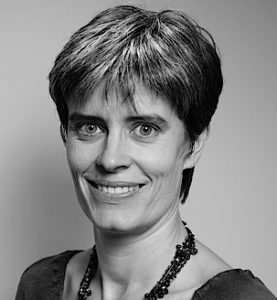 Véronique Dudouet is a Senior Research Advisor at Berghof Foundation in Berlin (Germany). Since 2005, she has managed various collaborative research projects on non-state armed groups, inclusive peace processes, negotiation and mediation, post-war political/security transitions, protest movements and nonviolent transitions of power. She conducts regular policy advice, peer-to-peer advice and training seminars for/with conflict and peacebuilding stakeholders. She also carries out consultancy research for international agencies (e.g. UNDP, UNDPO, OECD-DAC, EEAS, GIZ). She is member of the French Research Institute for Nonviolent Conflict Resolution (IRNC), and steering committee member of the Politics After War (PAW) research network. In March-October 2019, she was a Jennings Randolph Senior Fellow at the U.S. Institute of Peace in Washington DC. She has authored numerous publications (including three books) in the fields of conflict transformation and nonviolent resistance. She holds an MA and a PhD in Conflict Resolution from the University of Bradford, UK, and a BA in political science and MPhil in International Relations and Security from the Institut d’Etudes Politiques, Toulouse, France.
Véronique Dudouet is a Senior Research Advisor at Berghof Foundation in Berlin (Germany). Since 2005, she has managed various collaborative research projects on non-state armed groups, inclusive peace processes, negotiation and mediation, post-war political/security transitions, protest movements and nonviolent transitions of power. She conducts regular policy advice, peer-to-peer advice and training seminars for/with conflict and peacebuilding stakeholders. She also carries out consultancy research for international agencies (e.g. UNDP, UNDPO, OECD-DAC, EEAS, GIZ). She is member of the French Research Institute for Nonviolent Conflict Resolution (IRNC), and steering committee member of the Politics After War (PAW) research network. In March-October 2019, she was a Jennings Randolph Senior Fellow at the U.S. Institute of Peace in Washington DC. She has authored numerous publications (including three books) in the fields of conflict transformation and nonviolent resistance. She holds an MA and a PhD in Conflict Resolution from the University of Bradford, UK, and a BA in political science and MPhil in International Relations and Security from the Institut d’Etudes Politiques, Toulouse, France.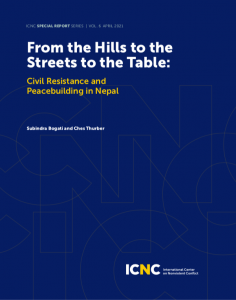
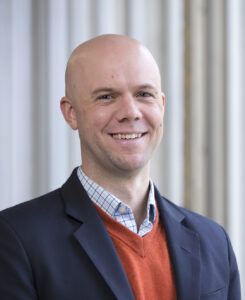 Ches Thurber is an Assistant Professor in the Department of Political Science at Northern Illinois University. His book, Between Mao and Gandhi: The Social Roots of Civil Resistance, will be published by Cambridge University Press later this year. In the book, Dr. Thurber investigates how social structures inform movements’ willingness to engage in nonviolent and violent strategies. Dr. Thurber’s previous research has been published in International Studies Quarterly, the Journal of Global Security Studies, Conflict Management and Peace Science, and other outlets. He received his PhD from The Fletcher School of Law and Diplomacy at Tufts University.
Ches Thurber is an Assistant Professor in the Department of Political Science at Northern Illinois University. His book, Between Mao and Gandhi: The Social Roots of Civil Resistance, will be published by Cambridge University Press later this year. In the book, Dr. Thurber investigates how social structures inform movements’ willingness to engage in nonviolent and violent strategies. Dr. Thurber’s previous research has been published in International Studies Quarterly, the Journal of Global Security Studies, Conflict Management and Peace Science, and other outlets. He received his PhD from The Fletcher School of Law and Diplomacy at Tufts University.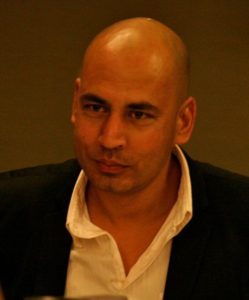 Subindra Bogati is the Founder and Chief Executive of Nepal Peacebuilding Initiative—an organization devoted to evidence-based policy and action on peacebuilding and humanitarian issues. He has been working for conflict transformation and peace process in Nepal through various national and international organizations for the last several years. Until recently, he was one of the principal investigators of the two year-long research, dialogue and policy project on “Innovations in Peacebuilding,” which was a partnership between University of Denver, Chr. Michelsen Institue (CMI) in Bergen, the Center for the Study of Violence and Reconciliation in South Africa, and the Nepal Peacebuilding Initiative, Nepal. He holds an MA in International Relations from London Metropolitan University and was awarded the FCO Chevening Fellowship in 2009 at the Centre for Studies in Security and Diplomacy, the University of Birmingham. He is a PhD candidate in the department of Political Science, Tribhuvan University, Nepal.
Subindra Bogati is the Founder and Chief Executive of Nepal Peacebuilding Initiative—an organization devoted to evidence-based policy and action on peacebuilding and humanitarian issues. He has been working for conflict transformation and peace process in Nepal through various national and international organizations for the last several years. Until recently, he was one of the principal investigators of the two year-long research, dialogue and policy project on “Innovations in Peacebuilding,” which was a partnership between University of Denver, Chr. Michelsen Institue (CMI) in Bergen, the Center for the Study of Violence and Reconciliation in South Africa, and the Nepal Peacebuilding Initiative, Nepal. He holds an MA in International Relations from London Metropolitan University and was awarded the FCO Chevening Fellowship in 2009 at the Centre for Studies in Security and Diplomacy, the University of Birmingham. He is a PhD candidate in the department of Political Science, Tribhuvan University, Nepal.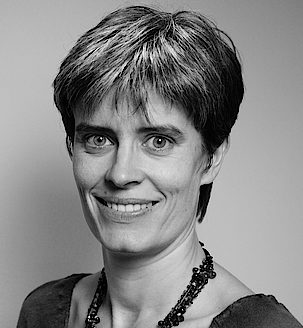 Véronique Dudouet is a Senior Research Advisor at Berghof Foundation in Berlin (Germany). Since 2005, she has managed various collaborative research projects on non-state armed groups, inclusive peace processes, negotiation and mediation, post-war political/security transitions, protest movements and nonviolent transitions of power. She conducts regular policy advice, peer-to-peer advice and training seminars for/with conflict and peacebuilding stakeholders. She also carries out consultancy research for international agencies (e.g. UNDP, UNDPO, OECD-DAC, EEAS, GIZ). She is member of the French Research Institute for Nonviolent Conflict Resolution (IRNC), and steering committee member of the Politics After War (PAW) research network. In March-October 2019, she was a Jennings Randolph Senior Fellow at the U.S. Institute of Peace in Washington DC. She has authored numerous publications (including three books) in the fields of conflict transformation and nonviolent resistance. She holds an MA and a PhD in Conflict Resolution from the University of Bradford, UK, and a BA in political science and MPhil in International Relations and Security from the Institut d’Etudes Politiques, Toulouse, France.
Véronique Dudouet is a Senior Research Advisor at Berghof Foundation in Berlin (Germany). Since 2005, she has managed various collaborative research projects on non-state armed groups, inclusive peace processes, negotiation and mediation, post-war political/security transitions, protest movements and nonviolent transitions of power. She conducts regular policy advice, peer-to-peer advice and training seminars for/with conflict and peacebuilding stakeholders. She also carries out consultancy research for international agencies (e.g. UNDP, UNDPO, OECD-DAC, EEAS, GIZ). She is member of the French Research Institute for Nonviolent Conflict Resolution (IRNC), and steering committee member of the Politics After War (PAW) research network. In March-October 2019, she was a Jennings Randolph Senior Fellow at the U.S. Institute of Peace in Washington DC. She has authored numerous publications (including three books) in the fields of conflict transformation and nonviolent resistance. She holds an MA and a PhD in Conflict Resolution from the University of Bradford, UK, and a BA in political science and MPhil in International Relations and Security from the Institut d’Etudes Politiques, Toulouse, France.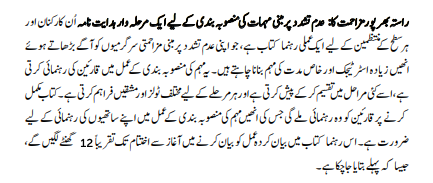
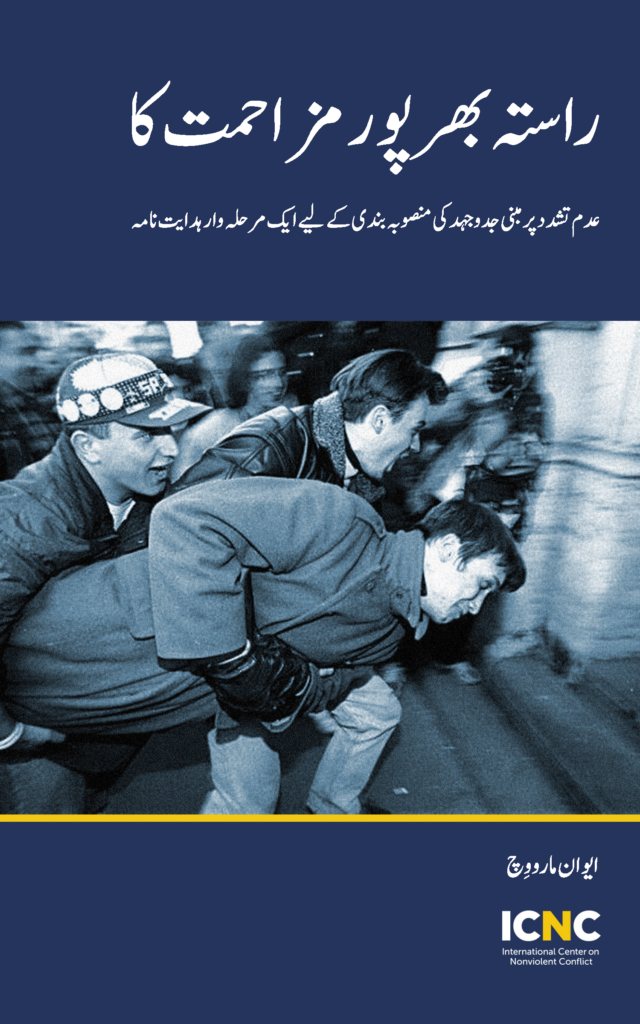
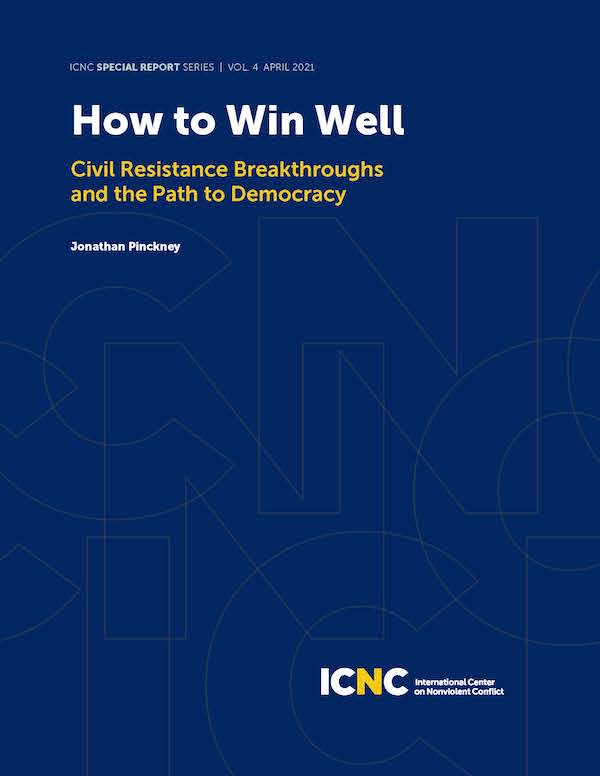
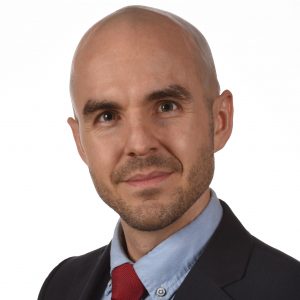 Jonathan Pinckney is senior researcher for the Program on Nonviolent Action at the United States Institute of Peace, where he conducts applied research on nonviolent action, peacebuilding, and democratization. He is the author of From Dissent to Democracy: The Promise and Peril of Civil Resistance Transitions from Oxford University Press (2020), as well as numerous academic and general outlet articles. He received his PhD in 2018 from the University of Denver.
Jonathan Pinckney is senior researcher for the Program on Nonviolent Action at the United States Institute of Peace, where he conducts applied research on nonviolent action, peacebuilding, and democratization. He is the author of From Dissent to Democracy: The Promise and Peril of Civil Resistance Transitions from Oxford University Press (2020), as well as numerous academic and general outlet articles. He received his PhD in 2018 from the University of Denver.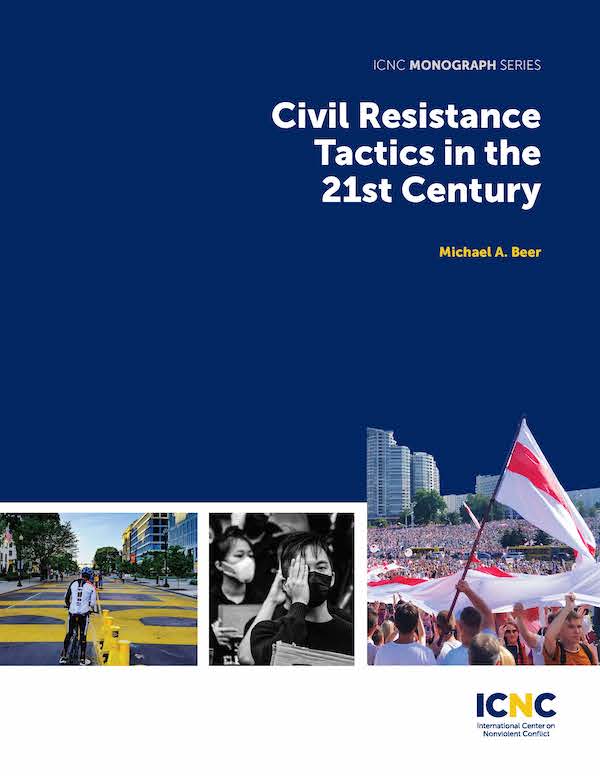
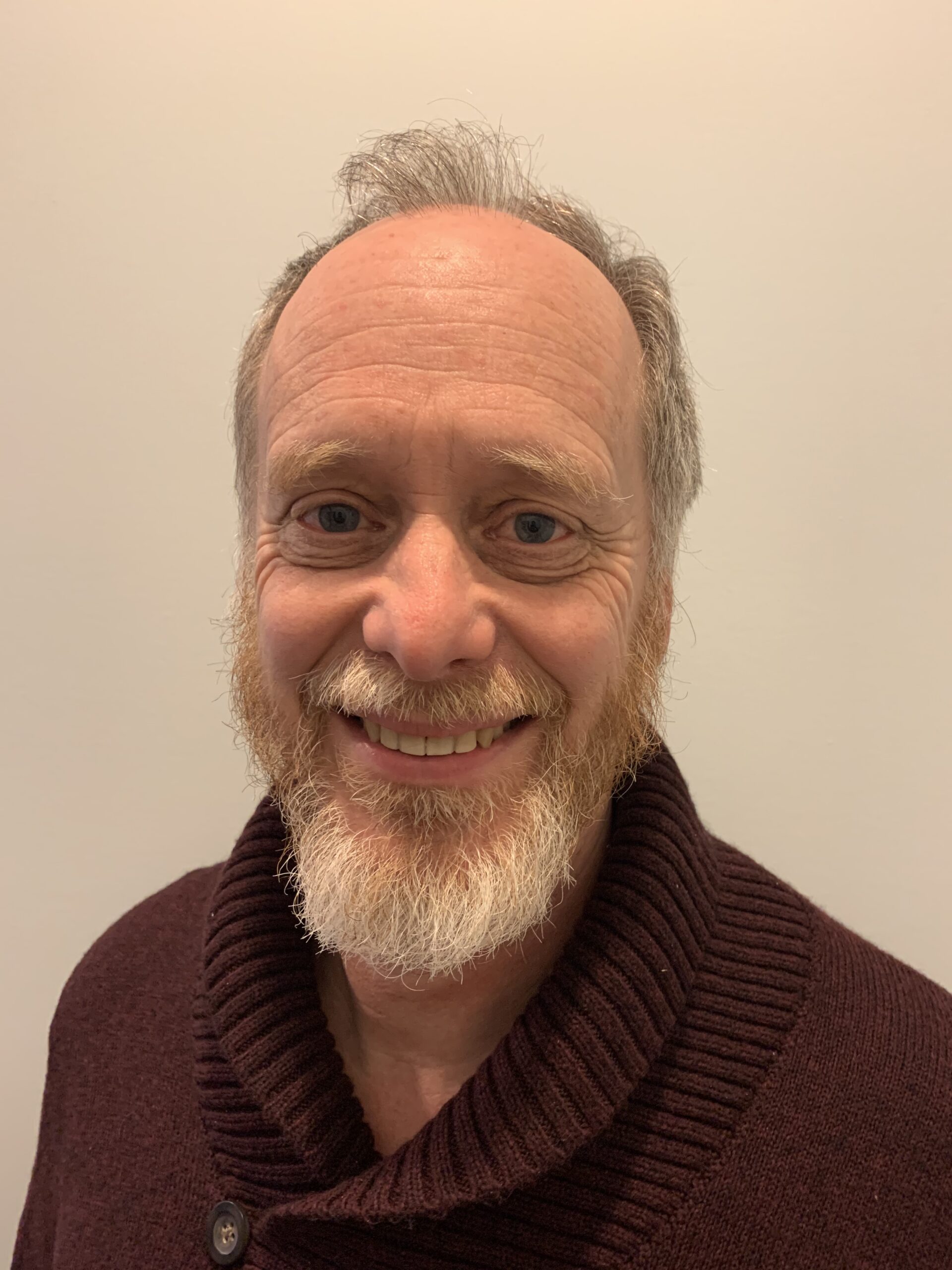 Michael Beer serves as the Director of Nonviolence International, an innovative and respected Washington DC based nonprofit promoting nonviolent approaches to international conflicts. Since 1991 he has worked with NVI to serve marginalized people who seek to use nonviolent tactics often in difficult and dangerous environments. This includes diaspora activists, multinational coalitions, global social movements, as well as within countries including: Myanmar, Tibet, Indonesia, Russia, Thailand, Palestine, Cambodia, East Timor, Iran, India, Kosovo, Zimbabwe, Sudan, and the United States. Michael Beer has a special expertise in supporting movements against dictators and in support of global organizing for justice, environment, and peace. Michael co-parents two teenagers with his patient life partner, Latanja.
Michael Beer serves as the Director of Nonviolence International, an innovative and respected Washington DC based nonprofit promoting nonviolent approaches to international conflicts. Since 1991 he has worked with NVI to serve marginalized people who seek to use nonviolent tactics often in difficult and dangerous environments. This includes diaspora activists, multinational coalitions, global social movements, as well as within countries including: Myanmar, Tibet, Indonesia, Russia, Thailand, Palestine, Cambodia, East Timor, Iran, India, Kosovo, Zimbabwe, Sudan, and the United States. Michael Beer has a special expertise in supporting movements against dictators and in support of global organizing for justice, environment, and peace. Michael co-parents two teenagers with his patient life partner, Latanja.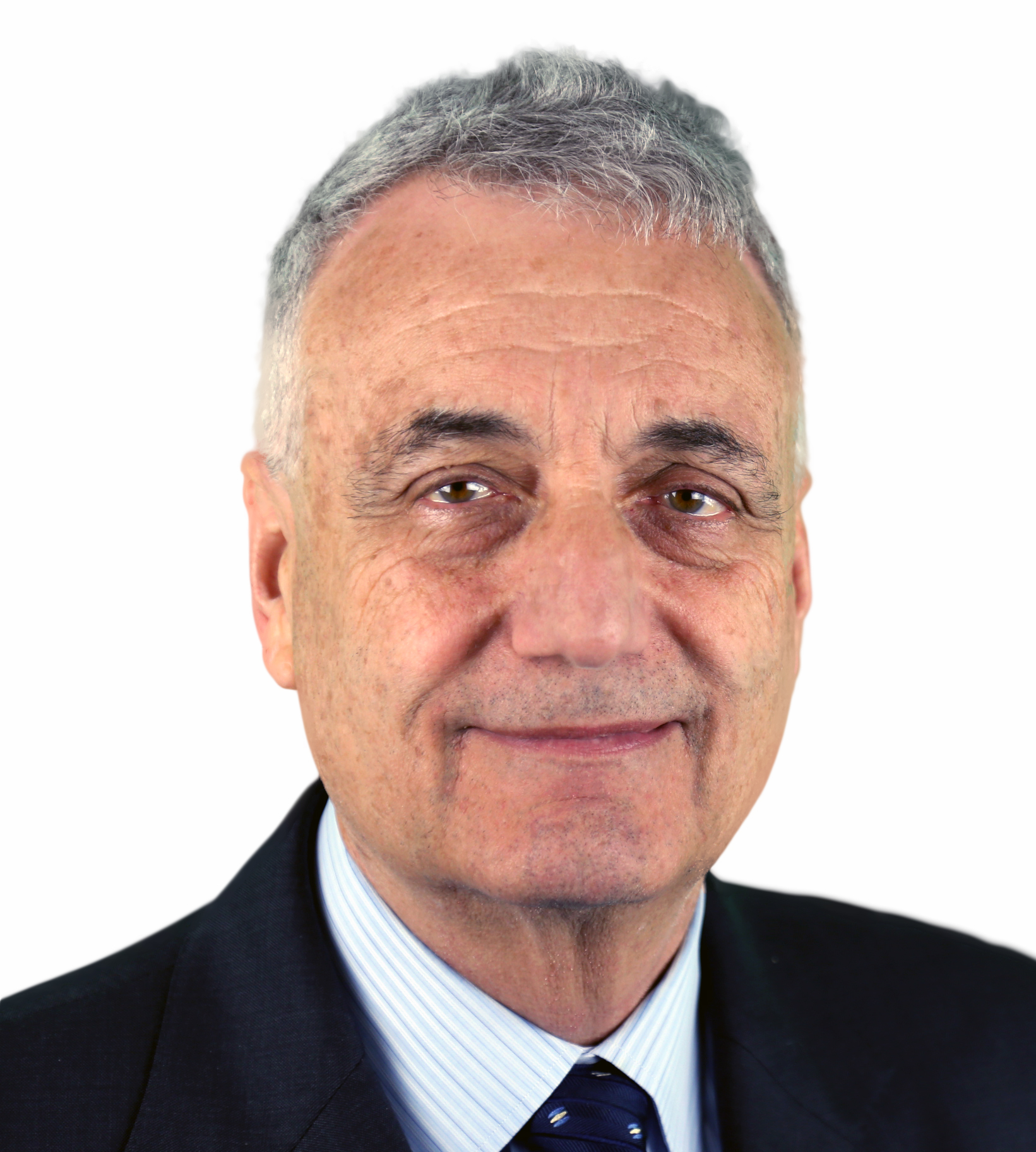 Dr. Peter Ackerman is the Founding Chair of ICNC, and one of the world’s leading authorities on nonviolent conflict. He holds a Ph.D. from The Fletcher School, Tufts University, and is also co-author of two seminal books on nonviolent resistance,
Dr. Peter Ackerman is the Founding Chair of ICNC, and one of the world’s leading authorities on nonviolent conflict. He holds a Ph.D. from The Fletcher School, Tufts University, and is also co-author of two seminal books on nonviolent resistance, 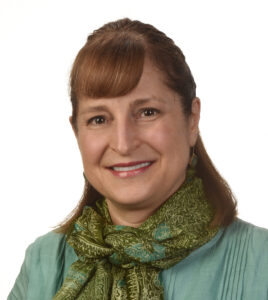 Shaazka Beyerle is Senior Fellow at the
Shaazka Beyerle is Senior Fellow at the 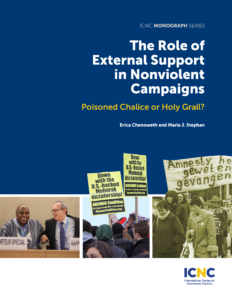
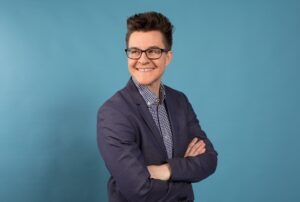
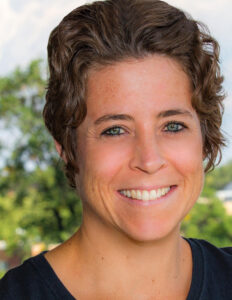 Maria J. Stephan’s career has bridged the academic, policy, and non-profit sectors, with a focus on the role of civil resistance and nonviolent movements in advancing human rights, democratic freedoms, and sustainable peace in the US and globally. She most recently directed the Program on Nonviolent Action at the U.S. Institute of Peace, overseeing cutting-edge research and programming focused on the nexus of nonviolent action and peacebuilding. Stephan is the co-author (with Erica Chenoweth) of Why Civil Resistance Works: The Strategic Logic of Nonviolent Conflict, which was awarded the 2012 Woodrow Wilson Foundation Prize by the American Political Science Association for the best book published in political science, and the 2013 Grawemeyer Award for Ideas Improving World Order. She is the co-author of Bolstering Democracy: Lessons Learned and the Path Forward (Atlantic Council, 2018); the co-editor of Is Authoritarianism Staging a Comeback? (Atlantic Council, 2015); and the editor of Civilian Jihad: Nonviolent Struggle, Democratization and Governance in the Middle East (Palgrave, 2009). From 2009-14, Stephan was lead foreign affairs officer in the U.S. State Department’s Bureau of Conflict and Stabilization Operations, receiving two Meritorious Service Awards for her work in Afghanistan and Turkey. She later co-directed the Future of Authoritarianism initiative at the Atlantic Council. Stephan has taught at Georgetown University and American University. She received her BA in political science from Boston College and her MA and PhD from the Fletcher School of Law and Diplomacy. Stephan, a native Vermonter, is a lifetime member of the Council on Foreign Relations.
Maria J. Stephan’s career has bridged the academic, policy, and non-profit sectors, with a focus on the role of civil resistance and nonviolent movements in advancing human rights, democratic freedoms, and sustainable peace in the US and globally. She most recently directed the Program on Nonviolent Action at the U.S. Institute of Peace, overseeing cutting-edge research and programming focused on the nexus of nonviolent action and peacebuilding. Stephan is the co-author (with Erica Chenoweth) of Why Civil Resistance Works: The Strategic Logic of Nonviolent Conflict, which was awarded the 2012 Woodrow Wilson Foundation Prize by the American Political Science Association for the best book published in political science, and the 2013 Grawemeyer Award for Ideas Improving World Order. She is the co-author of Bolstering Democracy: Lessons Learned and the Path Forward (Atlantic Council, 2018); the co-editor of Is Authoritarianism Staging a Comeback? (Atlantic Council, 2015); and the editor of Civilian Jihad: Nonviolent Struggle, Democratization and Governance in the Middle East (Palgrave, 2009). From 2009-14, Stephan was lead foreign affairs officer in the U.S. State Department’s Bureau of Conflict and Stabilization Operations, receiving two Meritorious Service Awards for her work in Afghanistan and Turkey. She later co-directed the Future of Authoritarianism initiative at the Atlantic Council. Stephan has taught at Georgetown University and American University. She received her BA in political science from Boston College and her MA and PhD from the Fletcher School of Law and Diplomacy. Stephan, a native Vermonter, is a lifetime member of the Council on Foreign Relations.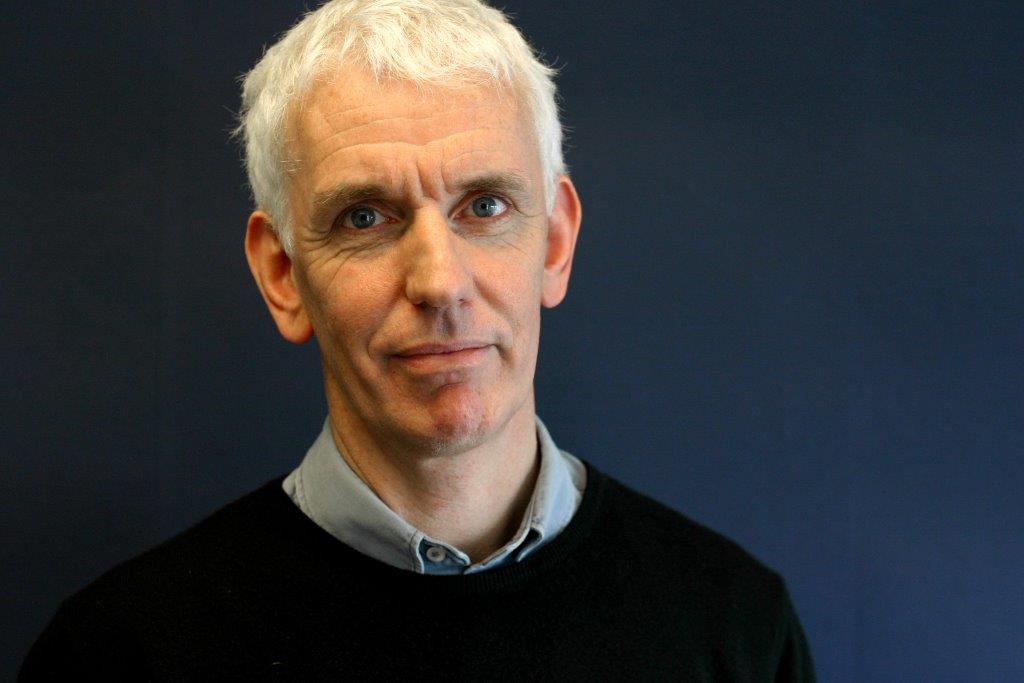 Steve Crawshaw is the author of Street Spirit: The Power of Protest and Mischief, foreword by Ai Weiwei, which has been translated into Arabic, Chinese and other languages.
Steve Crawshaw is the author of Street Spirit: The Power of Protest and Mischief, foreword by Ai Weiwei, which has been translated into Arabic, Chinese and other languages.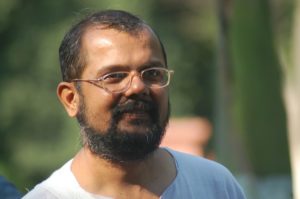 Ramesh Sharma is Ekta Parishad’s National Coordinator. He and his team have continued in the Gandhian tradition of constructive resistance by building alternative institutions to increase self-reliance, while also engaging in rallies, marches, and other mobilization to achieve reforms, protect rights, and demand access to needed resources for villagers across India.
Ramesh Sharma is Ekta Parishad’s National Coordinator. He and his team have continued in the Gandhian tradition of constructive resistance by building alternative institutions to increase self-reliance, while also engaging in rallies, marches, and other mobilization to achieve reforms, protect rights, and demand access to needed resources for villagers across India.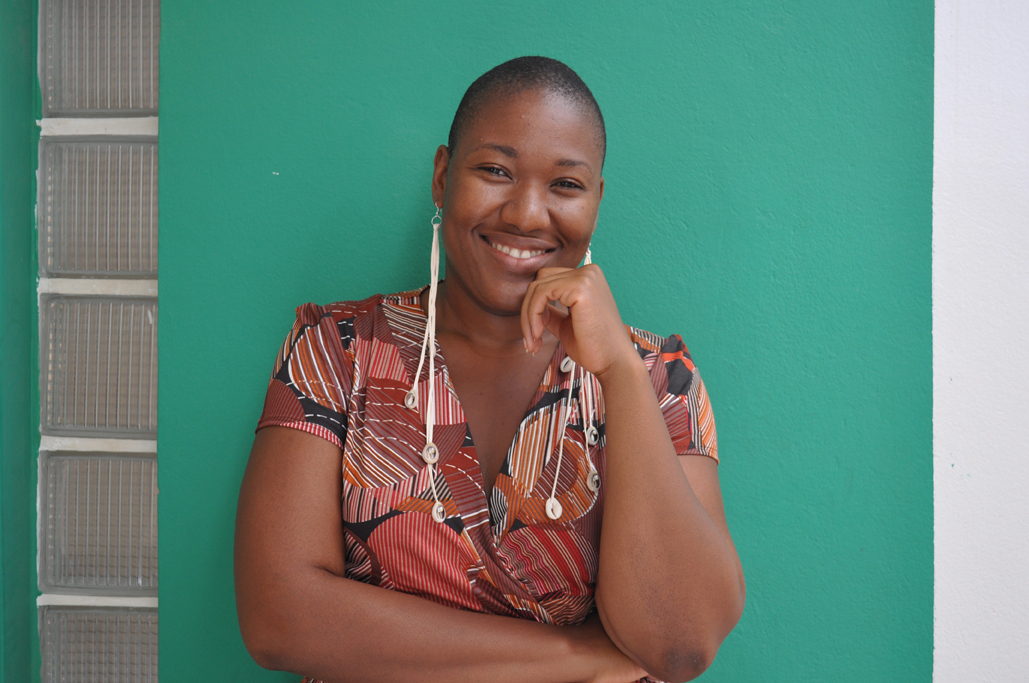 Valerie Traore is the Founder and Executive Director of Niyel. Valerie has over fifteen years of professional experience in campaigning and advocacy on a wide range of issues including human rights and rights based programming, development, human security and conflict, politics and international relations. In that capacity Valerie has led the development and implementation of advocacy and mobilization strategy for over 20 international organizations.
Valerie Traore is the Founder and Executive Director of Niyel. Valerie has over fifteen years of professional experience in campaigning and advocacy on a wide range of issues including human rights and rights based programming, development, human security and conflict, politics and international relations. In that capacity Valerie has led the development and implementation of advocacy and mobilization strategy for over 20 international organizations.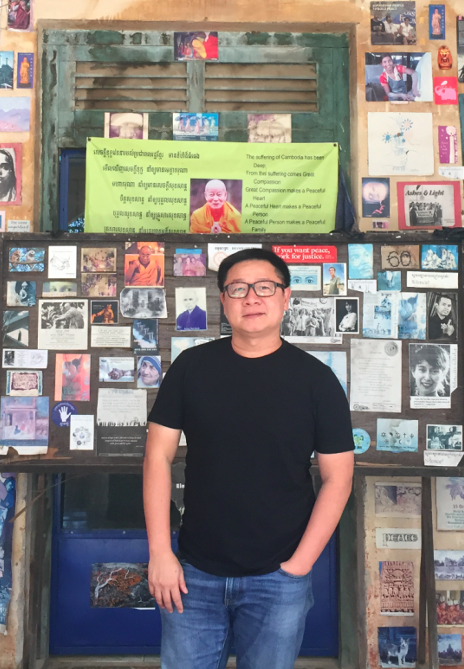
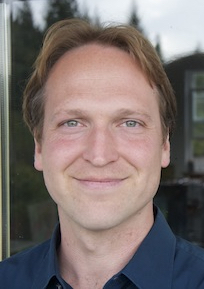 Hardy Merriman is President and CEO of the International Center on Nonviolent Conflict (ICNC). He has worked in the field of civil resistance for over 18 years, presenting at workshops for activists and organizers around the world; speaking widely about civil resistance movements with academics, journalists, and members of international organizations; and developing resources for practitioners and scholars. His writings have been translated into numerous languages. Most recently, Mr. Merriman co-authored the ICNC Special Report
Hardy Merriman is President and CEO of the International Center on Nonviolent Conflict (ICNC). He has worked in the field of civil resistance for over 18 years, presenting at workshops for activists and organizers around the world; speaking widely about civil resistance movements with academics, journalists, and members of international organizations; and developing resources for practitioners and scholars. His writings have been translated into numerous languages. Most recently, Mr. Merriman co-authored the ICNC Special Report 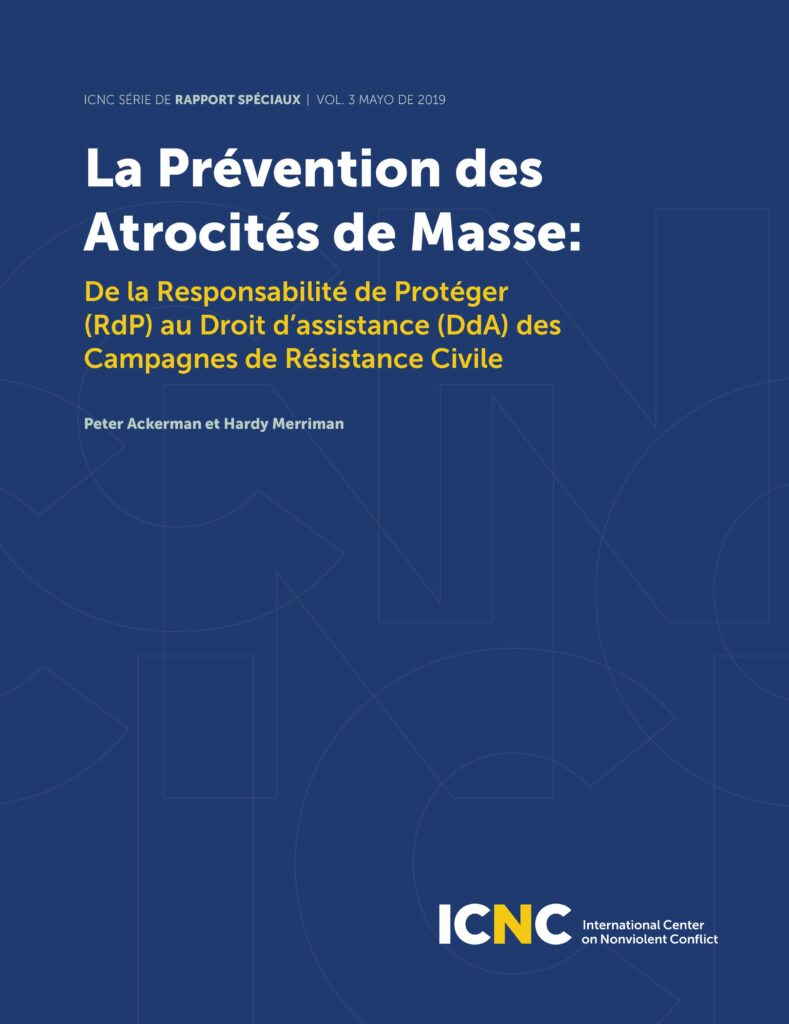
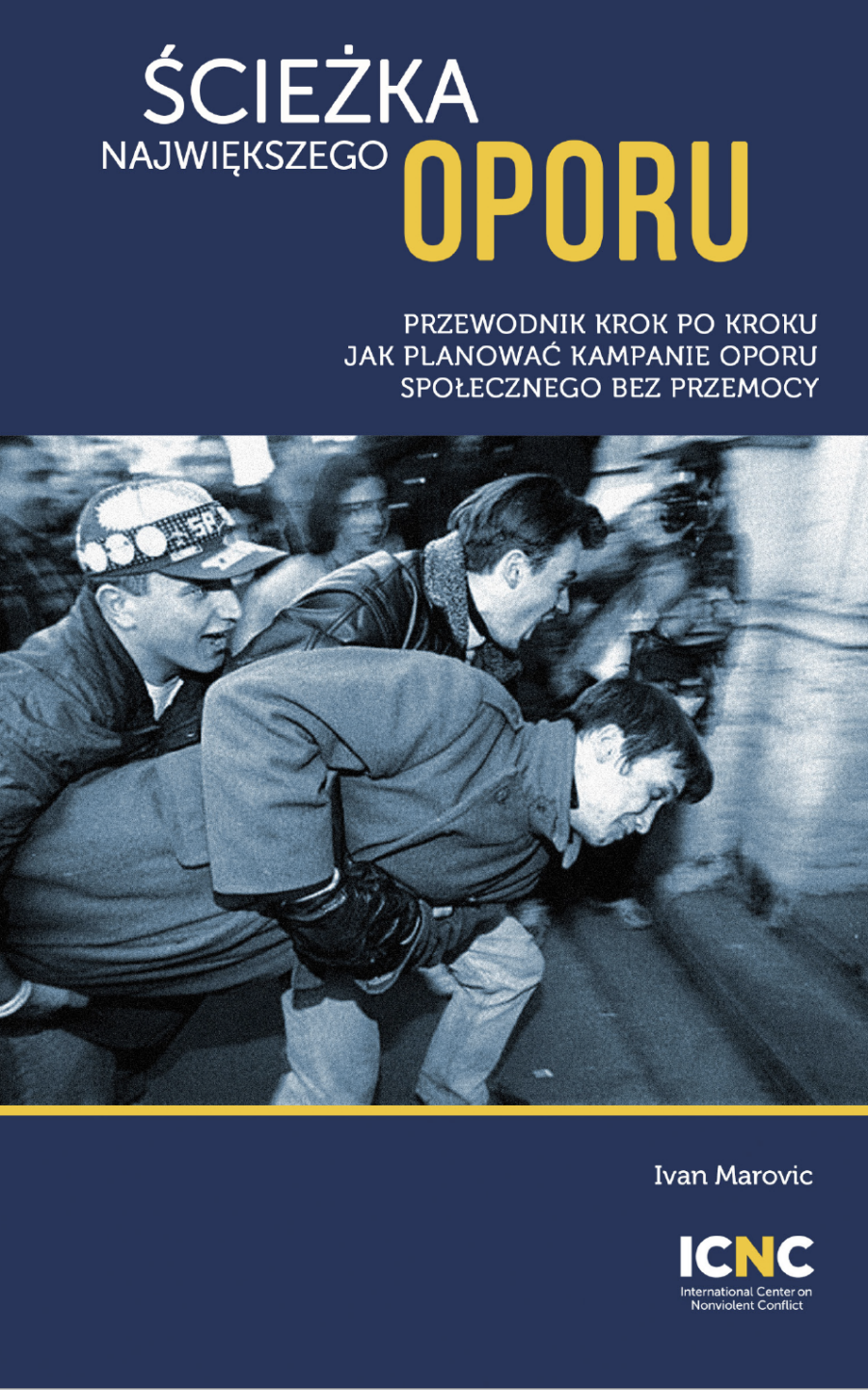


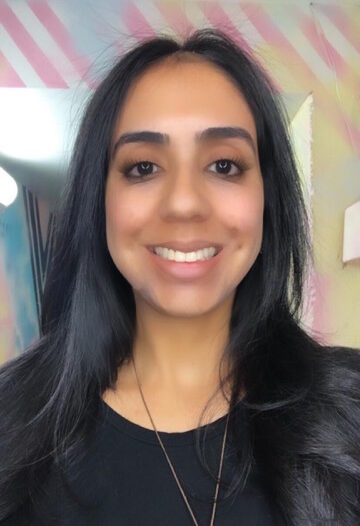
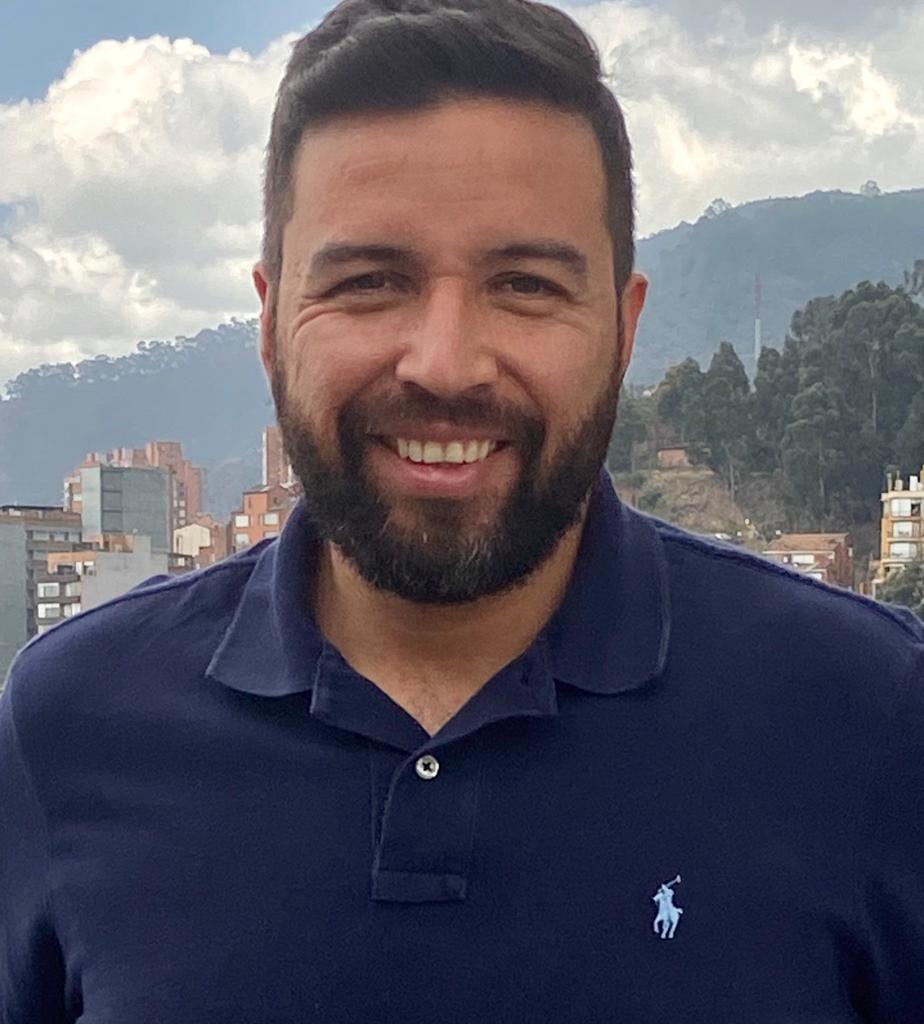
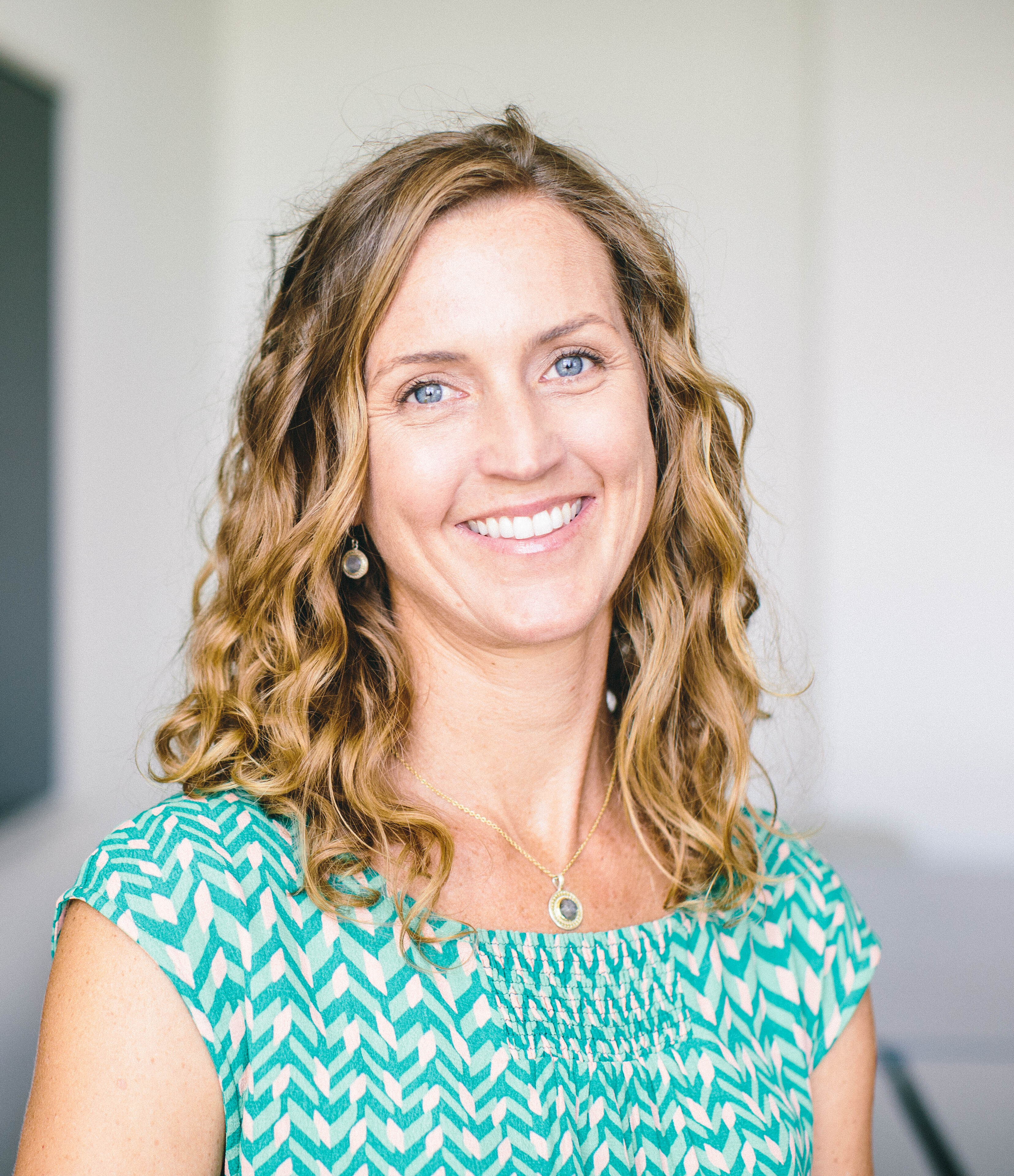
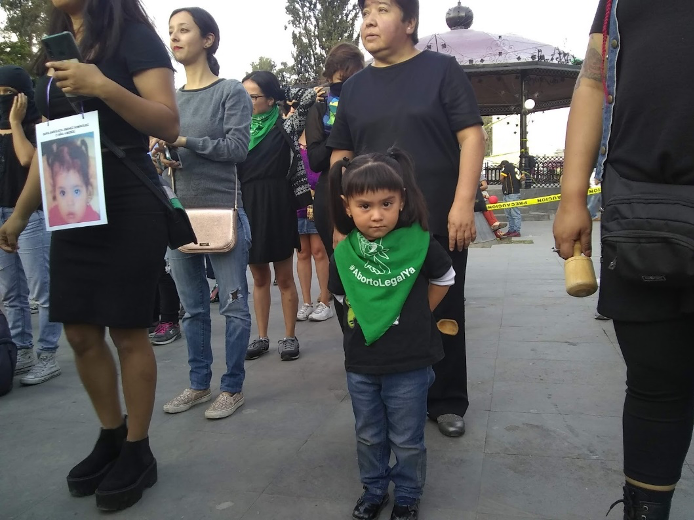
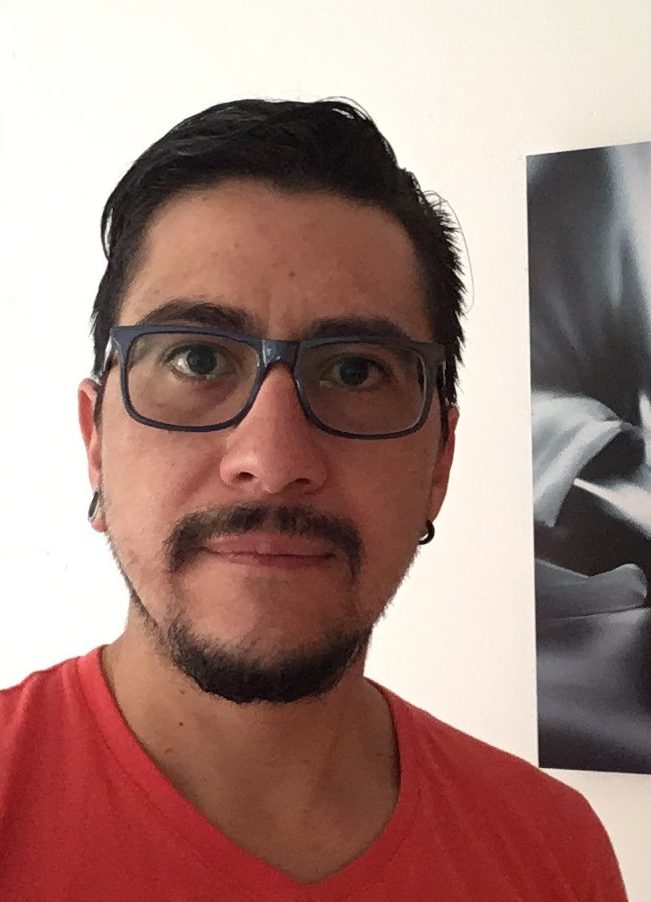 Alfonso Poncho Hernández is a Mexico City–based activist, community organizer, philosopher, and anthropologist with more than 10 years of work in nonviolence and peacebuilding. An experienced trainer and conferencist, he has delivered workshops, seminars, and conferences in several universities in Mexico, and countries like India, Brazil, Colombia, Ecuador, Honduras, and the USA. His academic work is focused on the use of arts in social responses to violence, including civil resistance and creative social movements in Latin America. He is specifically interested in peacebuilding through cultural practices in communities with high levels of violence in Mexico.
Alfonso Poncho Hernández is a Mexico City–based activist, community organizer, philosopher, and anthropologist with more than 10 years of work in nonviolence and peacebuilding. An experienced trainer and conferencist, he has delivered workshops, seminars, and conferences in several universities in Mexico, and countries like India, Brazil, Colombia, Ecuador, Honduras, and the USA. His academic work is focused on the use of arts in social responses to violence, including civil resistance and creative social movements in Latin America. He is specifically interested in peacebuilding through cultural practices in communities with high levels of violence in Mexico.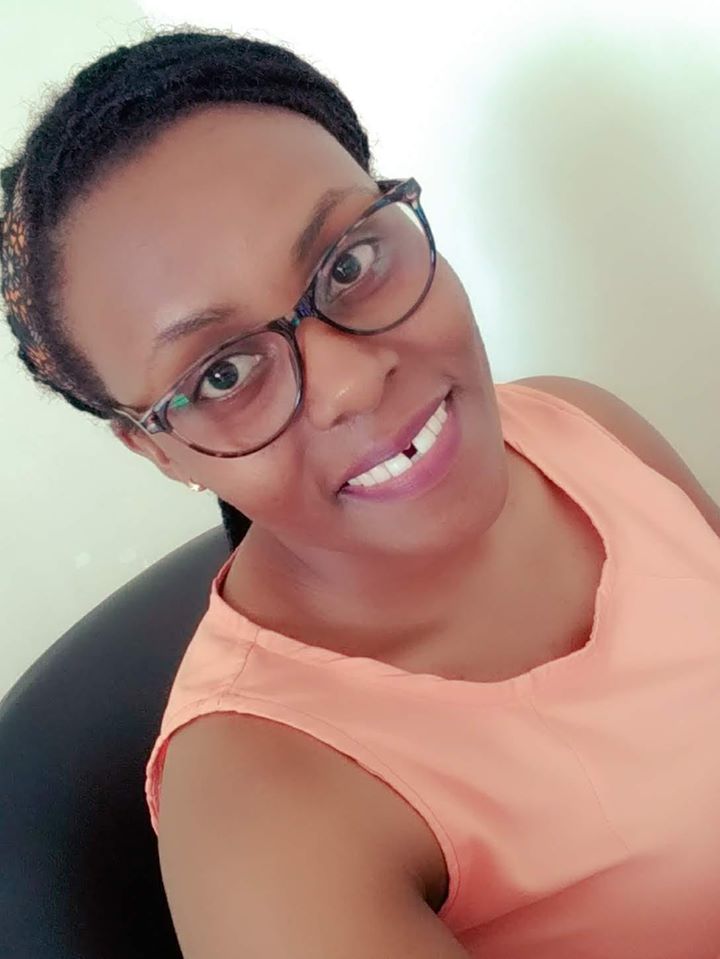 Ingabire Merab is a trained journalist and the Head of Media and Communication at Solidarity Uganda, a progressive organization of activists and political education trainers based in Uganda. The organization focuses on training, coaching, and capacity-building for activists and organizers to boost their social and political effectiveness using civil resistance and nonviolence as a methodology.
Ingabire Merab is a trained journalist and the Head of Media and Communication at Solidarity Uganda, a progressive organization of activists and political education trainers based in Uganda. The organization focuses on training, coaching, and capacity-building for activists and organizers to boost their social and political effectiveness using civil resistance and nonviolence as a methodology. Luke Espiritu is the national president of the Solidarity of Filipino Workers (Bukluran ng Manggagawang Pilipino or BMP), a socialist labor center, and the Solidarity of Unions in the Philippines for Empowerment and Reforms (SUPER), a trade union federation.
Luke Espiritu is the national president of the Solidarity of Filipino Workers (Bukluran ng Manggagawang Pilipino or BMP), a socialist labor center, and the Solidarity of Unions in the Philippines for Empowerment and Reforms (SUPER), a trade union federation.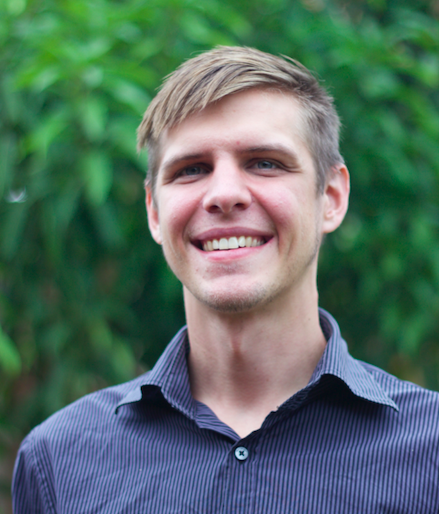 Phil Wilmot is a community organizer and founder of Solidarity Uganda, based in Kisubi, Uganda. He is a regular contributor to the ICNC blog and is a correspondent for Waging Nonviolence, writing extensively on civil resistance and movements in Africa. Phil is also an editorial member with activist extraordinaires Beautiful Trouble.
Phil Wilmot is a community organizer and founder of Solidarity Uganda, based in Kisubi, Uganda. He is a regular contributor to the ICNC blog and is a correspondent for Waging Nonviolence, writing extensively on civil resistance and movements in Africa. Phil is also an editorial member with activist extraordinaires Beautiful Trouble.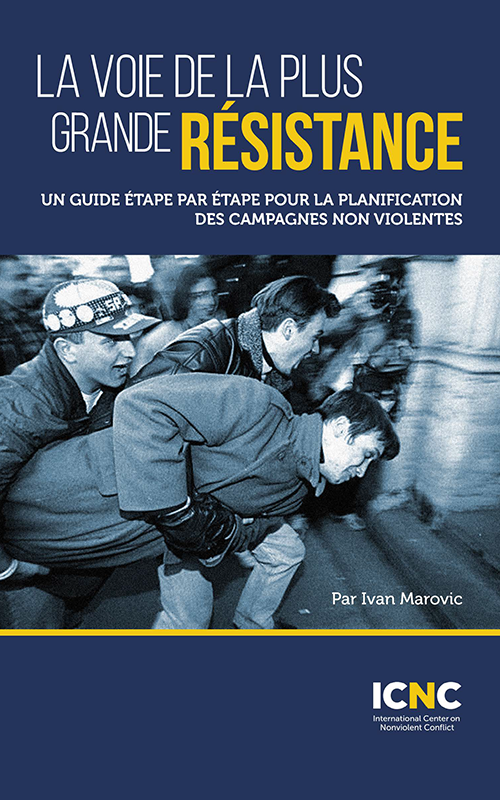
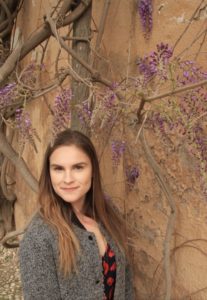
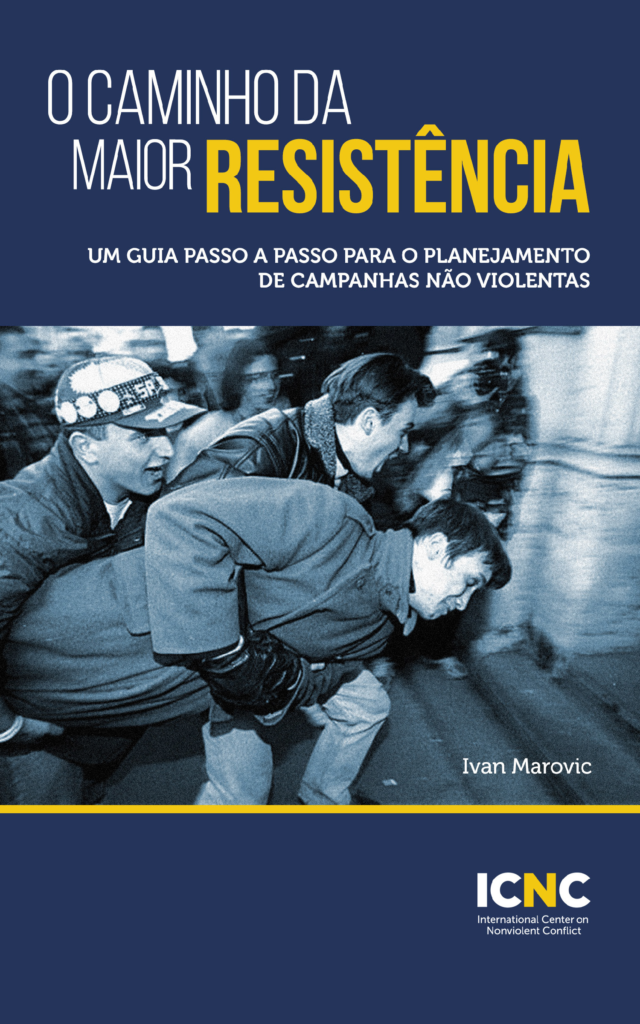 Compre uma Cópia
Compre uma Cópia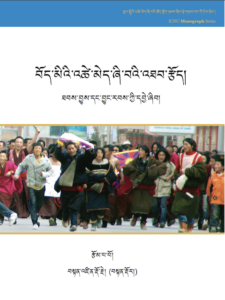
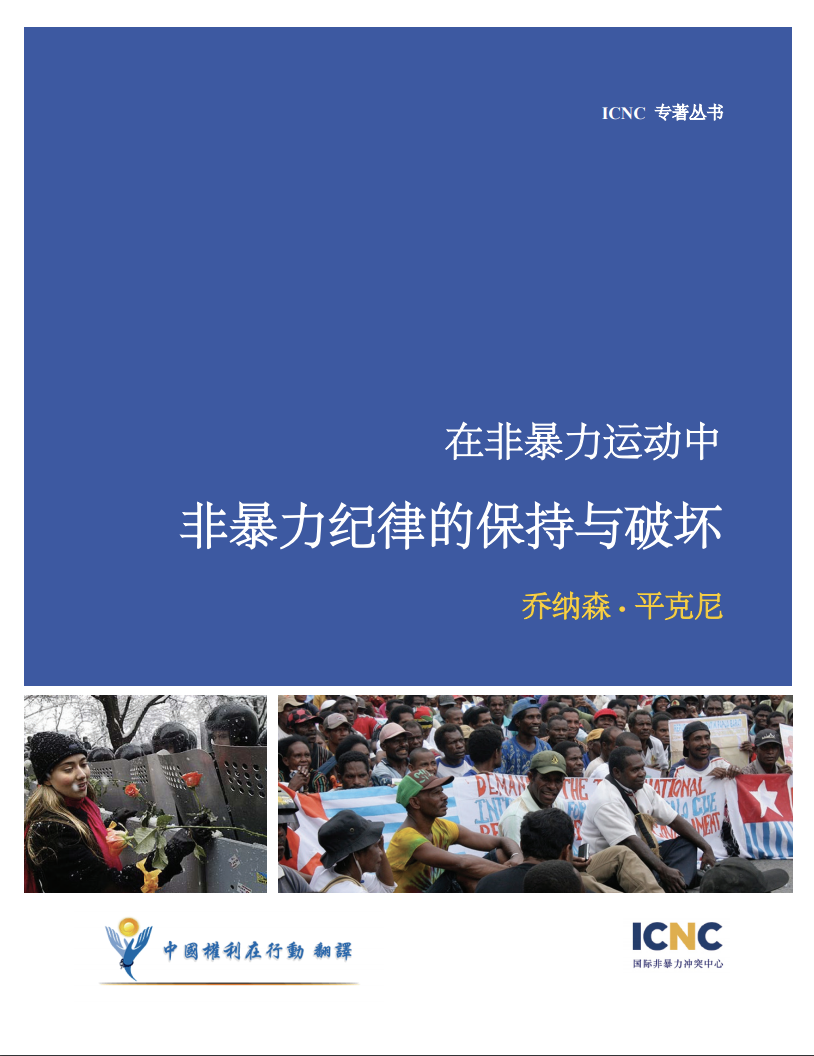
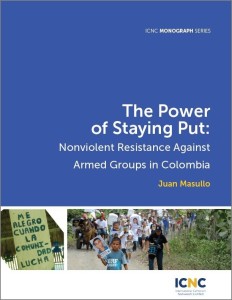 Cuando los grupos armados llegan a sus territorios, la población civil por lo general colabora con el grupo armado más fuerte o se desplaza. Sin embargo, los civiles no están obligados a elegir entre estas dos opciones. Desafi ar a los grupos armados a través de auto-organización en formas noviolentas de no-cooperación es también una posibilidad. Esta monografía explora esta opción en el contexto del confl icto armado interno colombiano a través de la experiencia de resistencia civil de los campesinos de la Comunidad de San José de Apartadó.
Cuando los grupos armados llegan a sus territorios, la población civil por lo general colabora con el grupo armado más fuerte o se desplaza. Sin embargo, los civiles no están obligados a elegir entre estas dos opciones. Desafi ar a los grupos armados a través de auto-organización en formas noviolentas de no-cooperación es también una posibilidad. Esta monografía explora esta opción en el contexto del confl icto armado interno colombiano a través de la experiencia de resistencia civil de los campesinos de la Comunidad de San José de Apartadó.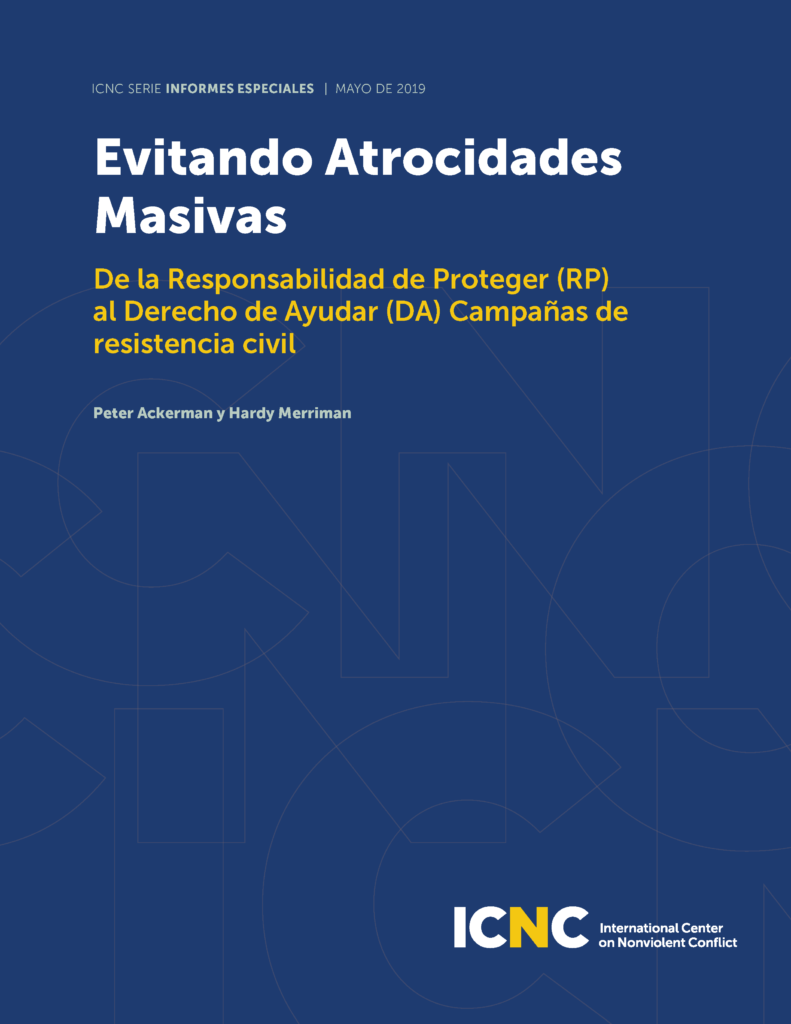
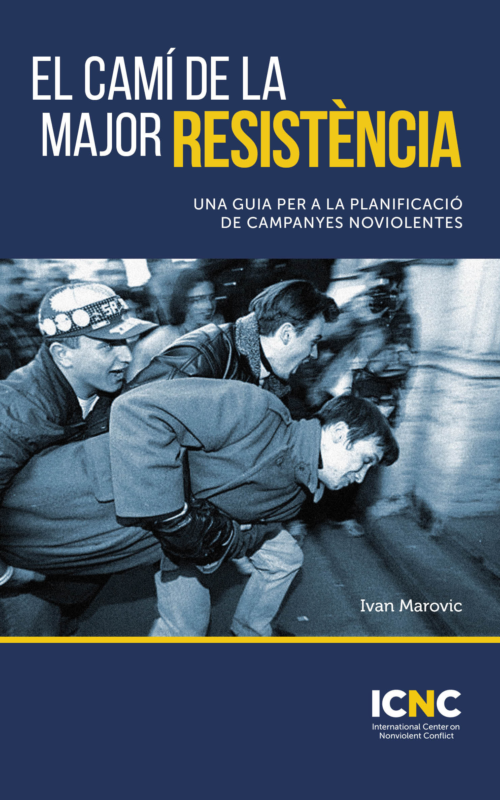
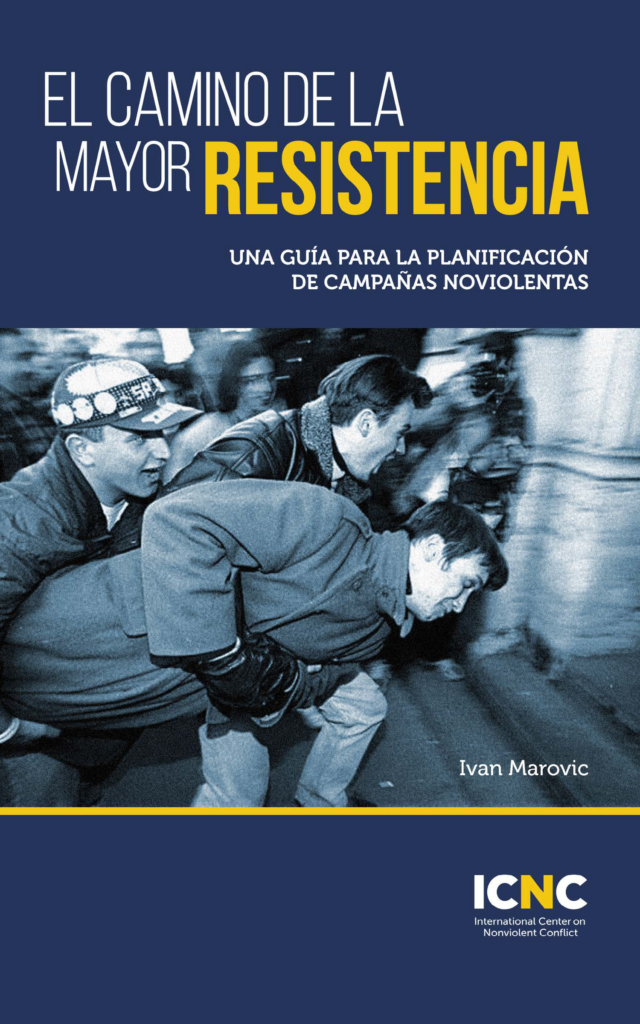

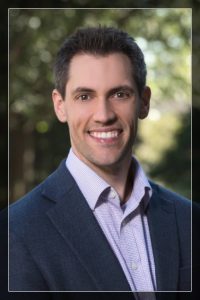
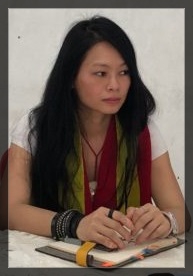
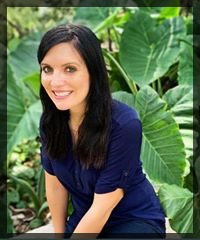
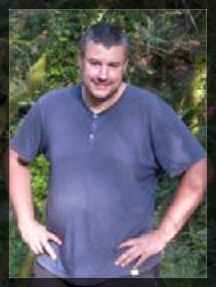
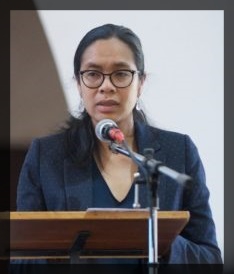
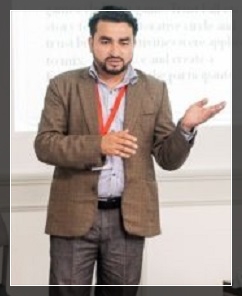
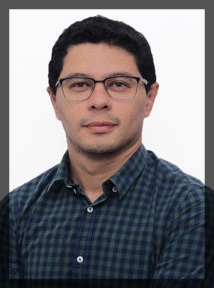
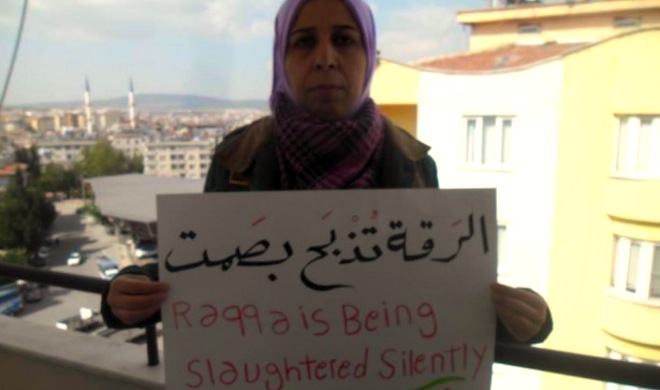
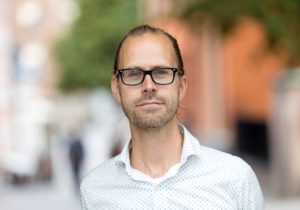 Isak Svensson is Professor at the Department of Peace and Conflict Research, Uppsala University, Sweden. His research focuses on religious dimensions of armed conflict, international mediation in civil wars, and dynamics of nonviolent civil resistance. He has authored or edited ten books and over 50 articles, book-chapters and books in international academic journals and presses, including Journal of Peace Research, Journal of Conflict Resolution, European Journal of International Relations, International Negotiation, Cambridge University Press and Oxford University Press. He is project leader of the international research project ‘Resolving Jihadist Conflicts? Religion, Civil Wars and Prospects for Peace’, as well as for the research project ‘Battles without Bullets: Exploring Unarmed Conflicts’. Svensson has written several studies on nonviolent resistance, including on the structural factors that can help enable the onset of nonviolent uprisings (Butcher & Svensson 2016), political jujitsu (Sutton, Butcher & Svensson 2014), strategic substitution (Svensson & Lindgren 2013), the role of mediation in nonviolent uprisings (Svensson & Lundgren 2018), and ethnic cleavages in nonviolent uprisings (Svensson & Lindgren 2011). Currently, Svensson is working on a book project on civil resistance in the context of jihadist proto-states. To read more about Isak’s publications, click
Isak Svensson is Professor at the Department of Peace and Conflict Research, Uppsala University, Sweden. His research focuses on religious dimensions of armed conflict, international mediation in civil wars, and dynamics of nonviolent civil resistance. He has authored or edited ten books and over 50 articles, book-chapters and books in international academic journals and presses, including Journal of Peace Research, Journal of Conflict Resolution, European Journal of International Relations, International Negotiation, Cambridge University Press and Oxford University Press. He is project leader of the international research project ‘Resolving Jihadist Conflicts? Religion, Civil Wars and Prospects for Peace’, as well as for the research project ‘Battles without Bullets: Exploring Unarmed Conflicts’. Svensson has written several studies on nonviolent resistance, including on the structural factors that can help enable the onset of nonviolent uprisings (Butcher & Svensson 2016), political jujitsu (Sutton, Butcher & Svensson 2014), strategic substitution (Svensson & Lindgren 2013), the role of mediation in nonviolent uprisings (Svensson & Lundgren 2018), and ethnic cleavages in nonviolent uprisings (Svensson & Lindgren 2011). Currently, Svensson is working on a book project on civil resistance in the context of jihadist proto-states. To read more about Isak’s publications, click 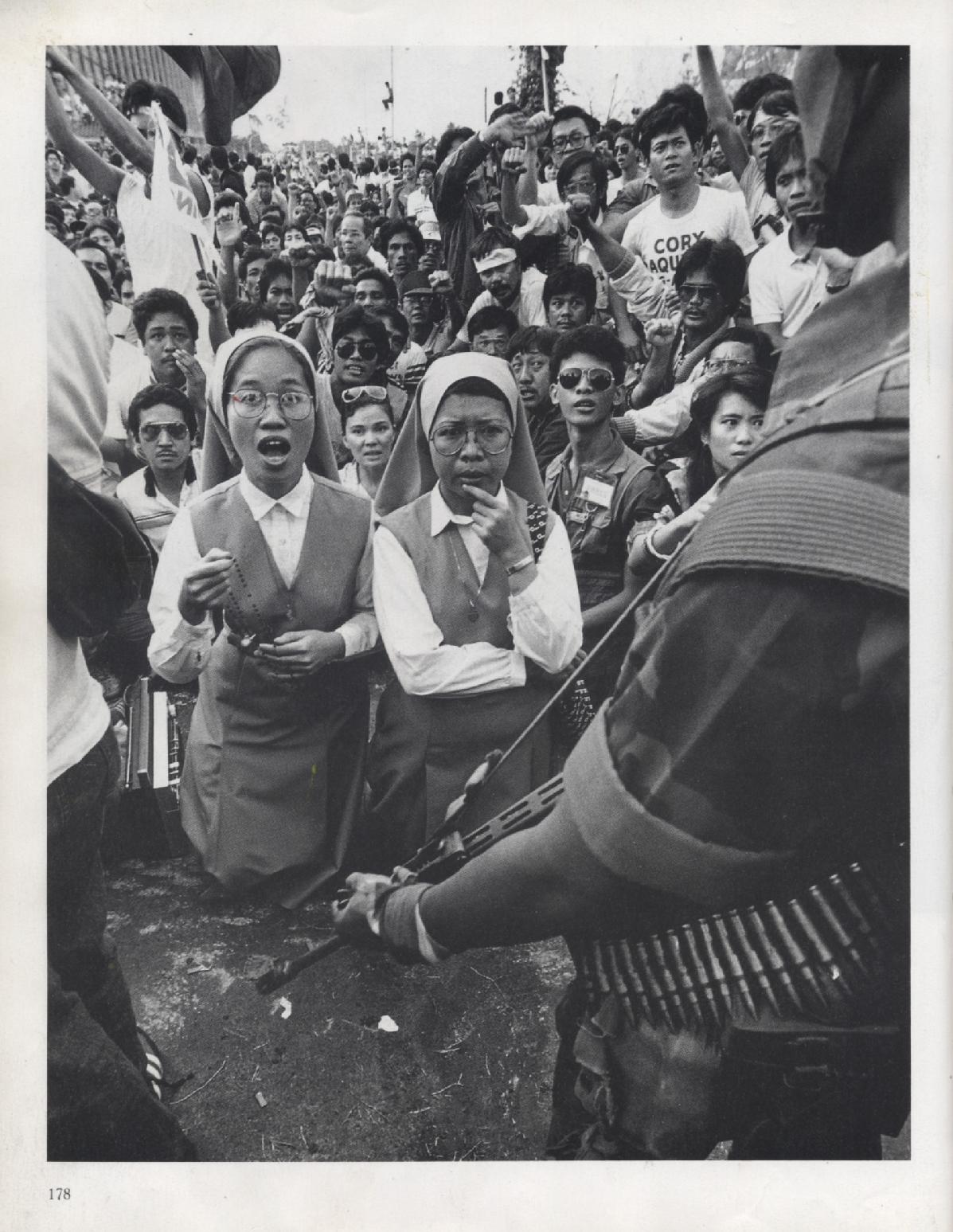
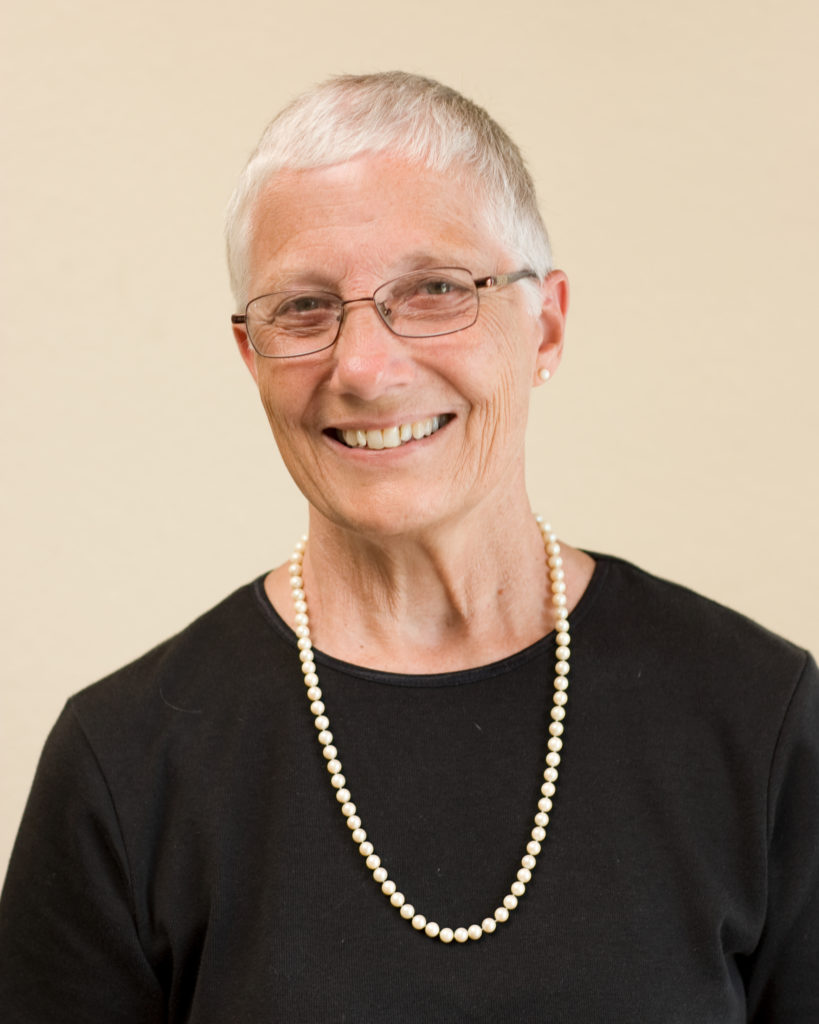 Marie Dennis serves on the executive committee of the Catholic Nonviolence Initiative, a project of Pax Christi International. She was on the Board of Pax Christi International for 20 years and served as co-president from 2007 to 2019. She is a Pax Christi USA Ambassador of Peace. Marie was director for 15 years of the Maryknoll Office for Global Concerns. She is author or co-author of seven books and editor of the award-winning Orbis Book, Choosing Peace: The Catholic Church Returns to Gospel Nonviolence. Marie was named person of the year by the National Catholic Reporter in 2016 and received honorary doctorates from Trinity Washington University and Alvernia University.
Marie Dennis serves on the executive committee of the Catholic Nonviolence Initiative, a project of Pax Christi International. She was on the Board of Pax Christi International for 20 years and served as co-president from 2007 to 2019. She is a Pax Christi USA Ambassador of Peace. Marie was director for 15 years of the Maryknoll Office for Global Concerns. She is author or co-author of seven books and editor of the award-winning Orbis Book, Choosing Peace: The Catholic Church Returns to Gospel Nonviolence. Marie was named person of the year by the National Catholic Reporter in 2016 and received honorary doctorates from Trinity Washington University and Alvernia University. Sharon Erickson Nepstad is Distinguished Professor of Sociology at the University of New Mexico. At UNM, she has served as both Chair of Sociology and as Director of Religious Studies. She has been a visiting fellow at Princeton University’s Center for the Study of Religion and at Notre Dame’s Kroc Institute for International Peace Studies. She is the author of five books: Catholic Social Activism: Progressive Movements in the United States (2019, New York University Press), Nonviolent Struggle: Theories, Strategies, and Dynamics (2015, Oxford University Press), Nonviolent Revolutions: Civil Resistance in the Late 20th Century (2011, Oxford University Press), Religion and War Resistance in the Plowshares Movement (2008, Cambridge University Press), and Convictions of the Soul: Religion, Culture, and Agency in the Central America Solidarity Movement (2004, Oxford University Press).
Sharon Erickson Nepstad is Distinguished Professor of Sociology at the University of New Mexico. At UNM, she has served as both Chair of Sociology and as Director of Religious Studies. She has been a visiting fellow at Princeton University’s Center for the Study of Religion and at Notre Dame’s Kroc Institute for International Peace Studies. She is the author of five books: Catholic Social Activism: Progressive Movements in the United States (2019, New York University Press), Nonviolent Struggle: Theories, Strategies, and Dynamics (2015, Oxford University Press), Nonviolent Revolutions: Civil Resistance in the Late 20th Century (2011, Oxford University Press), Religion and War Resistance in the Plowshares Movement (2008, Cambridge University Press), and Convictions of the Soul: Religion, Culture, and Agency in the Central America Solidarity Movement (2004, Oxford University Press).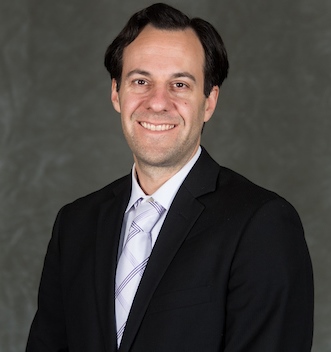
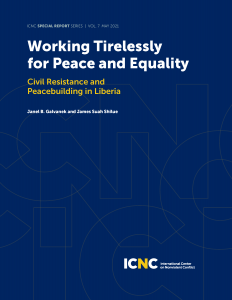
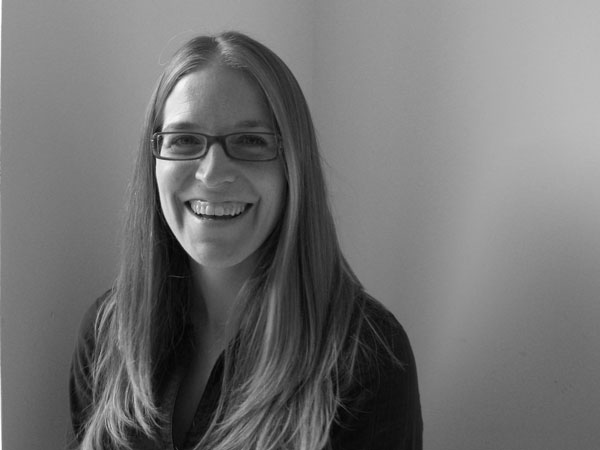 Janel B. Galvanek is a Senior Project Manager at the Berghof Foundation and Director of Growing Tree Liberia, both based in Berlin, Germany. At the Berghof Foundation for 10 years, she is currently managing the Foundation’s projects in Somalia, which support mediation and reconciliation initiatives with local communities in the country. Janel’s professional focus includes engaging local actors and communities in peacebuilding and conflict transformation processes, as well as the interaction and coexistence between state-based conflict resolution mechanisms on one hand and community-based, traditional conflict resolution mechanisms on the other. She has done extensive research in Liberia on this topic as well as on the reintegration of former child combatants. In the past, Janel has also managed dialogue projects involving the High Peace Council and Ulema Council of Afghanistan. Janel’s work with Growing Tree Liberia supports the construction of a home designated for street children in Liberia and awards school scholarships for disadvantaged children in the downtown Monrovia area. She holds a Master’s degree in Peace Research and Security Policy from Hamburg University and an MA from Georgetown University in Washington, DC.
Janel B. Galvanek is a Senior Project Manager at the Berghof Foundation and Director of Growing Tree Liberia, both based in Berlin, Germany. At the Berghof Foundation for 10 years, she is currently managing the Foundation’s projects in Somalia, which support mediation and reconciliation initiatives with local communities in the country. Janel’s professional focus includes engaging local actors and communities in peacebuilding and conflict transformation processes, as well as the interaction and coexistence between state-based conflict resolution mechanisms on one hand and community-based, traditional conflict resolution mechanisms on the other. She has done extensive research in Liberia on this topic as well as on the reintegration of former child combatants. In the past, Janel has also managed dialogue projects involving the High Peace Council and Ulema Council of Afghanistan. Janel’s work with Growing Tree Liberia supports the construction of a home designated for street children in Liberia and awards school scholarships for disadvantaged children in the downtown Monrovia area. She holds a Master’s degree in Peace Research and Security Policy from Hamburg University and an MA from Georgetown University in Washington, DC.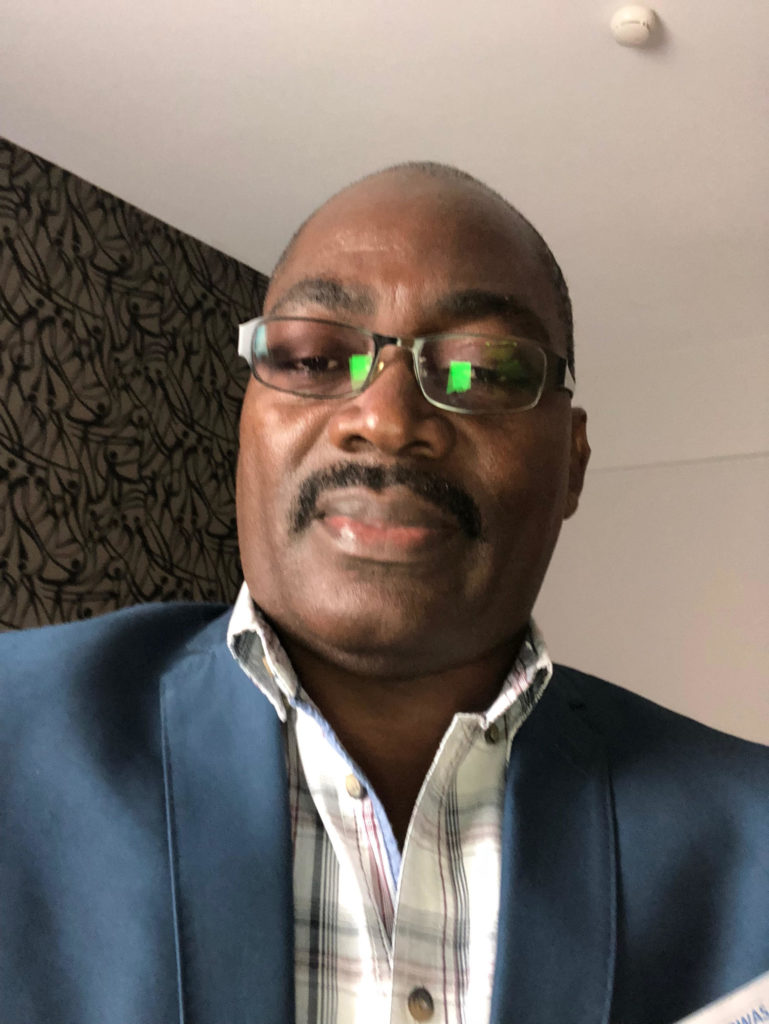 James Suah Shilue is the Executive Director of Platform for Dialogue and Peace (P4DP), a Liberian peacebuilding NGO involved in research and participatory action activities aimed at strengthening the capacities of state and non-state actors to prevent, manage and transform conflict through collaborative action. James also lectures at the Department of Sociology and Anthropology at the University of Liberia. He has been serving as Executive Director for P4DP since June 2012. Prior to occupying this position, James served as Liberia Programme Coordinator for Interpeace and was responsible for the day-to-day management and overall direction of the programme. Mr. Shilue has been working on issues of development, research, Ebola, resilience, peacebuilding and conflict prevention, including land disputes and their resolution, for more than 15 years. In addition to overseeing the overall programme of Interpeace in Liberia, he has collaborated and provided consultancy services for various international projects, including the Geneva Graduate School Small Arms Survey, a Bentley University research project, the European Union Fragility and Resilience project, the USIP and George Washington University Rule of Law projects, the World Bank, the George Washington IDRC Liberian Diaspora Research project, the Carter Centre Urban Justice project and the International Center for Migration Policy Development. James has a Master’s Degree in Social and Community Studies (De Montfort University, UK) and an MA in Development Studies (Institute of Social Studies, The Hague). Mr. Shilue has extensive experience in the management of complex operations and uses this experience to hone his skills in facilitation, partnership development and peace research, including issues on human security, peace and reconciliation, and natural resource management.
James Suah Shilue is the Executive Director of Platform for Dialogue and Peace (P4DP), a Liberian peacebuilding NGO involved in research and participatory action activities aimed at strengthening the capacities of state and non-state actors to prevent, manage and transform conflict through collaborative action. James also lectures at the Department of Sociology and Anthropology at the University of Liberia. He has been serving as Executive Director for P4DP since June 2012. Prior to occupying this position, James served as Liberia Programme Coordinator for Interpeace and was responsible for the day-to-day management and overall direction of the programme. Mr. Shilue has been working on issues of development, research, Ebola, resilience, peacebuilding and conflict prevention, including land disputes and their resolution, for more than 15 years. In addition to overseeing the overall programme of Interpeace in Liberia, he has collaborated and provided consultancy services for various international projects, including the Geneva Graduate School Small Arms Survey, a Bentley University research project, the European Union Fragility and Resilience project, the USIP and George Washington University Rule of Law projects, the World Bank, the George Washington IDRC Liberian Diaspora Research project, the Carter Centre Urban Justice project and the International Center for Migration Policy Development. James has a Master’s Degree in Social and Community Studies (De Montfort University, UK) and an MA in Development Studies (Institute of Social Studies, The Hague). Mr. Shilue has extensive experience in the management of complex operations and uses this experience to hone his skills in facilitation, partnership development and peace research, including issues on human security, peace and reconciliation, and natural resource management.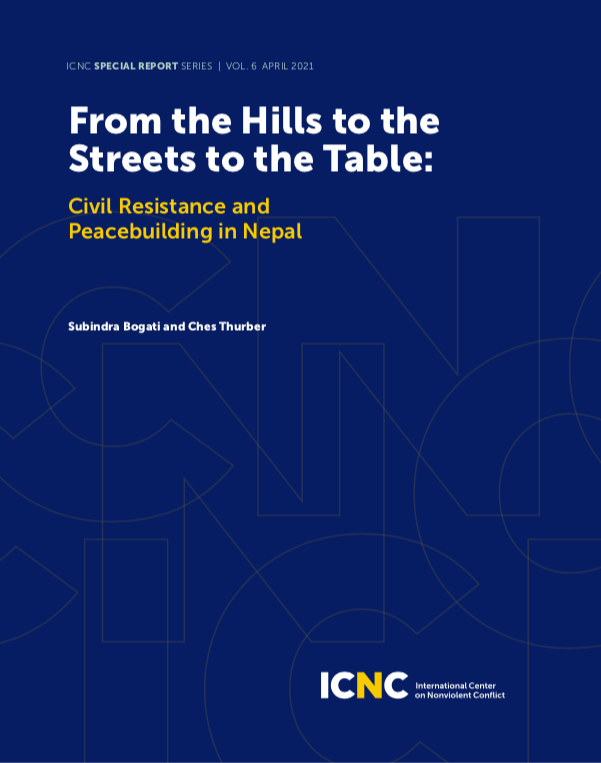
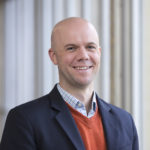 Ches Thurber is an Assistant Professor in the Department of Political Science at Northern Illinois University whose research and teaching focus on international security, conflict, and governance. Dr. Thurber has held fellowships at the University of Chicago and the Belfer Center for Science and International Affairs at Harvard’s Kennedy School. He received his Ph.D. and M.A.L.D. from The Fletcher School of Law and Diplomacy at Tufts University and his B.A. from Middlebury College. His book project, Between Gandhi and Mao: The Social Roots of Civil Resistance, investigates how social structures inform movements’ willingness to engage in nonviolent and violent strategies. Dr. Thurber’s research has been published or is forthcoming in the Journal of Global Security Studies; Conflict Management and Peace Science; and Small Wars and Insurgencies.
Ches Thurber is an Assistant Professor in the Department of Political Science at Northern Illinois University whose research and teaching focus on international security, conflict, and governance. Dr. Thurber has held fellowships at the University of Chicago and the Belfer Center for Science and International Affairs at Harvard’s Kennedy School. He received his Ph.D. and M.A.L.D. from The Fletcher School of Law and Diplomacy at Tufts University and his B.A. from Middlebury College. His book project, Between Gandhi and Mao: The Social Roots of Civil Resistance, investigates how social structures inform movements’ willingness to engage in nonviolent and violent strategies. Dr. Thurber’s research has been published or is forthcoming in the Journal of Global Security Studies; Conflict Management and Peace Science; and Small Wars and Insurgencies.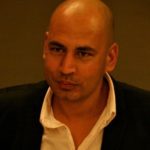 Subindra Bogati is the Founder/Chief Executive of the Nepal Peacebuilding Initiative – an organization devoted to evidence based policy and action on peacebuilding and humanitarian issues. He has been working with conflict transformation and peace processes in Nepal through various national and international organizations for the last several years. Until recently, he was one of the principal investigators of the two year long research, dialogue and policy project on “Innovations in Peacebuilding,” which was a partnership between the University of Denver, Chr. Michelsen Institute (CMI) in Bergen, the Center for the Study of Violence and Reconciliation in South Africa and the Nepal Peacebuilding Initiative, Nepal. He holds an M.A. in International Relations from London Metropolitan University and was awarded the FCO Chevening Fellowship in 2009 by the Centre for Studies in Security and Diplomacy at the University of Birmingham. He is a Ph.D. candidate in the department of Political Science, Tribhuvan University, Nepal.
Subindra Bogati is the Founder/Chief Executive of the Nepal Peacebuilding Initiative – an organization devoted to evidence based policy and action on peacebuilding and humanitarian issues. He has been working with conflict transformation and peace processes in Nepal through various national and international organizations for the last several years. Until recently, he was one of the principal investigators of the two year long research, dialogue and policy project on “Innovations in Peacebuilding,” which was a partnership between the University of Denver, Chr. Michelsen Institute (CMI) in Bergen, the Center for the Study of Violence and Reconciliation in South Africa and the Nepal Peacebuilding Initiative, Nepal. He holds an M.A. in International Relations from London Metropolitan University and was awarded the FCO Chevening Fellowship in 2009 by the Centre for Studies in Security and Diplomacy at the University of Birmingham. He is a Ph.D. candidate in the department of Political Science, Tribhuvan University, Nepal.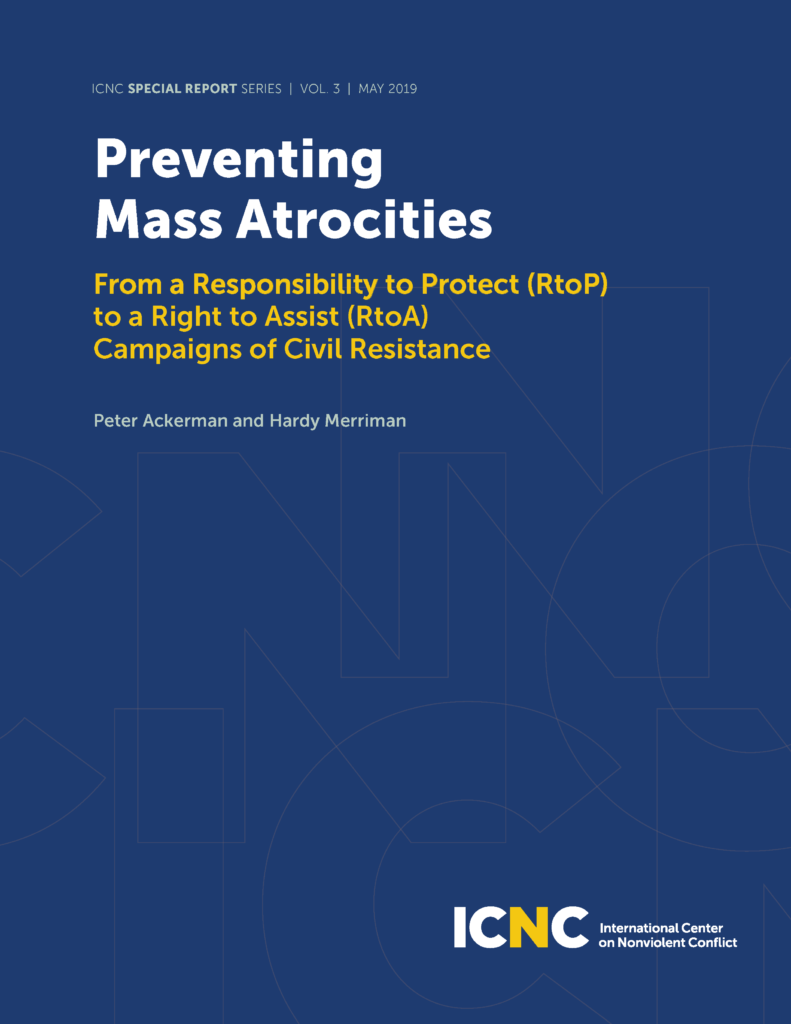
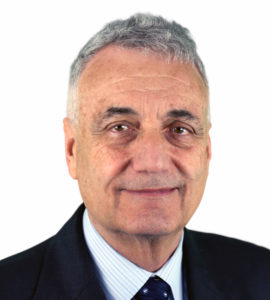

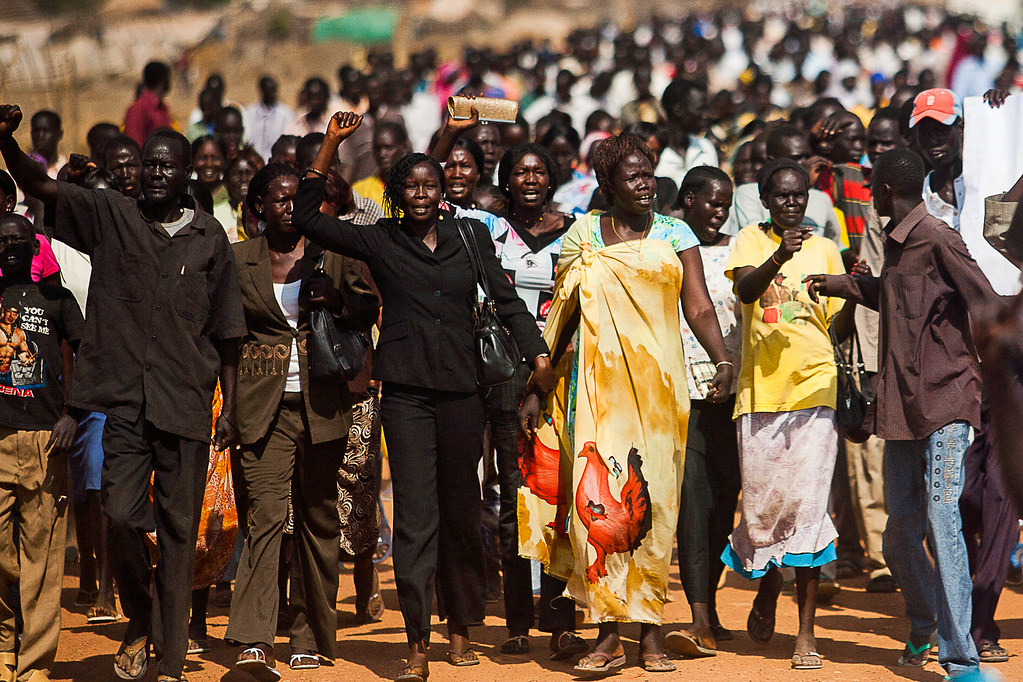
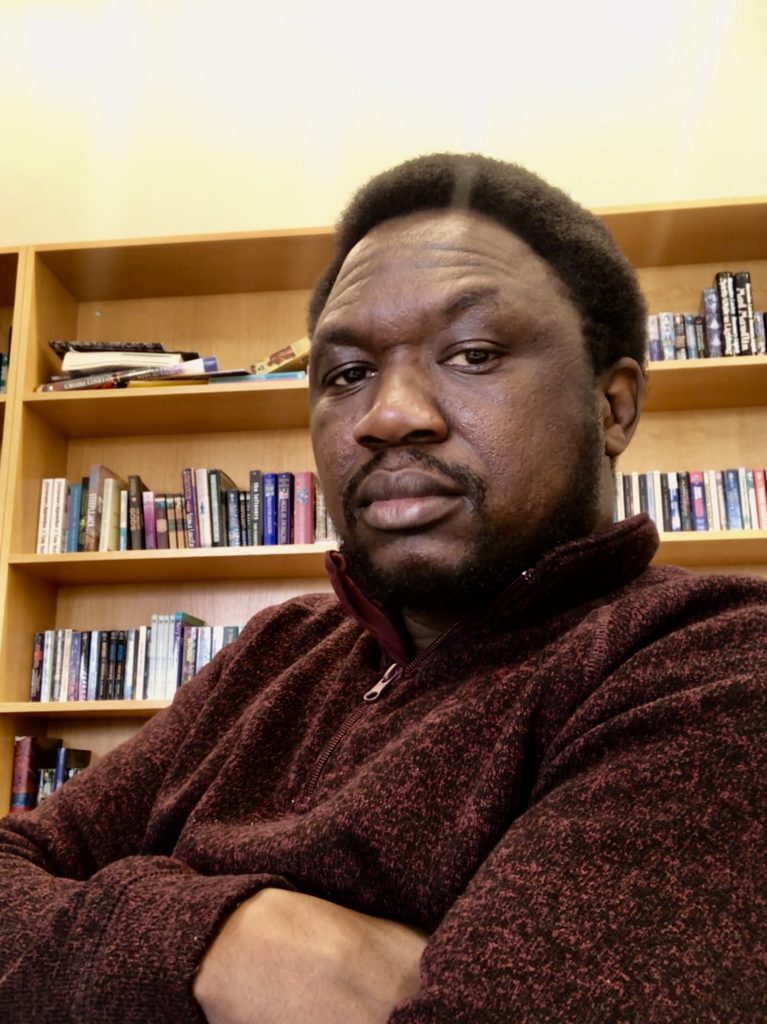 Mohamed “Quscondy” Abdulshafi is a human rights activist and independent research consultant working with various organizations in peacebuilding and governance research. He’s a founding member of Darfur Student Movement, a student-led nonviolent movement against the genocide in Darfur. Quscondy is a winner of the Civil Society Leadership Award from the Open Society Foundations. Previously, he was a research fellow at Peace Direct. He was a founding staff the Sudan Democracy First Group, where he worked for several years in Kampala, Uganda. His research interests include inclusive peacebuilding, governance and youth participation.
Mohamed “Quscondy” Abdulshafi is a human rights activist and independent research consultant working with various organizations in peacebuilding and governance research. He’s a founding member of Darfur Student Movement, a student-led nonviolent movement against the genocide in Darfur. Quscondy is a winner of the Civil Society Leadership Award from the Open Society Foundations. Previously, he was a research fellow at Peace Direct. He was a founding staff the Sudan Democracy First Group, where he worked for several years in Kampala, Uganda. His research interests include inclusive peacebuilding, governance and youth participation.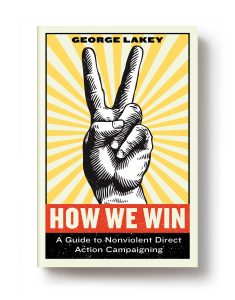 In this webinar, George Lakey, a long time social movement organizer and the author of
In this webinar, George Lakey, a long time social movement organizer and the author of  Activist: George Lakey’s first arrest was for a nonviolent civil rights sit-in in the 1960s. Since then, he has been active in a number of social movements and campaigns, including co-leading a sailing ship with medical aid to Vietnam in defiance of the U.S. war, campaigning with others in the LGBTQ community, organizing Men Against Patriarchy, and leading a statewide cross-race, cross-class coalition to fight back against Reagan. He has served as an unarmed bodyguard for human rights defenders in Sri Lanka, and recently walked 200 miles in a successful Quaker direct action campaign against mountaintop removal coal mining in Appalachia. In March 2018, he was arrested in the Power Local Green Jobs campaign demanding that the regional energy utility start a community solar program targeting poor neighborhoods.
Activist: George Lakey’s first arrest was for a nonviolent civil rights sit-in in the 1960s. Since then, he has been active in a number of social movements and campaigns, including co-leading a sailing ship with medical aid to Vietnam in defiance of the U.S. war, campaigning with others in the LGBTQ community, organizing Men Against Patriarchy, and leading a statewide cross-race, cross-class coalition to fight back against Reagan. He has served as an unarmed bodyguard for human rights defenders in Sri Lanka, and recently walked 200 miles in a successful Quaker direct action campaign against mountaintop removal coal mining in Appalachia. In March 2018, he was arrested in the Power Local Green Jobs campaign demanding that the regional energy utility start a community solar program targeting poor neighborhoods.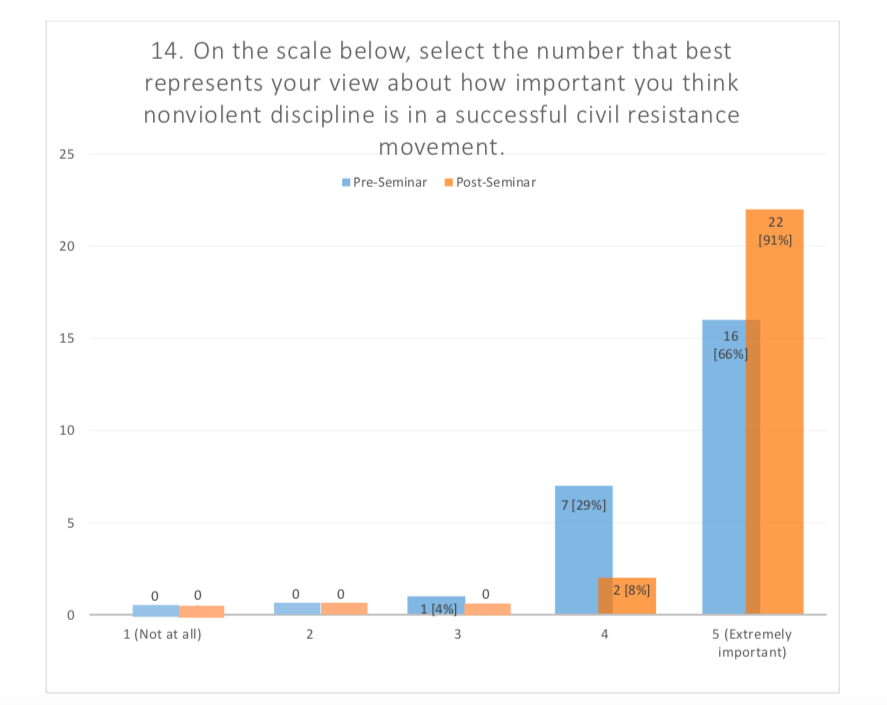

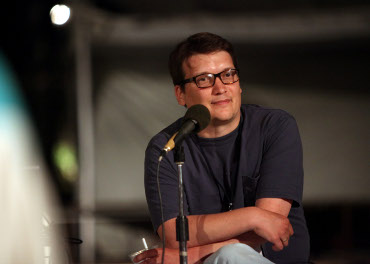 Ivan Marovic was one of leaders of Otpor, the student resistance movement that played a significant role in the overthrow of Serbian dictator Slobodan Milosevic on October 5, 2000. After the successful democratic transition in Serbia, Marovic began consulting with various pro-democracy movements around the world and became one of the leading thinkers and practitioners in the field of strategic nonviolent resistance
Ivan Marovic was one of leaders of Otpor, the student resistance movement that played a significant role in the overthrow of Serbian dictator Slobodan Milosevic on October 5, 2000. After the successful democratic transition in Serbia, Marovic began consulting with various pro-democracy movements around the world and became one of the leading thinkers and practitioners in the field of strategic nonviolent resistance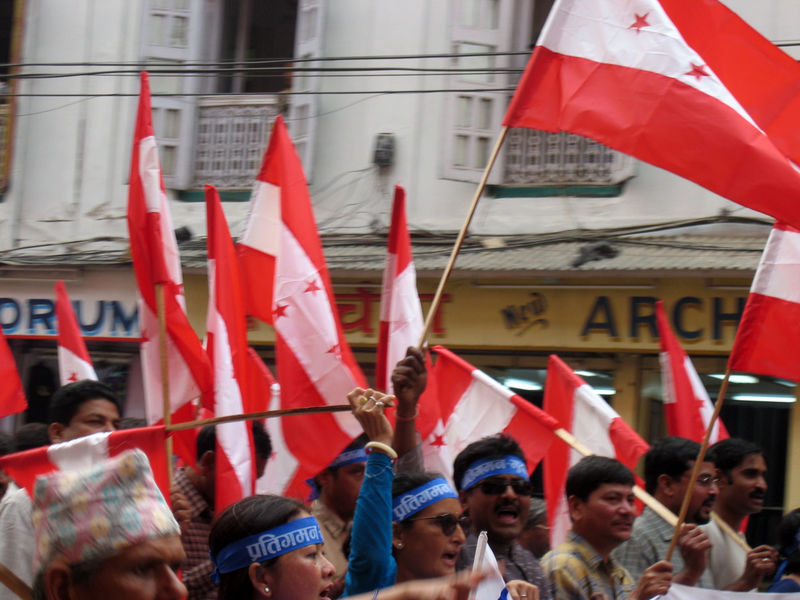
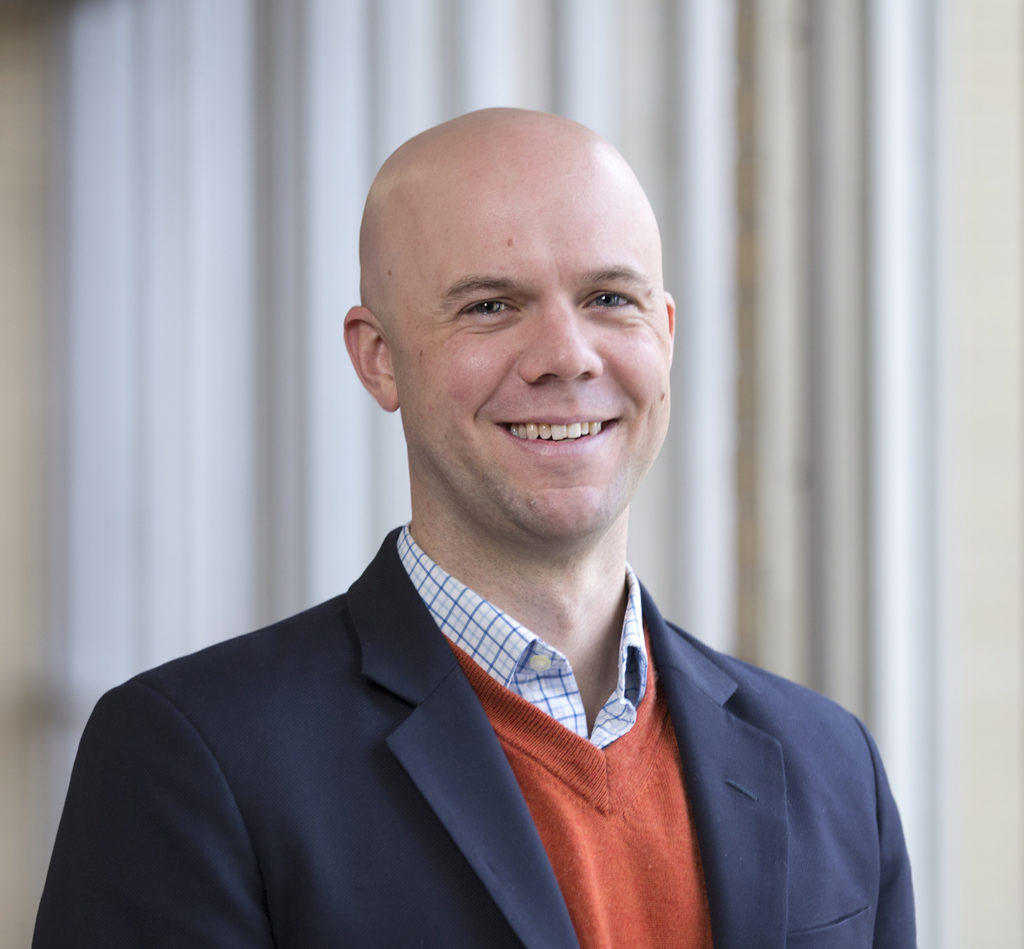
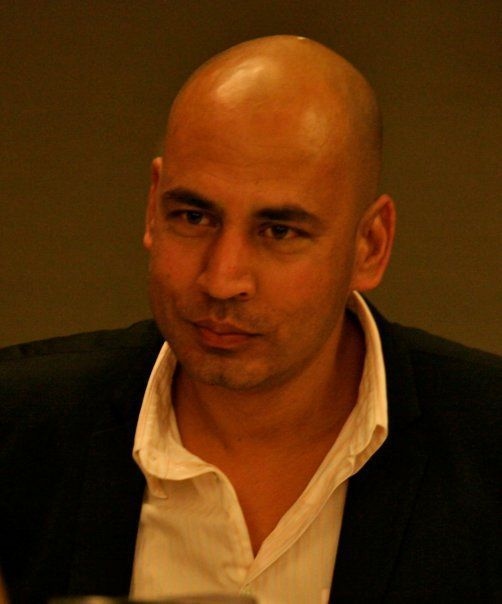
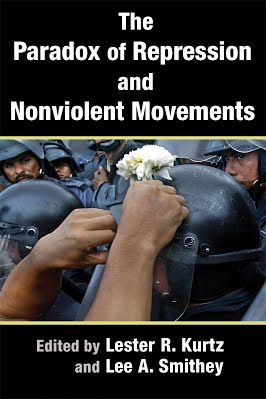

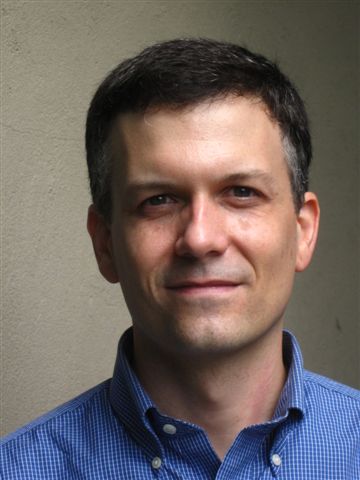
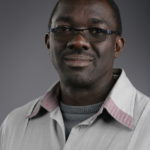



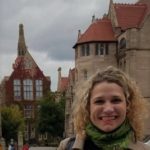

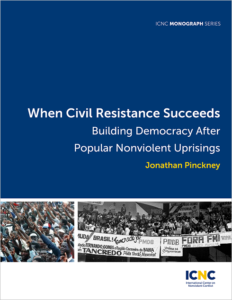
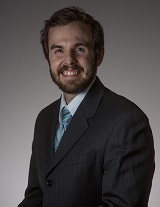
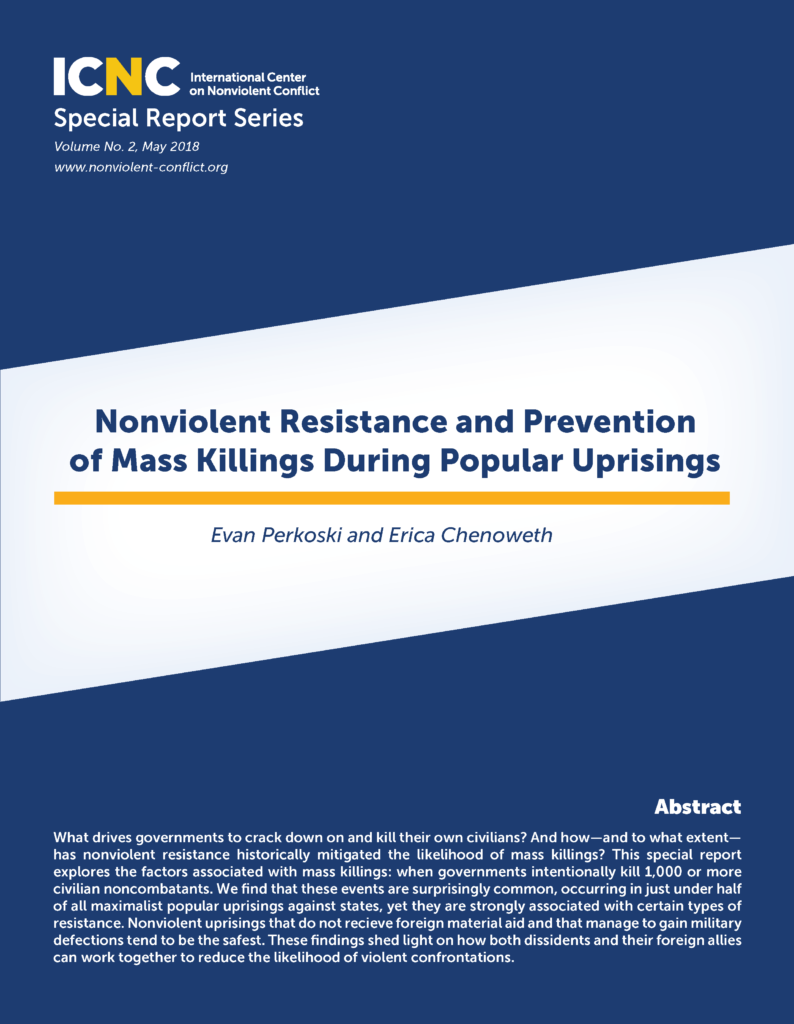
 Dr. Evan Perkoski is an assistant professor in the Department of Political Science at the University of Connecticut. His research focuses on the dynamics of rebel, insurgent, and terrorist groups; strategies of violent and nonviolent resistance; and the behavior of state and non-state actors in cyberspace. His current book manuscript explores the breakdown of armed organizations, focusing particularly on the emergence of splinter groups and how they behave relative to their predecessors. He received his PhD from the University of Pennsylvania and has held fellowships at the Belfer Center for Science and International Affairs at the Harvard Kennedy School of Government and the Josef Korbel School of International Studies at the University of Denver.
Dr. Evan Perkoski is an assistant professor in the Department of Political Science at the University of Connecticut. His research focuses on the dynamics of rebel, insurgent, and terrorist groups; strategies of violent and nonviolent resistance; and the behavior of state and non-state actors in cyberspace. His current book manuscript explores the breakdown of armed organizations, focusing particularly on the emergence of splinter groups and how they behave relative to their predecessors. He received his PhD from the University of Pennsylvania and has held fellowships at the Belfer Center for Science and International Affairs at the Harvard Kennedy School of Government and the Josef Korbel School of International Studies at the University of Denver.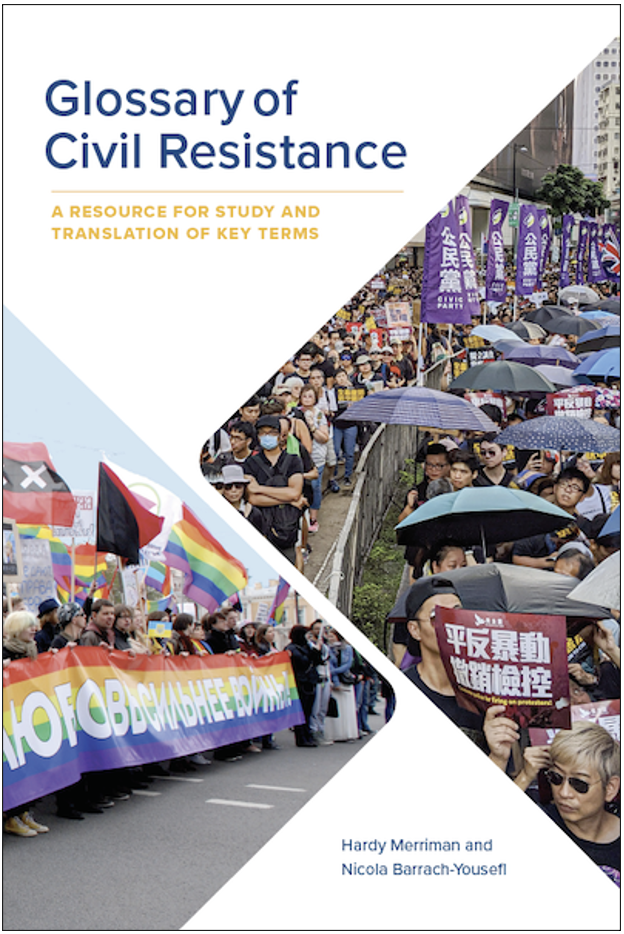 By: Hardy Merriman and Nicola Barrach-Yousefi
By: Hardy Merriman and Nicola Barrach-Yousefi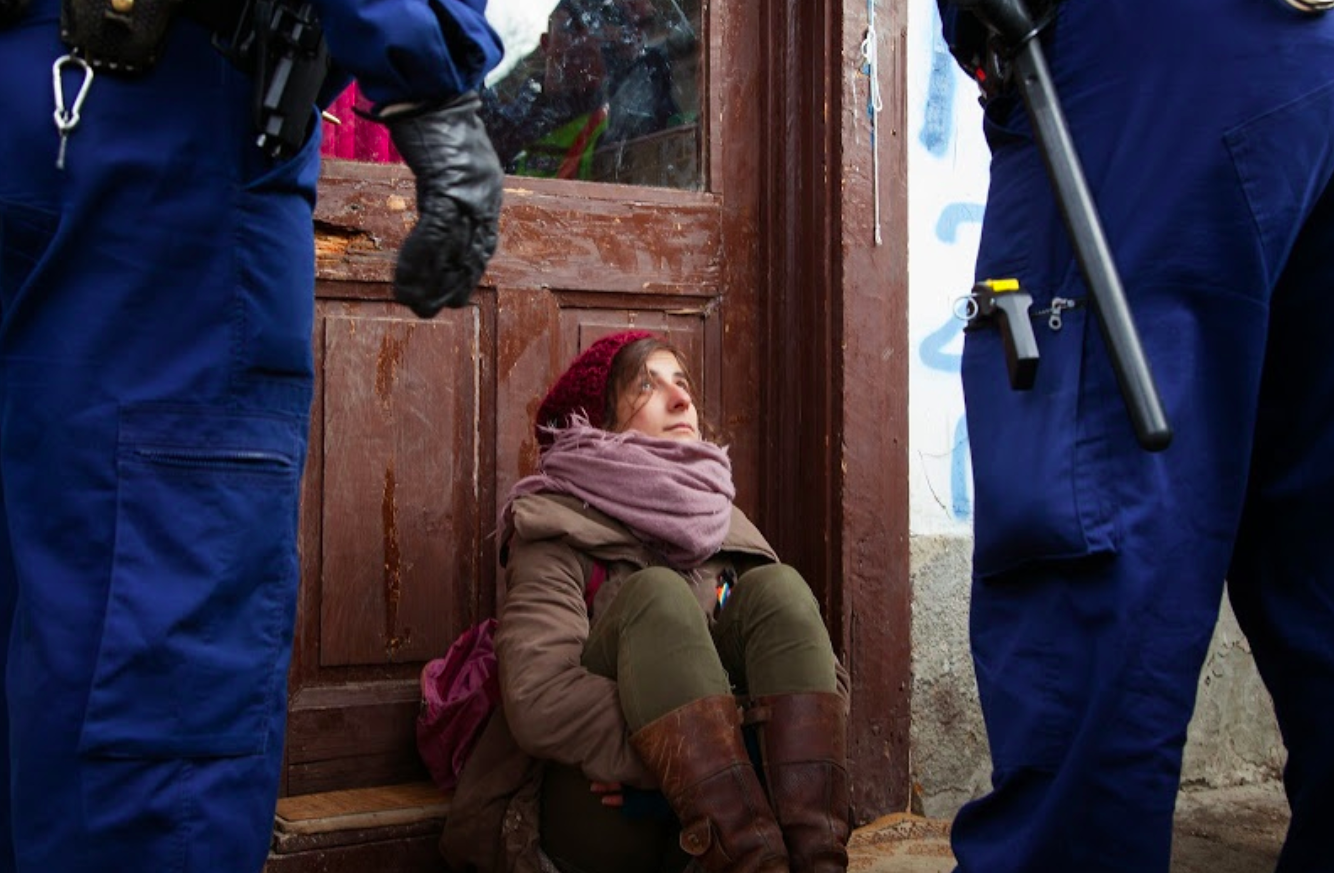
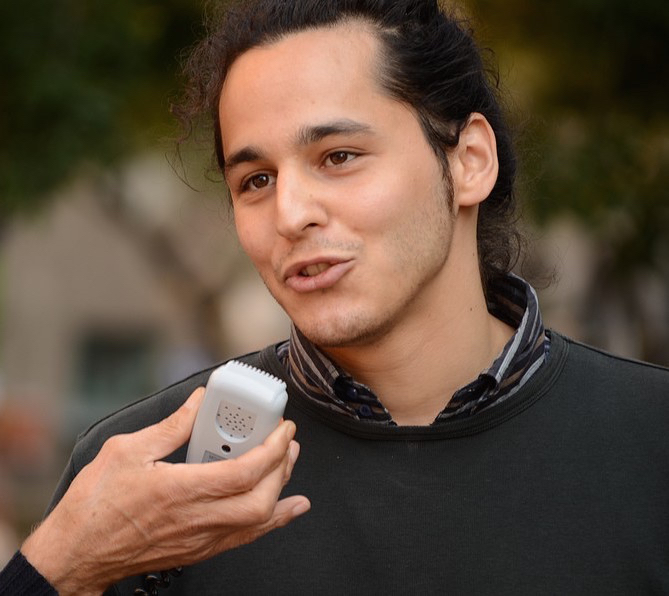

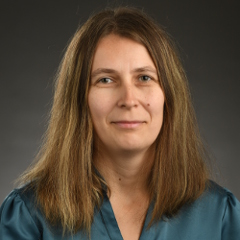
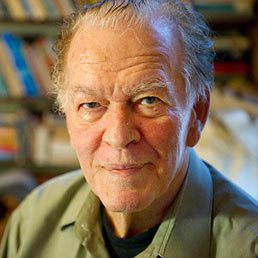 Gene Sharp, a pioneering scholar in the field of civil resistance, died Sunday at his home in Boston. He was 90. Dr. Sharp’s seminal work, “The Politics of Nonviolent Action,” identified 198 tactics of civil resistance and, since its publication in 1973, has been a lodestar for activists, academics, policymakers and nongovernmental organizations. Both Peter Ackerman, founder of the International Center on Nonviolent Conflict (ICNC), and Hardy Merriman, President of ICNC, worked closely with Dr. Sharp.
Gene Sharp, a pioneering scholar in the field of civil resistance, died Sunday at his home in Boston. He was 90. Dr. Sharp’s seminal work, “The Politics of Nonviolent Action,” identified 198 tactics of civil resistance and, since its publication in 1973, has been a lodestar for activists, academics, policymakers and nongovernmental organizations. Both Peter Ackerman, founder of the International Center on Nonviolent Conflict (ICNC), and Hardy Merriman, President of ICNC, worked closely with Dr. Sharp.